Great proletarian cultural revolution Stock Photos and Images
(141)See great proletarian cultural revolution stock video clipsQuick filters:
Great proletarian cultural revolution Stock Photos and Images
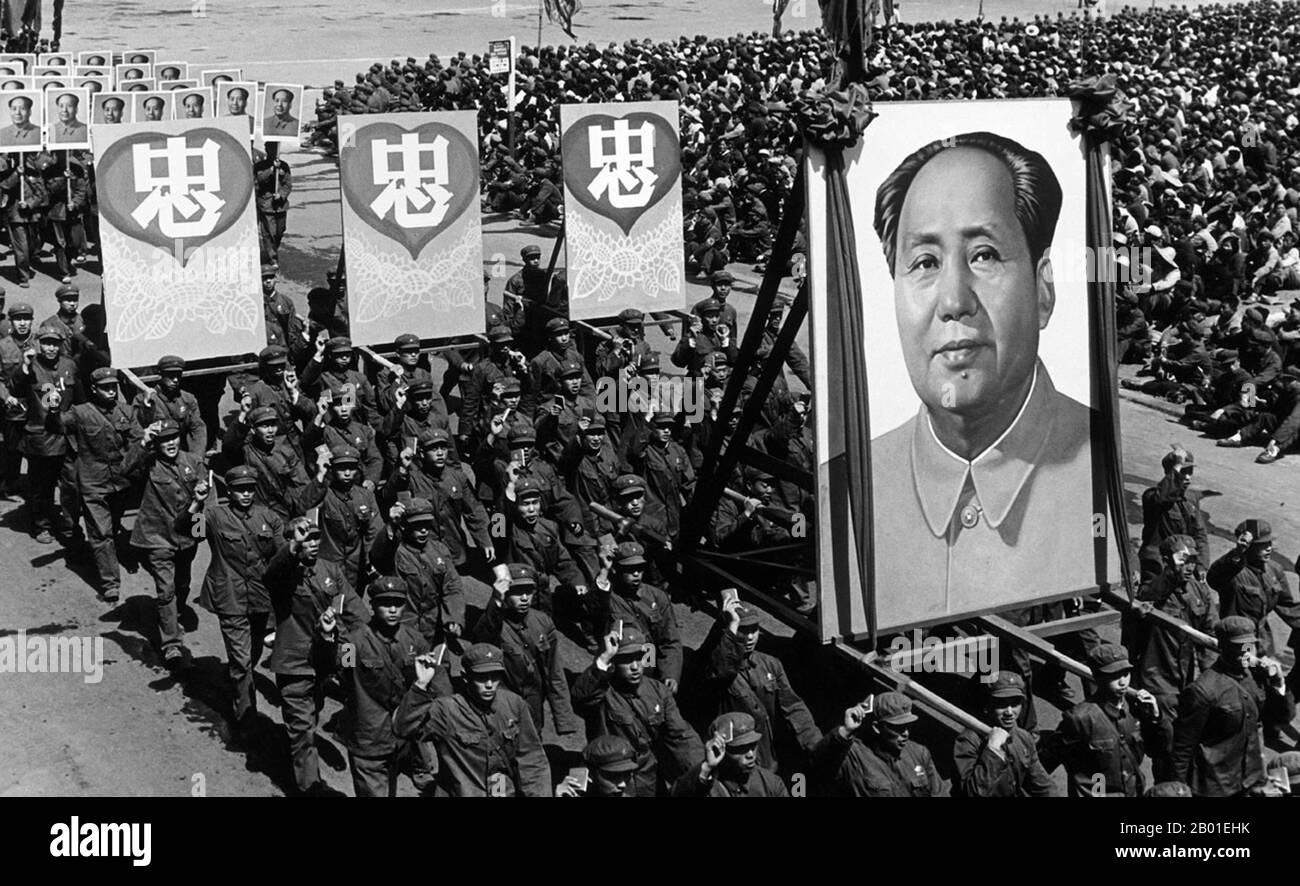 China: A scene from the Cultural Revolution (1966-1976), mass demonstration in Shenyang, 1968. The Chinese characters read 'In Our Hearts', with reference to Chairman Mao Zedong. The Great Proletarian Cultural Revolution, commonly known as the Cultural Revolution (Chinese: 文化大革命), was a socio-political movement that took place in the People's Republic of China from 1966 through 1976. Set into motion by Mao Zedong, then Chairman of the Communist Party of China, its stated goal was to enforce socialism in the country by removing capitalist, traditional and cultural elements from society. Stock Photohttps://www.alamy.com/image-license-details/?v=1https://www.alamy.com/china-a-scene-from-the-cultural-revolution-1966-1976-mass-demonstration-in-shenyang-1968-the-chinese-characters-read-in-our-hearts-with-reference-to-chairman-mao-zedong-the-great-proletarian-cultural-revolution-commonly-known-as-the-cultural-revolution-chinese-was-a-socio-political-movement-that-took-place-in-the-peoples-republic-of-china-from-1966-through-1976-set-into-motion-by-mao-zedong-then-chairman-of-the-communist-party-of-china-its-stated-goal-was-to-enforce-socialism-in-the-country-by-removing-capitalist-traditional-and-cultural-elements-from-society-image344240783.html
China: A scene from the Cultural Revolution (1966-1976), mass demonstration in Shenyang, 1968. The Chinese characters read 'In Our Hearts', with reference to Chairman Mao Zedong. The Great Proletarian Cultural Revolution, commonly known as the Cultural Revolution (Chinese: 文化大革命), was a socio-political movement that took place in the People's Republic of China from 1966 through 1976. Set into motion by Mao Zedong, then Chairman of the Communist Party of China, its stated goal was to enforce socialism in the country by removing capitalist, traditional and cultural elements from society. Stock Photohttps://www.alamy.com/image-license-details/?v=1https://www.alamy.com/china-a-scene-from-the-cultural-revolution-1966-1976-mass-demonstration-in-shenyang-1968-the-chinese-characters-read-in-our-hearts-with-reference-to-chairman-mao-zedong-the-great-proletarian-cultural-revolution-commonly-known-as-the-cultural-revolution-chinese-was-a-socio-political-movement-that-took-place-in-the-peoples-republic-of-china-from-1966-through-1976-set-into-motion-by-mao-zedong-then-chairman-of-the-communist-party-of-china-its-stated-goal-was-to-enforce-socialism-in-the-country-by-removing-capitalist-traditional-and-cultural-elements-from-society-image344240783.htmlRM2B01EHK–China: A scene from the Cultural Revolution (1966-1976), mass demonstration in Shenyang, 1968. The Chinese characters read 'In Our Hearts', with reference to Chairman Mao Zedong. The Great Proletarian Cultural Revolution, commonly known as the Cultural Revolution (Chinese: 文化大革命), was a socio-political movement that took place in the People's Republic of China from 1966 through 1976. Set into motion by Mao Zedong, then Chairman of the Communist Party of China, its stated goal was to enforce socialism in the country by removing capitalist, traditional and cultural elements from society.
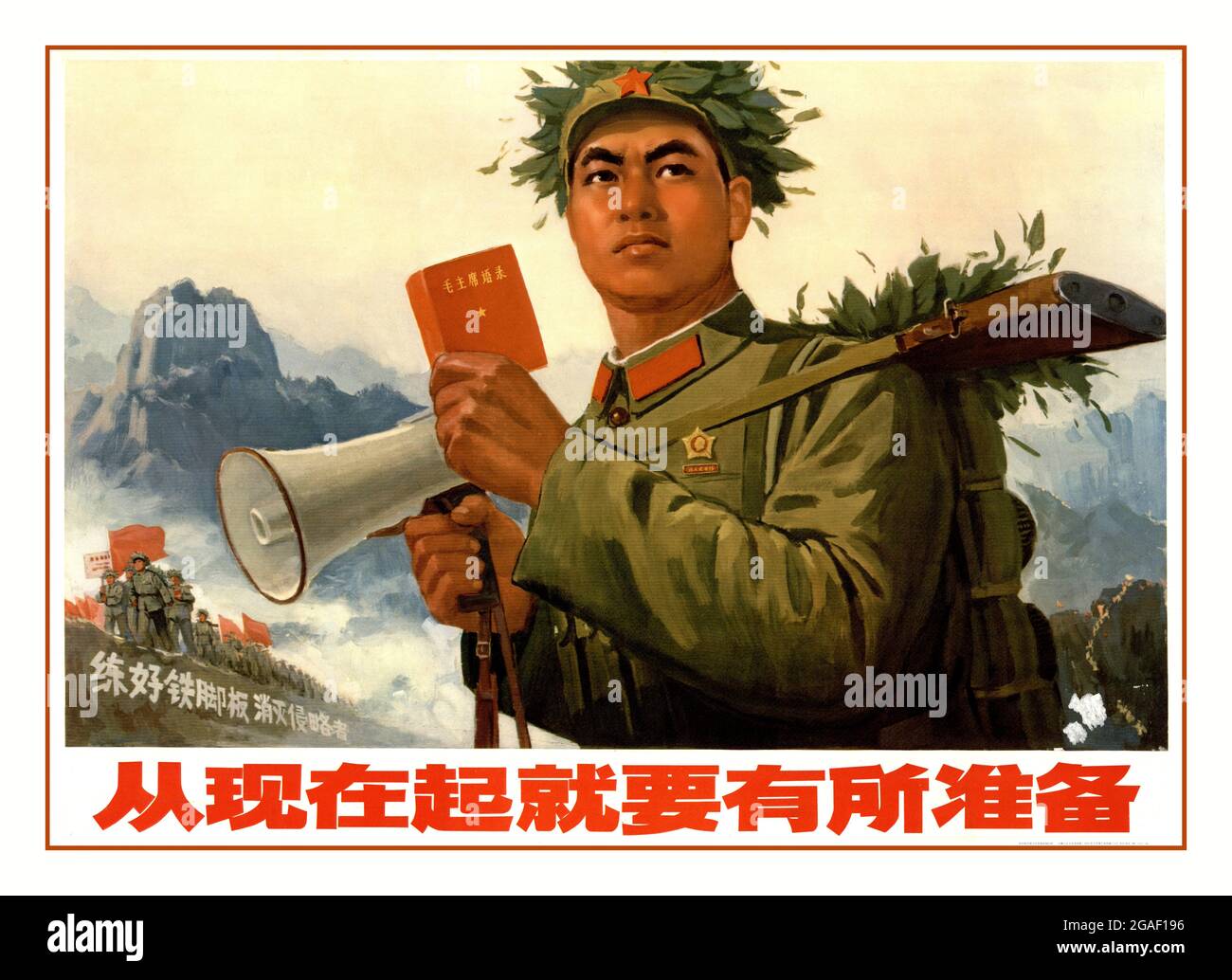 Chinese Propaganda Poster 1970's 'From now on; we must raise our preparedness somewhat more' 1971 Chinese Revolutionary Soldier with megaphone and Chairman Mao's Red Book. The Great Proletarian Cultural Revolution, known simply as the Cultural Revolution Stock Photohttps://www.alamy.com/image-license-details/?v=1https://www.alamy.com/chinese-propaganda-poster-1970s-from-now-on-we-must-raise-our-preparedness-somewhat-more-1971-chinese-revolutionary-soldier-with-megaphone-and-chairman-maos-red-book-the-great-proletarian-cultural-revolution-known-simply-as-the-cultural-revolution-image436736082.html
Chinese Propaganda Poster 1970's 'From now on; we must raise our preparedness somewhat more' 1971 Chinese Revolutionary Soldier with megaphone and Chairman Mao's Red Book. The Great Proletarian Cultural Revolution, known simply as the Cultural Revolution Stock Photohttps://www.alamy.com/image-license-details/?v=1https://www.alamy.com/chinese-propaganda-poster-1970s-from-now-on-we-must-raise-our-preparedness-somewhat-more-1971-chinese-revolutionary-soldier-with-megaphone-and-chairman-maos-red-book-the-great-proletarian-cultural-revolution-known-simply-as-the-cultural-revolution-image436736082.htmlRM2GAF196–Chinese Propaganda Poster 1970's 'From now on; we must raise our preparedness somewhat more' 1971 Chinese Revolutionary Soldier with megaphone and Chairman Mao's Red Book. The Great Proletarian Cultural Revolution, known simply as the Cultural Revolution
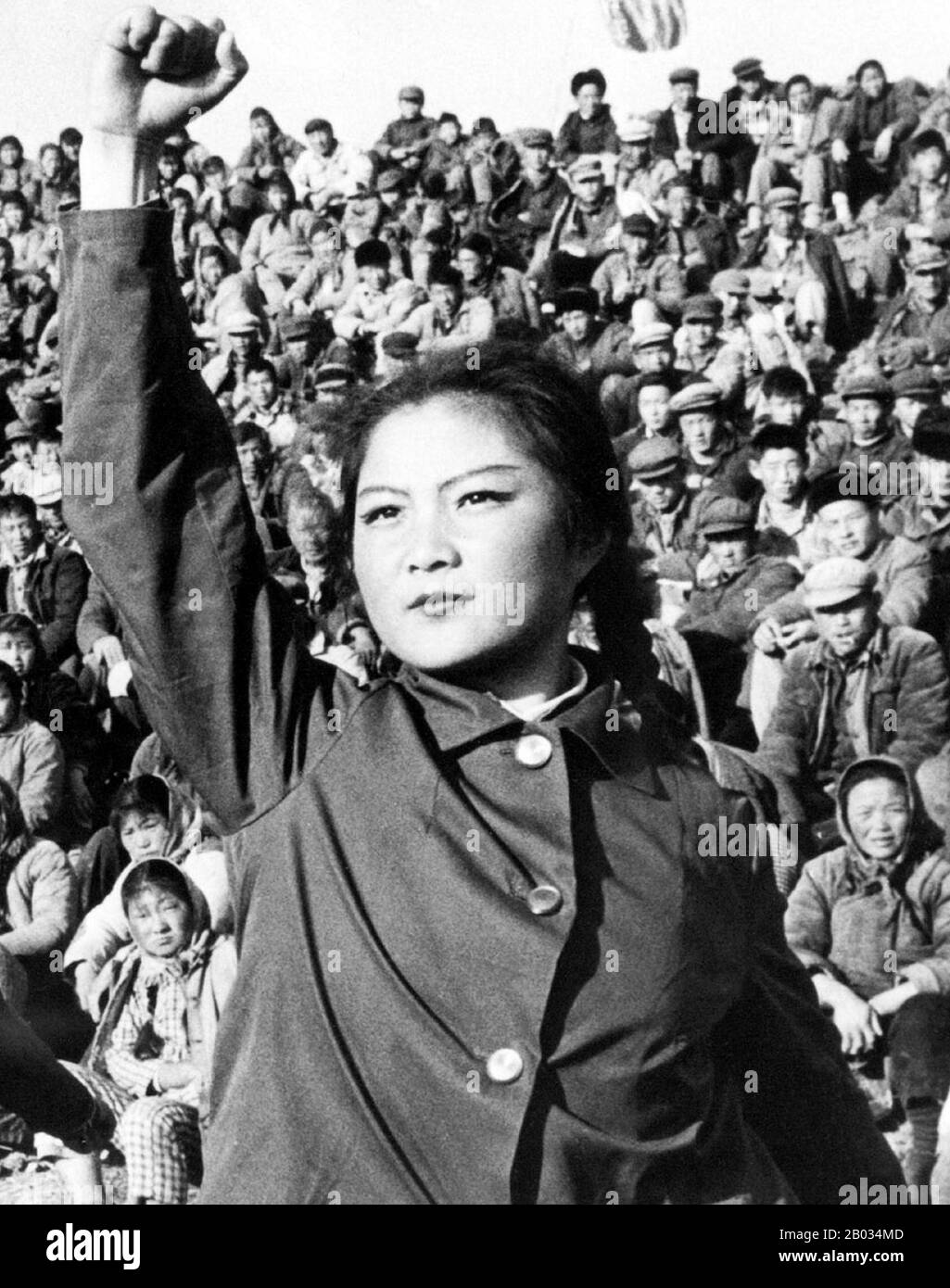 The Great Proletarian Cultural Revolution, commonly known as the Cultural Revolution, was a socio-political movement that took place in the People's Republic of China from 1966 through 1976. Set into motion by Mao Zedong, then Chairman of the Communist Party of China, its stated goal was to enforce socialism in the country by removing capitalist, traditional and cultural elements from Chinese society, and impose Maoist orthodoxy within the Party. The Cultural Revolution damaged the country on a great scale economically and socially. Millions of people were persecuted in the violent factional Stock Photohttps://www.alamy.com/image-license-details/?v=1https://www.alamy.com/the-great-proletarian-cultural-revolution-commonly-known-as-the-cultural-revolution-was-a-socio-political-movement-that-took-place-in-the-peoples-republic-of-china-from-1966-through-1976-set-into-motion-by-mao-zedong-then-chairman-of-the-communist-party-of-china-its-stated-goal-was-to-enforce-socialism-in-the-country-by-removing-capitalist-traditional-and-cultural-elements-from-chinese-society-and-impose-maoist-orthodoxy-within-the-party-the-cultural-revolution-damaged-the-country-on-a-great-scale-economically-and-socially-millions-of-people-were-persecuted-in-the-violent-factional-image344276925.html
The Great Proletarian Cultural Revolution, commonly known as the Cultural Revolution, was a socio-political movement that took place in the People's Republic of China from 1966 through 1976. Set into motion by Mao Zedong, then Chairman of the Communist Party of China, its stated goal was to enforce socialism in the country by removing capitalist, traditional and cultural elements from Chinese society, and impose Maoist orthodoxy within the Party. The Cultural Revolution damaged the country on a great scale economically and socially. Millions of people were persecuted in the violent factional Stock Photohttps://www.alamy.com/image-license-details/?v=1https://www.alamy.com/the-great-proletarian-cultural-revolution-commonly-known-as-the-cultural-revolution-was-a-socio-political-movement-that-took-place-in-the-peoples-republic-of-china-from-1966-through-1976-set-into-motion-by-mao-zedong-then-chairman-of-the-communist-party-of-china-its-stated-goal-was-to-enforce-socialism-in-the-country-by-removing-capitalist-traditional-and-cultural-elements-from-chinese-society-and-impose-maoist-orthodoxy-within-the-party-the-cultural-revolution-damaged-the-country-on-a-great-scale-economically-and-socially-millions-of-people-were-persecuted-in-the-violent-factional-image344276925.htmlRM2B034MD–The Great Proletarian Cultural Revolution, commonly known as the Cultural Revolution, was a socio-political movement that took place in the People's Republic of China from 1966 through 1976. Set into motion by Mao Zedong, then Chairman of the Communist Party of China, its stated goal was to enforce socialism in the country by removing capitalist, traditional and cultural elements from Chinese society, and impose Maoist orthodoxy within the Party. The Cultural Revolution damaged the country on a great scale economically and socially. Millions of people were persecuted in the violent factional
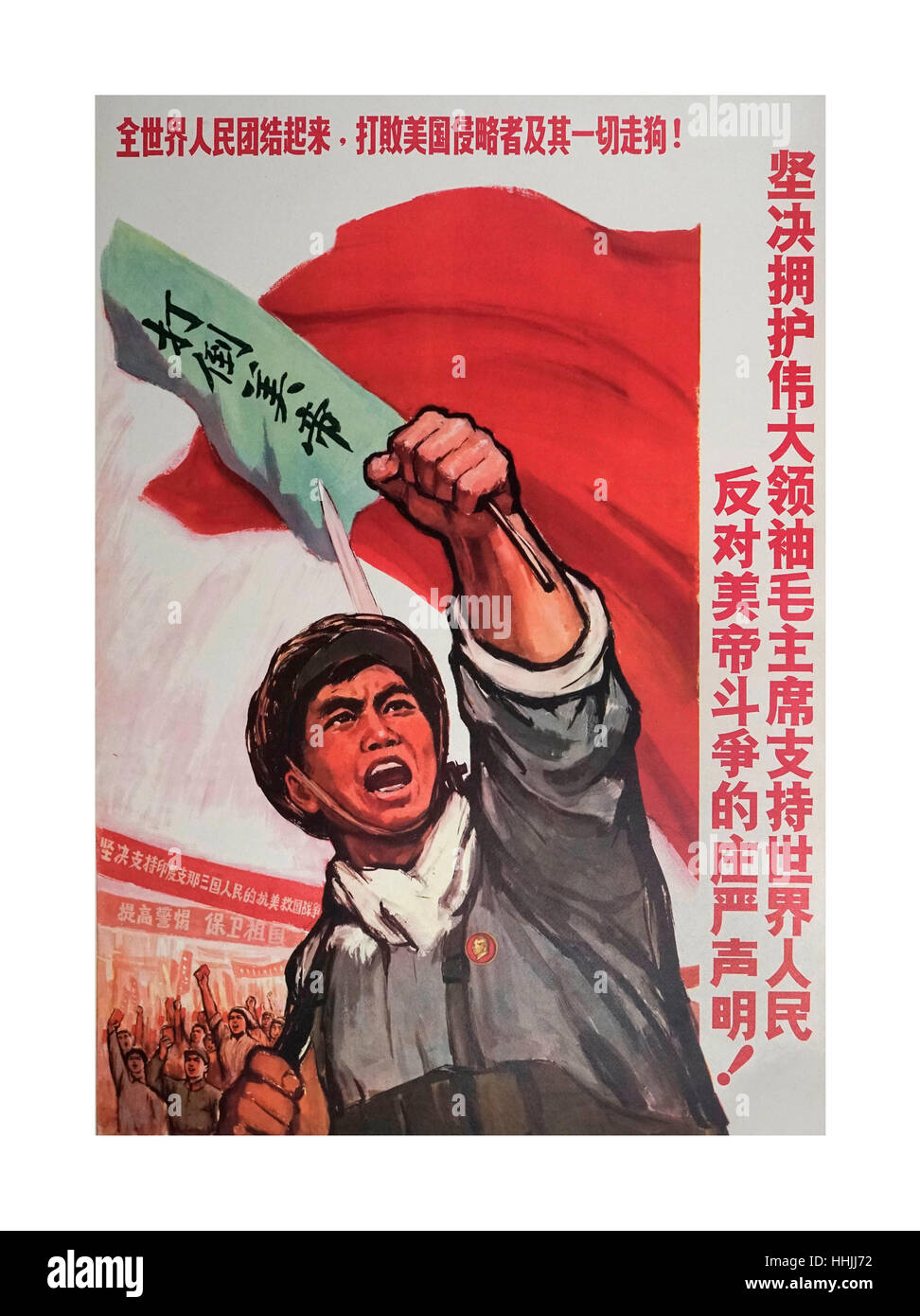 1960's PROPAGANDA CHINESE REVOLUTION VINTAGE POSTER China’s Great Proletarian Cultural Revolution Stock Photohttps://www.alamy.com/image-license-details/?v=1https://www.alamy.com/stock-photo-1960s-propaganda-chinese-revolution-vintage-poster-chinas-great-proletarian-131331174.html
1960's PROPAGANDA CHINESE REVOLUTION VINTAGE POSTER China’s Great Proletarian Cultural Revolution Stock Photohttps://www.alamy.com/image-license-details/?v=1https://www.alamy.com/stock-photo-1960s-propaganda-chinese-revolution-vintage-poster-chinas-great-proletarian-131331174.htmlRMHHJJ72–1960's PROPAGANDA CHINESE REVOLUTION VINTAGE POSTER China’s Great Proletarian Cultural Revolution
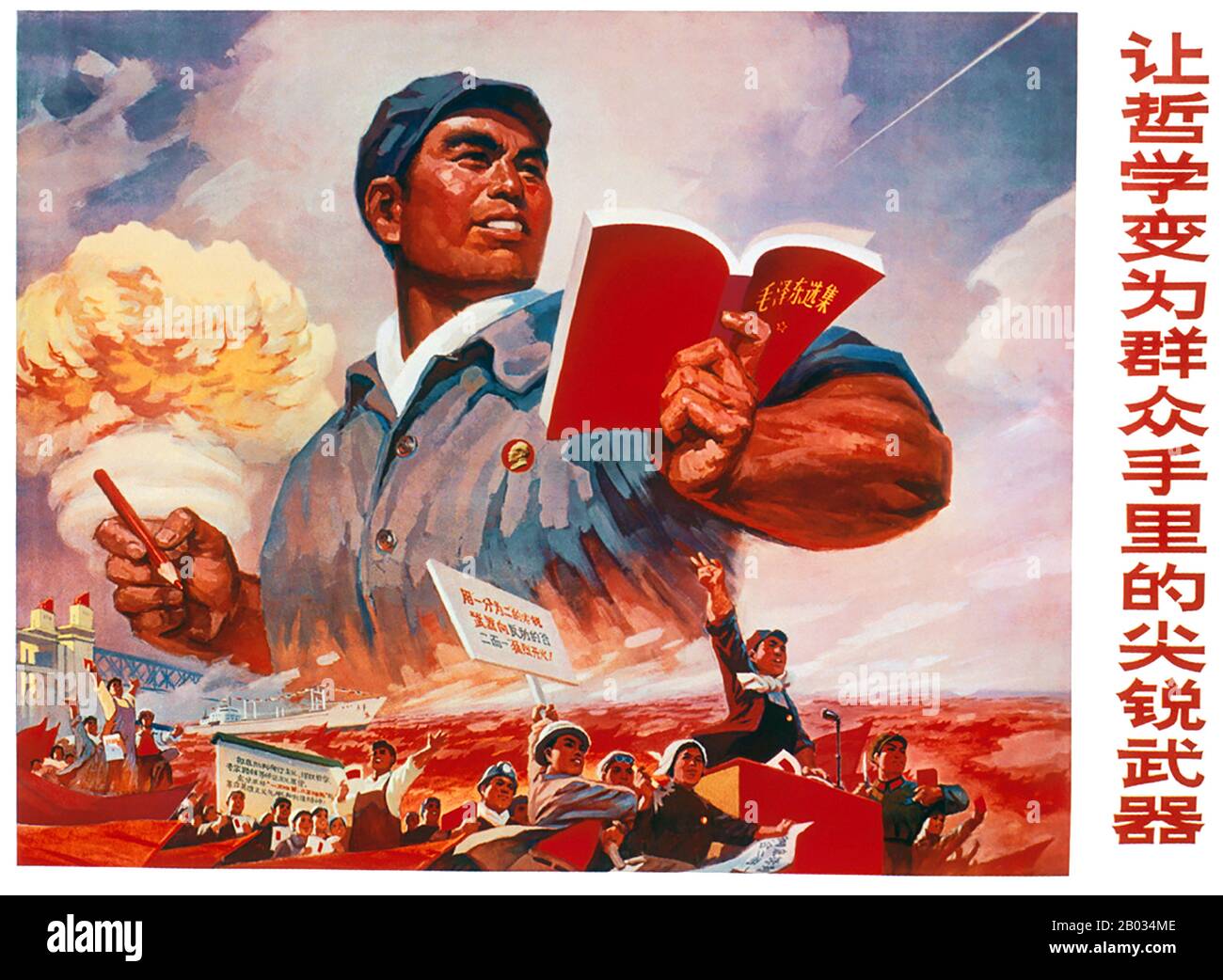 The Great Proletarian Cultural Revolution, commonly known as the Cultural Revolution, was a socio-political movement that took place in the People's Republic of China from 1966 through 1976. Set into motion by Mao Zedong, then Chairman of the Communist Party of China, its stated goal was to enforce socialism in the country by removing capitalist, traditional and cultural elements from Chinese society, and impose Maoist orthodoxy within the Party. The Cultural Revolution damaged the country on a great scale economically and socially. Millions of people were persecuted in the violent factional Stock Photohttps://www.alamy.com/image-license-details/?v=1https://www.alamy.com/the-great-proletarian-cultural-revolution-commonly-known-as-the-cultural-revolution-was-a-socio-political-movement-that-took-place-in-the-peoples-republic-of-china-from-1966-through-1976-set-into-motion-by-mao-zedong-then-chairman-of-the-communist-party-of-china-its-stated-goal-was-to-enforce-socialism-in-the-country-by-removing-capitalist-traditional-and-cultural-elements-from-chinese-society-and-impose-maoist-orthodoxy-within-the-party-the-cultural-revolution-damaged-the-country-on-a-great-scale-economically-and-socially-millions-of-people-were-persecuted-in-the-violent-factional-image344276926.html
The Great Proletarian Cultural Revolution, commonly known as the Cultural Revolution, was a socio-political movement that took place in the People's Republic of China from 1966 through 1976. Set into motion by Mao Zedong, then Chairman of the Communist Party of China, its stated goal was to enforce socialism in the country by removing capitalist, traditional and cultural elements from Chinese society, and impose Maoist orthodoxy within the Party. The Cultural Revolution damaged the country on a great scale economically and socially. Millions of people were persecuted in the violent factional Stock Photohttps://www.alamy.com/image-license-details/?v=1https://www.alamy.com/the-great-proletarian-cultural-revolution-commonly-known-as-the-cultural-revolution-was-a-socio-political-movement-that-took-place-in-the-peoples-republic-of-china-from-1966-through-1976-set-into-motion-by-mao-zedong-then-chairman-of-the-communist-party-of-china-its-stated-goal-was-to-enforce-socialism-in-the-country-by-removing-capitalist-traditional-and-cultural-elements-from-chinese-society-and-impose-maoist-orthodoxy-within-the-party-the-cultural-revolution-damaged-the-country-on-a-great-scale-economically-and-socially-millions-of-people-were-persecuted-in-the-violent-factional-image344276926.htmlRM2B034ME–The Great Proletarian Cultural Revolution, commonly known as the Cultural Revolution, was a socio-political movement that took place in the People's Republic of China from 1966 through 1976. Set into motion by Mao Zedong, then Chairman of the Communist Party of China, its stated goal was to enforce socialism in the country by removing capitalist, traditional and cultural elements from Chinese society, and impose Maoist orthodoxy within the Party. The Cultural Revolution damaged the country on a great scale economically and socially. Millions of people were persecuted in the violent factional
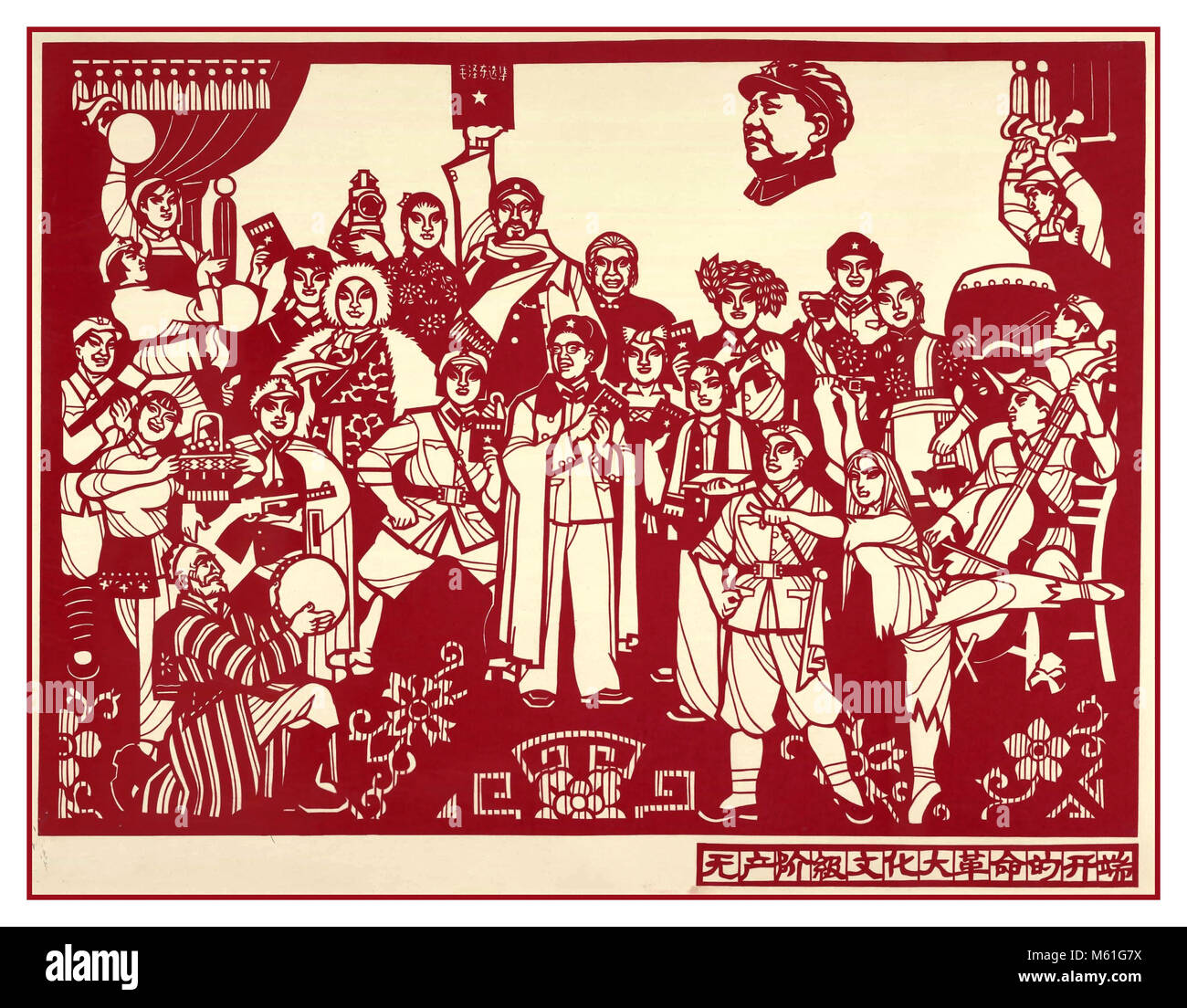 Vintage 1960’s Chairman Mao Chinese propaganda poster one of 15 papercuts discovered in the Center for Chinese Studies. This papercut is titled ‘The Inception of the Great Proletarian Cultural Revolution’ from 1964. Stock Photohttps://www.alamy.com/image-license-details/?v=1https://www.alamy.com/stock-photo-vintage-1960s-chairman-mao-chinese-propaganda-poster-one-of-15-papercuts-175826334.html
Vintage 1960’s Chairman Mao Chinese propaganda poster one of 15 papercuts discovered in the Center for Chinese Studies. This papercut is titled ‘The Inception of the Great Proletarian Cultural Revolution’ from 1964. Stock Photohttps://www.alamy.com/image-license-details/?v=1https://www.alamy.com/stock-photo-vintage-1960s-chairman-mao-chinese-propaganda-poster-one-of-15-papercuts-175826334.htmlRMM61G7X–Vintage 1960’s Chairman Mao Chinese propaganda poster one of 15 papercuts discovered in the Center for Chinese Studies. This papercut is titled ‘The Inception of the Great Proletarian Cultural Revolution’ from 1964.
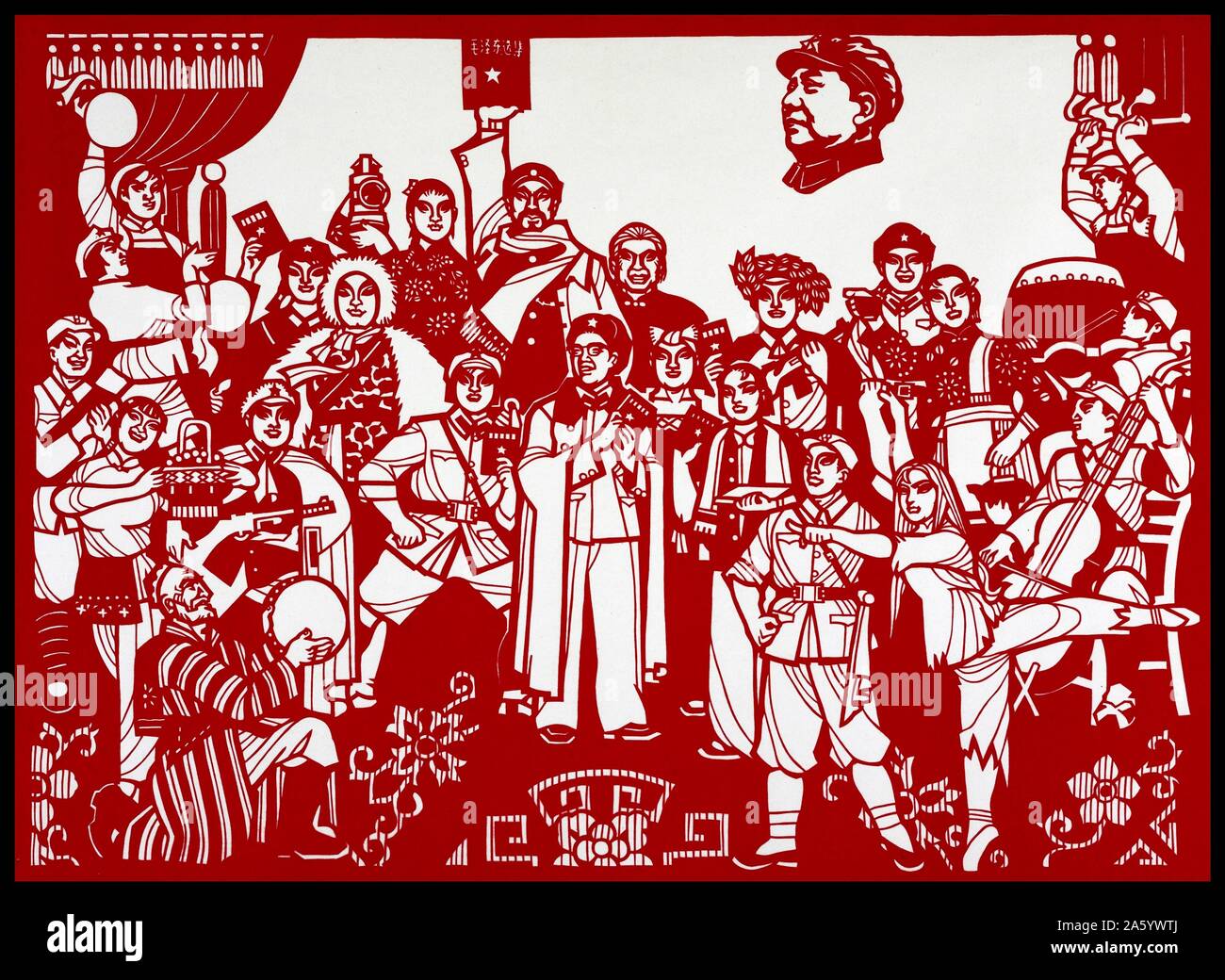 A paper cut poster depicting the Inception of the Great Proletarian Cultural Revolution. Dated 2012 Stock Photohttps://www.alamy.com/image-license-details/?v=1https://www.alamy.com/a-paper-cut-poster-depicting-the-inception-of-the-great-proletarian-cultural-revolution-dated-2012-image330683266.html
A paper cut poster depicting the Inception of the Great Proletarian Cultural Revolution. Dated 2012 Stock Photohttps://www.alamy.com/image-license-details/?v=1https://www.alamy.com/a-paper-cut-poster-depicting-the-inception-of-the-great-proletarian-cultural-revolution-dated-2012-image330683266.htmlRM2A5YWTJ–A paper cut poster depicting the Inception of the Great Proletarian Cultural Revolution. Dated 2012
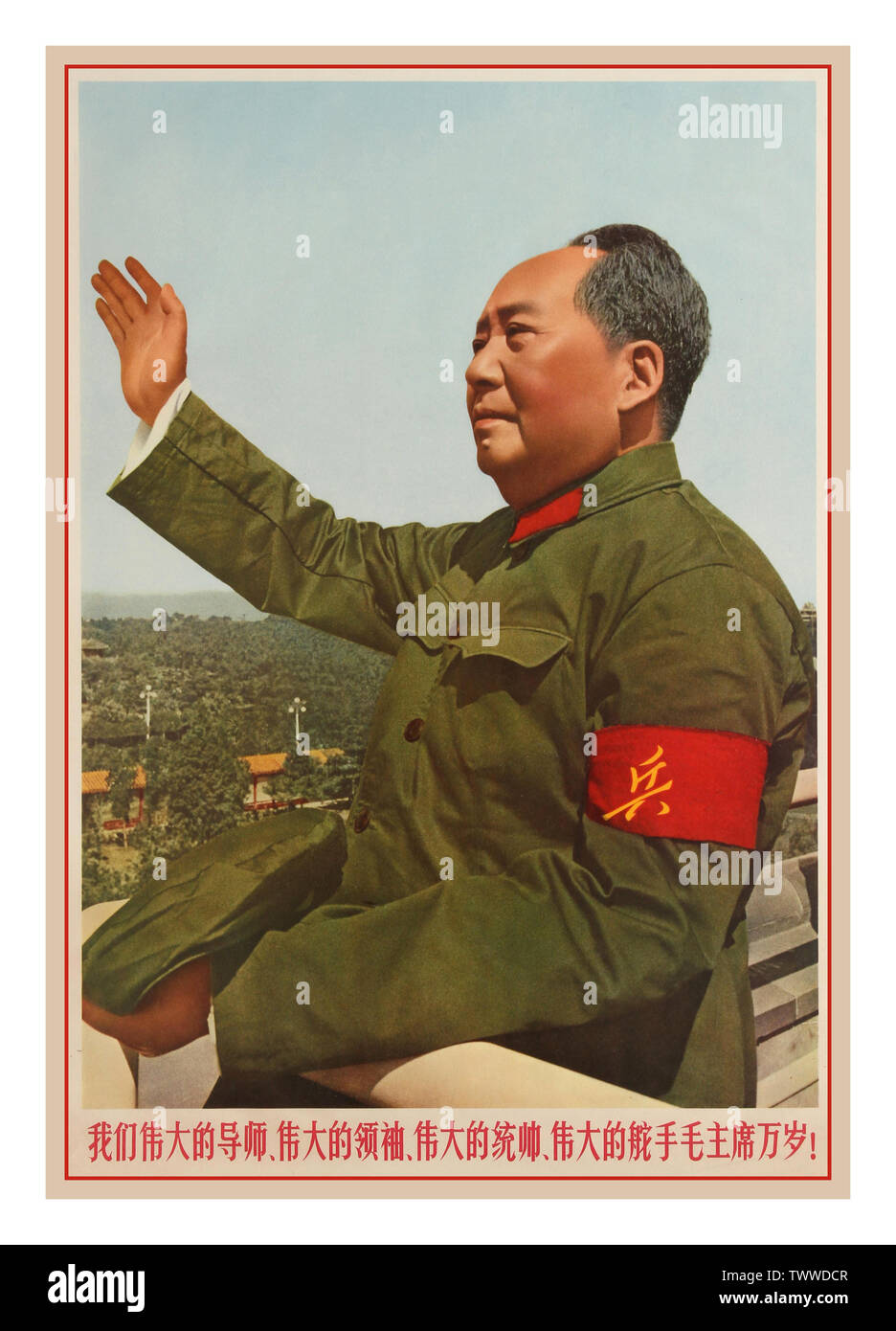 Vintage Chinese Propaganda poster: “Long live the great leader Chairman Mao !” Colour photograph of Chairman Mao waving to a million revolutionary masses on Tien An Men rostrum during a celebration of the great proletarian cultural revolution. China, 1966, Mao Zedong (December 26, 1893 – September 9, 1976), also known as Chairman Mao, was a Chinese communist revolutionary who became the founding father of the People's Republic of China, which he ruled as the Chairman of the Communist Party of China from its establishment in 1949 until his death in 1976. Stock Photohttps://www.alamy.com/image-license-details/?v=1https://www.alamy.com/vintage-chinese-propaganda-poster-long-live-the-great-leader-chairman-mao-!-colour-photograph-of-chairman-mao-waving-to-a-million-revolutionary-masses-on-tien-an-men-rostrum-during-a-celebration-of-the-great-proletarian-cultural-revolution-china-1966-mao-zedong-december-26-1893-september-9-1976-also-known-as-chairman-mao-was-a-chinese-communist-revolutionary-who-became-the-founding-father-of-the-peoples-republic-of-china-which-he-ruled-as-the-chairman-of-the-communist-party-of-china-from-its-establishment-in-1949-until-his-death-in-1976-image256870903.html
Vintage Chinese Propaganda poster: “Long live the great leader Chairman Mao !” Colour photograph of Chairman Mao waving to a million revolutionary masses on Tien An Men rostrum during a celebration of the great proletarian cultural revolution. China, 1966, Mao Zedong (December 26, 1893 – September 9, 1976), also known as Chairman Mao, was a Chinese communist revolutionary who became the founding father of the People's Republic of China, which he ruled as the Chairman of the Communist Party of China from its establishment in 1949 until his death in 1976. Stock Photohttps://www.alamy.com/image-license-details/?v=1https://www.alamy.com/vintage-chinese-propaganda-poster-long-live-the-great-leader-chairman-mao-!-colour-photograph-of-chairman-mao-waving-to-a-million-revolutionary-masses-on-tien-an-men-rostrum-during-a-celebration-of-the-great-proletarian-cultural-revolution-china-1966-mao-zedong-december-26-1893-september-9-1976-also-known-as-chairman-mao-was-a-chinese-communist-revolutionary-who-became-the-founding-father-of-the-peoples-republic-of-china-which-he-ruled-as-the-chairman-of-the-communist-party-of-china-from-its-establishment-in-1949-until-his-death-in-1976-image256870903.htmlRMTWWDCR–Vintage Chinese Propaganda poster: “Long live the great leader Chairman Mao !” Colour photograph of Chairman Mao waving to a million revolutionary masses on Tien An Men rostrum during a celebration of the great proletarian cultural revolution. China, 1966, Mao Zedong (December 26, 1893 – September 9, 1976), also known as Chairman Mao, was a Chinese communist revolutionary who became the founding father of the People's Republic of China, which he ruled as the Chairman of the Communist Party of China from its establishment in 1949 until his death in 1976.
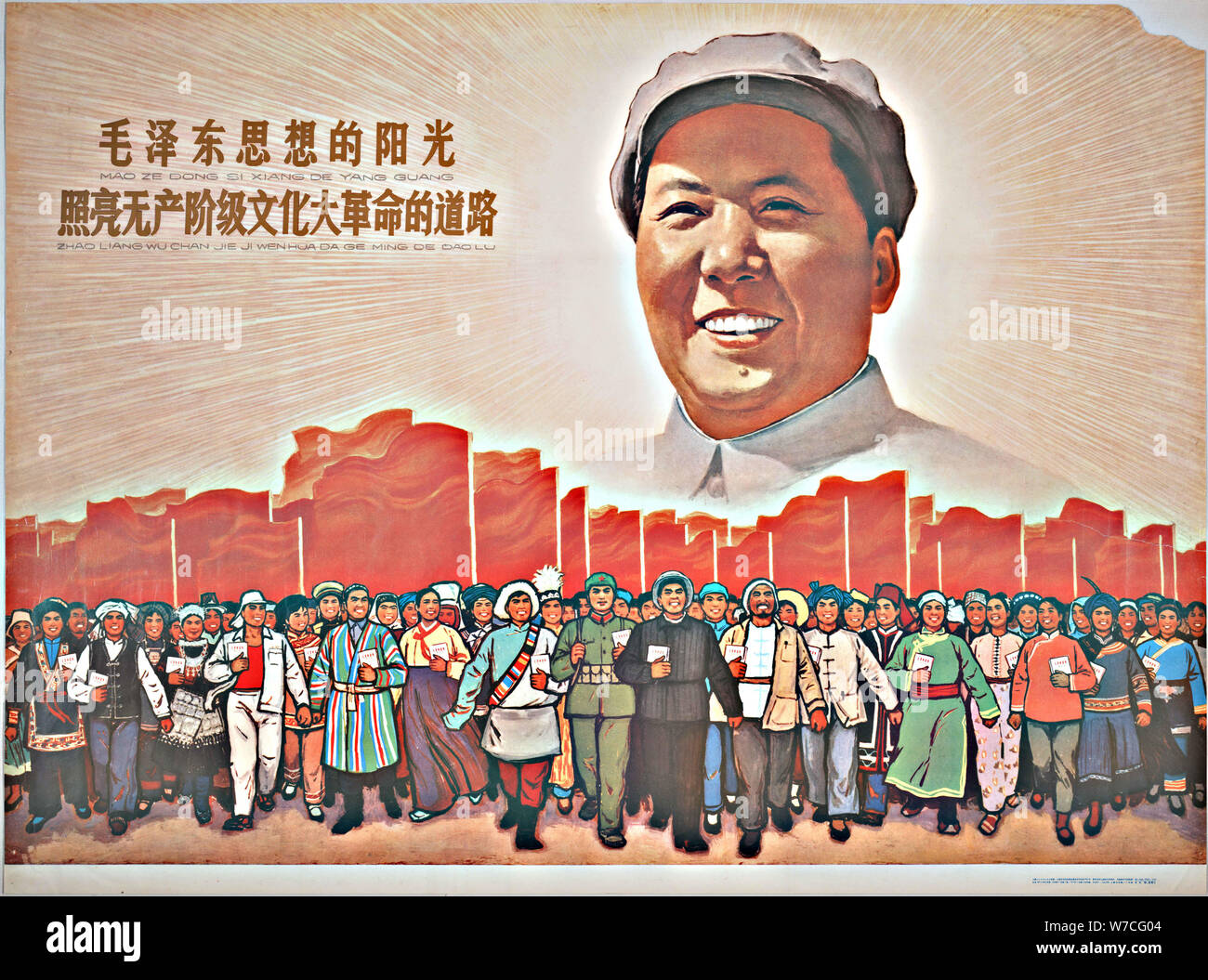 The Sunshine of Mao Zedong Thought Illuminates the Path of the Great Proletarian Cultural Revolution Stock Photohttps://www.alamy.com/image-license-details/?v=1https://www.alamy.com/the-sunshine-of-mao-zedong-thought-illuminates-the-path-of-the-great-proletarian-cultural-revolution-image262734084.html
The Sunshine of Mao Zedong Thought Illuminates the Path of the Great Proletarian Cultural Revolution Stock Photohttps://www.alamy.com/image-license-details/?v=1https://www.alamy.com/the-sunshine-of-mao-zedong-thought-illuminates-the-path-of-the-great-proletarian-cultural-revolution-image262734084.htmlRMW7CG04–The Sunshine of Mao Zedong Thought Illuminates the Path of the Great Proletarian Cultural Revolution
 China/Tibet: Chinese propaganda image of happy Tibetans offering butter tea to a Han Chinese People's Liberation Army (PLA) tractor driver at the time of the Great Proletarian Cultural Revolution (1966-1976). The Tea Horse Road (Cha Ma Dao) was a network of mule caravan paths winding through the mountains of Yunnan, Sichuan and Tibet in Southwest China. It is also sometimes referred to as the Southern Silk Road and Ancient Tea and Horse Road. From around a thousand years ago, the Ancient Tea Route was a trade link from Yunnan, one of the first tea-producing regions, to India via Burma. Stock Photohttps://www.alamy.com/image-license-details/?v=1https://www.alamy.com/chinatibet-chinese-propaganda-image-of-happy-tibetans-offering-butter-tea-to-a-han-chinese-peoples-liberation-army-pla-tractor-driver-at-the-time-of-the-great-proletarian-cultural-revolution-1966-1976-the-tea-horse-road-cha-ma-dao-was-a-network-of-mule-caravan-paths-winding-through-the-mountains-of-yunnan-sichuan-and-tibet-in-southwest-china-it-is-also-sometimes-referred-to-as-the-southern-silk-road-and-ancient-tea-and-horse-road-from-around-a-thousand-years-ago-the-ancient-tea-route-was-a-trade-link-from-yunnan-one-of-the-first-tea-producing-regions-to-india-via-burma-image344249516.html
China/Tibet: Chinese propaganda image of happy Tibetans offering butter tea to a Han Chinese People's Liberation Army (PLA) tractor driver at the time of the Great Proletarian Cultural Revolution (1966-1976). The Tea Horse Road (Cha Ma Dao) was a network of mule caravan paths winding through the mountains of Yunnan, Sichuan and Tibet in Southwest China. It is also sometimes referred to as the Southern Silk Road and Ancient Tea and Horse Road. From around a thousand years ago, the Ancient Tea Route was a trade link from Yunnan, one of the first tea-producing regions, to India via Burma. Stock Photohttps://www.alamy.com/image-license-details/?v=1https://www.alamy.com/chinatibet-chinese-propaganda-image-of-happy-tibetans-offering-butter-tea-to-a-han-chinese-peoples-liberation-army-pla-tractor-driver-at-the-time-of-the-great-proletarian-cultural-revolution-1966-1976-the-tea-horse-road-cha-ma-dao-was-a-network-of-mule-caravan-paths-winding-through-the-mountains-of-yunnan-sichuan-and-tibet-in-southwest-china-it-is-also-sometimes-referred-to-as-the-southern-silk-road-and-ancient-tea-and-horse-road-from-around-a-thousand-years-ago-the-ancient-tea-route-was-a-trade-link-from-yunnan-one-of-the-first-tea-producing-regions-to-india-via-burma-image344249516.htmlRM2B01WNG–China/Tibet: Chinese propaganda image of happy Tibetans offering butter tea to a Han Chinese People's Liberation Army (PLA) tractor driver at the time of the Great Proletarian Cultural Revolution (1966-1976). The Tea Horse Road (Cha Ma Dao) was a network of mule caravan paths winding through the mountains of Yunnan, Sichuan and Tibet in Southwest China. It is also sometimes referred to as the Southern Silk Road and Ancient Tea and Horse Road. From around a thousand years ago, the Ancient Tea Route was a trade link from Yunnan, one of the first tea-producing regions, to India via Burma.
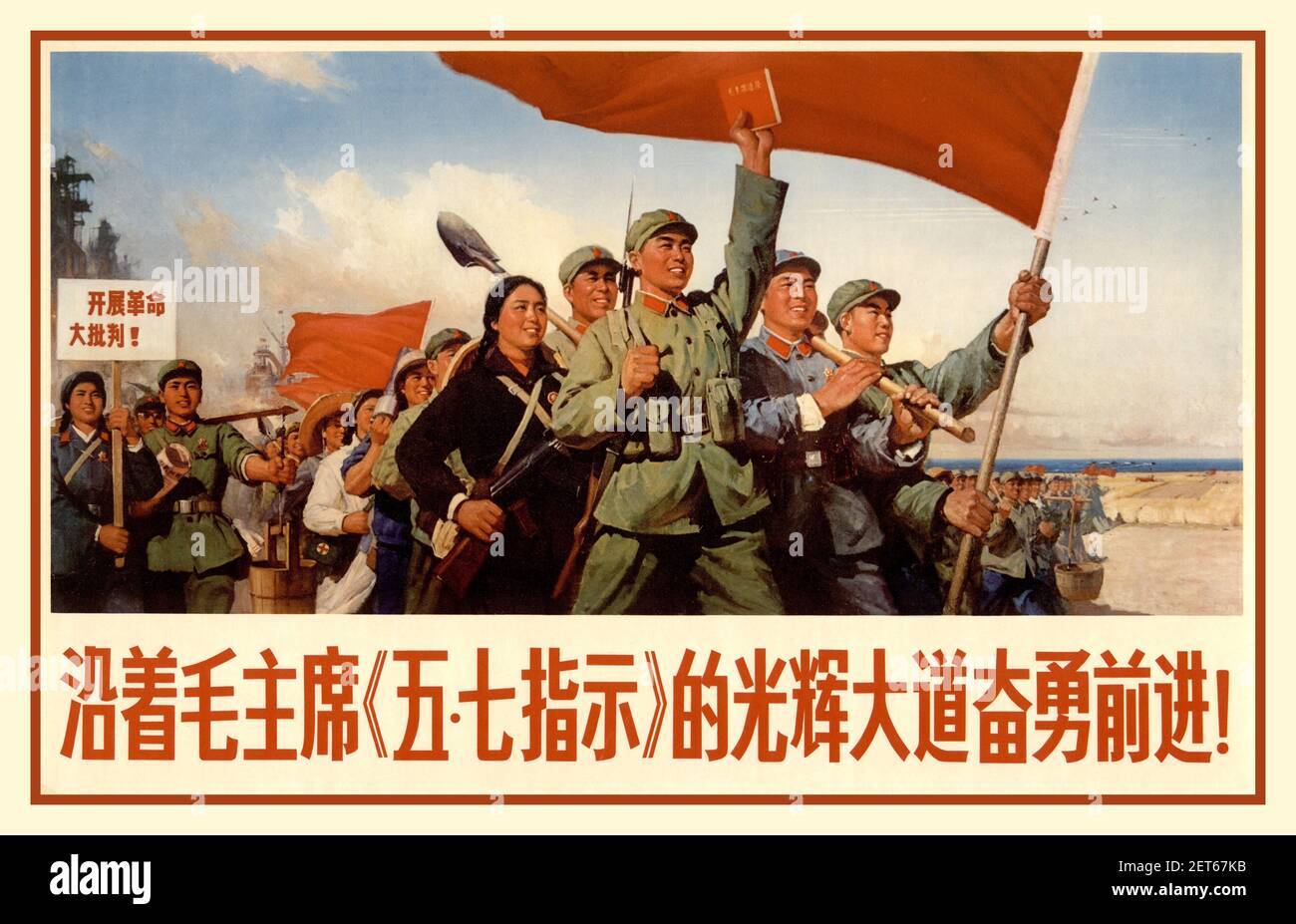 Cultural Revolution China Vintage 1970's Chinese Propaganda Poster 'By following President Mao's May 7 directive' we will make brilliant and great progress' 1970's Chinese Cultural Revolution Propaganda Poster. The Cultural Revolution, formally the Great Proletarian Cultural Revolution, was a violent sociopolitical purge movement in China from 1966 until 1976. Stock Photohttps://www.alamy.com/image-license-details/?v=1https://www.alamy.com/cultural-revolution-china-vintage-1970s-chinese-propaganda-poster-by-following-president-maos-may-7-directive-we-will-make-brilliant-and-great-progress-1970s-chinese-cultural-revolution-propaganda-poster-the-cultural-revolution-formally-the-great-proletarian-cultural-revolution-was-a-violent-sociopolitical-purge-movement-in-china-from-1966-until-1976-image410727951.html
Cultural Revolution China Vintage 1970's Chinese Propaganda Poster 'By following President Mao's May 7 directive' we will make brilliant and great progress' 1970's Chinese Cultural Revolution Propaganda Poster. The Cultural Revolution, formally the Great Proletarian Cultural Revolution, was a violent sociopolitical purge movement in China from 1966 until 1976. Stock Photohttps://www.alamy.com/image-license-details/?v=1https://www.alamy.com/cultural-revolution-china-vintage-1970s-chinese-propaganda-poster-by-following-president-maos-may-7-directive-we-will-make-brilliant-and-great-progress-1970s-chinese-cultural-revolution-propaganda-poster-the-cultural-revolution-formally-the-great-proletarian-cultural-revolution-was-a-violent-sociopolitical-purge-movement-in-china-from-1966-until-1976-image410727951.htmlRM2ET67KB–Cultural Revolution China Vintage 1970's Chinese Propaganda Poster 'By following President Mao's May 7 directive' we will make brilliant and great progress' 1970's Chinese Cultural Revolution Propaganda Poster. The Cultural Revolution, formally the Great Proletarian Cultural Revolution, was a violent sociopolitical purge movement in China from 1966 until 1976.
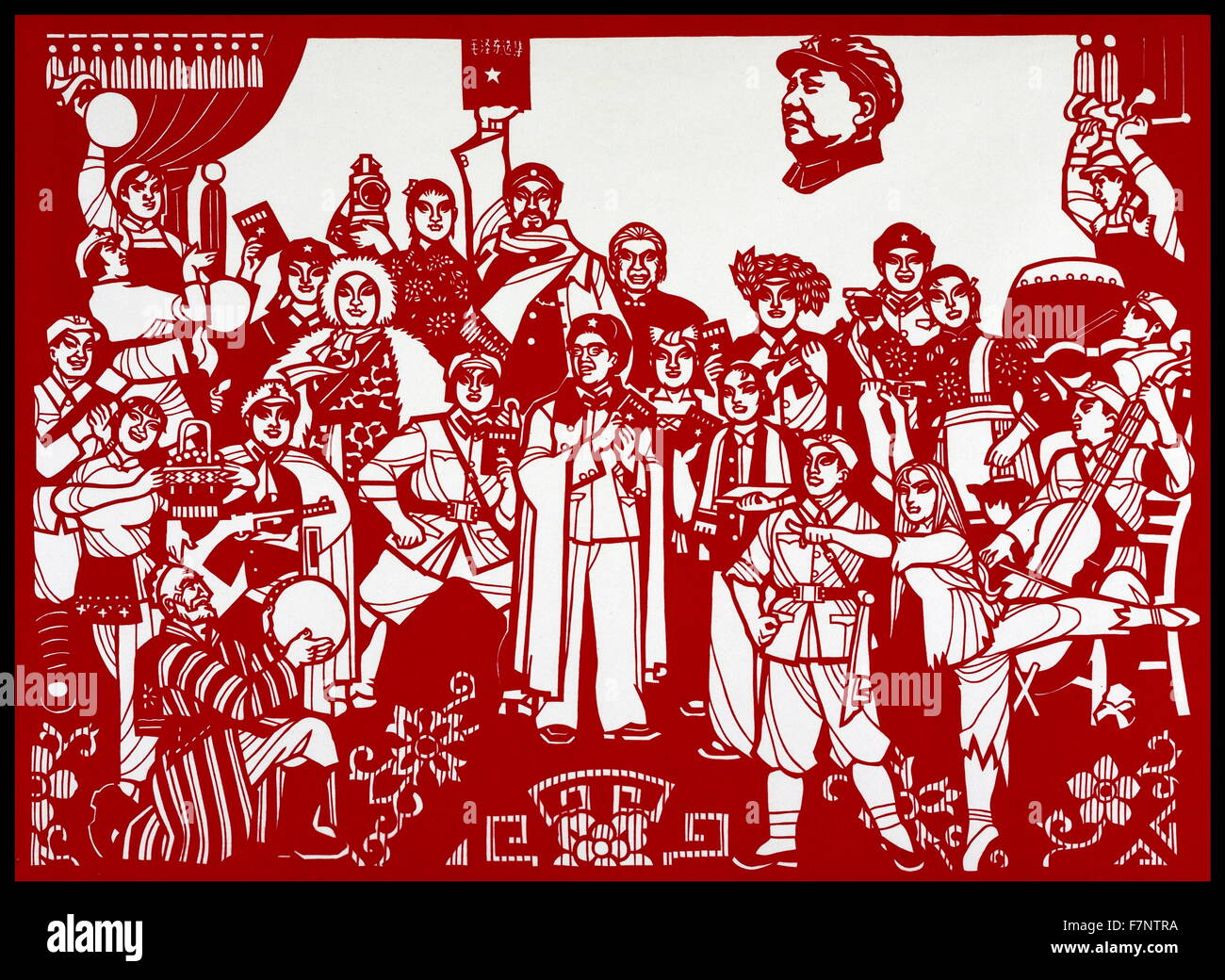 A paper cut poster depicting the Inception of the Great Proletarian Cultural Revolution. Dated 2012 Stock Photohttps://www.alamy.com/image-license-details/?v=1https://www.alamy.com/stock-photo-a-paper-cut-poster-depicting-the-inception-of-the-great-proletarian-90834894.html
A paper cut poster depicting the Inception of the Great Proletarian Cultural Revolution. Dated 2012 Stock Photohttps://www.alamy.com/image-license-details/?v=1https://www.alamy.com/stock-photo-a-paper-cut-poster-depicting-the-inception-of-the-great-proletarian-90834894.htmlRMF7NTRA–A paper cut poster depicting the Inception of the Great Proletarian Cultural Revolution. Dated 2012
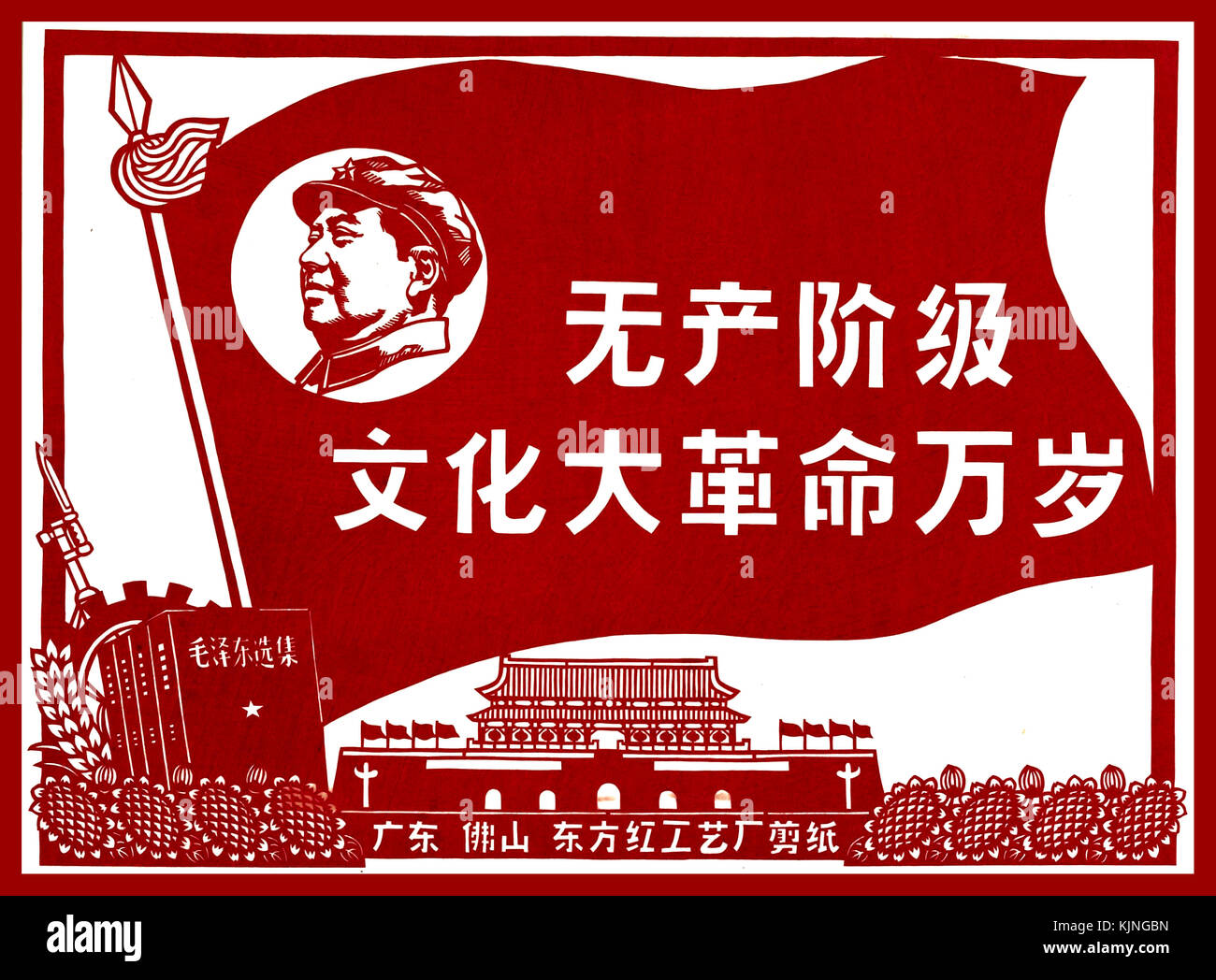 Vintage historic political propaganda poster for Chairman Mao 'LONG LIVE THE GREAT PROLETARIAN CULTURAL REVOLUTION IN CHINA' Stock Photohttps://www.alamy.com/image-license-details/?v=1https://www.alamy.com/stock-image-vintage-historic-political-propaganda-poster-for-chairman-mao-long-166430985.html
Vintage historic political propaganda poster for Chairman Mao 'LONG LIVE THE GREAT PROLETARIAN CULTURAL REVOLUTION IN CHINA' Stock Photohttps://www.alamy.com/image-license-details/?v=1https://www.alamy.com/stock-image-vintage-historic-political-propaganda-poster-for-chairman-mao-long-166430985.htmlRMKJNGBN–Vintage historic political propaganda poster for Chairman Mao 'LONG LIVE THE GREAT PROLETARIAN CULTURAL REVOLUTION IN CHINA'
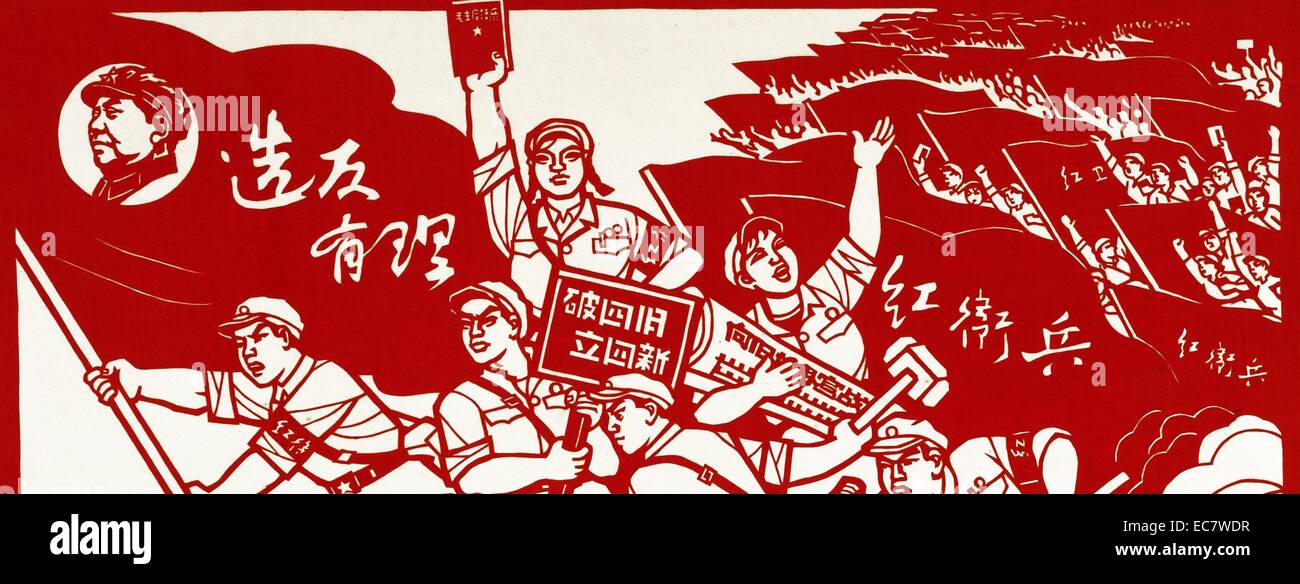 Propaganda from the Chinese Cultural Revolution. The Great Proletarian Cultural Revolution was a social-political movement that took place in the People's Republic of China. Set into motion by Mao Zedong, then Chairman of the Communist Party of China, its stated goal was to enforce communism in the country by removing capitalist, traditional and cultural elements from Chinese society, and to impose Maoist orthodoxy within the Party. The movement paralyzed China politically and significantly affected the country economically and socially. Stock Photohttps://www.alamy.com/image-license-details/?v=1https://www.alamy.com/stock-photo-propaganda-from-the-chinese-cultural-revolution-the-great-proletarian-76390995.html
Propaganda from the Chinese Cultural Revolution. The Great Proletarian Cultural Revolution was a social-political movement that took place in the People's Republic of China. Set into motion by Mao Zedong, then Chairman of the Communist Party of China, its stated goal was to enforce communism in the country by removing capitalist, traditional and cultural elements from Chinese society, and to impose Maoist orthodoxy within the Party. The movement paralyzed China politically and significantly affected the country economically and socially. Stock Photohttps://www.alamy.com/image-license-details/?v=1https://www.alamy.com/stock-photo-propaganda-from-the-chinese-cultural-revolution-the-great-proletarian-76390995.htmlRMEC7WDR–Propaganda from the Chinese Cultural Revolution. The Great Proletarian Cultural Revolution was a social-political movement that took place in the People's Republic of China. Set into motion by Mao Zedong, then Chairman of the Communist Party of China, its stated goal was to enforce communism in the country by removing capitalist, traditional and cultural elements from Chinese society, and to impose Maoist orthodoxy within the Party. The movement paralyzed China politically and significantly affected the country economically and socially.
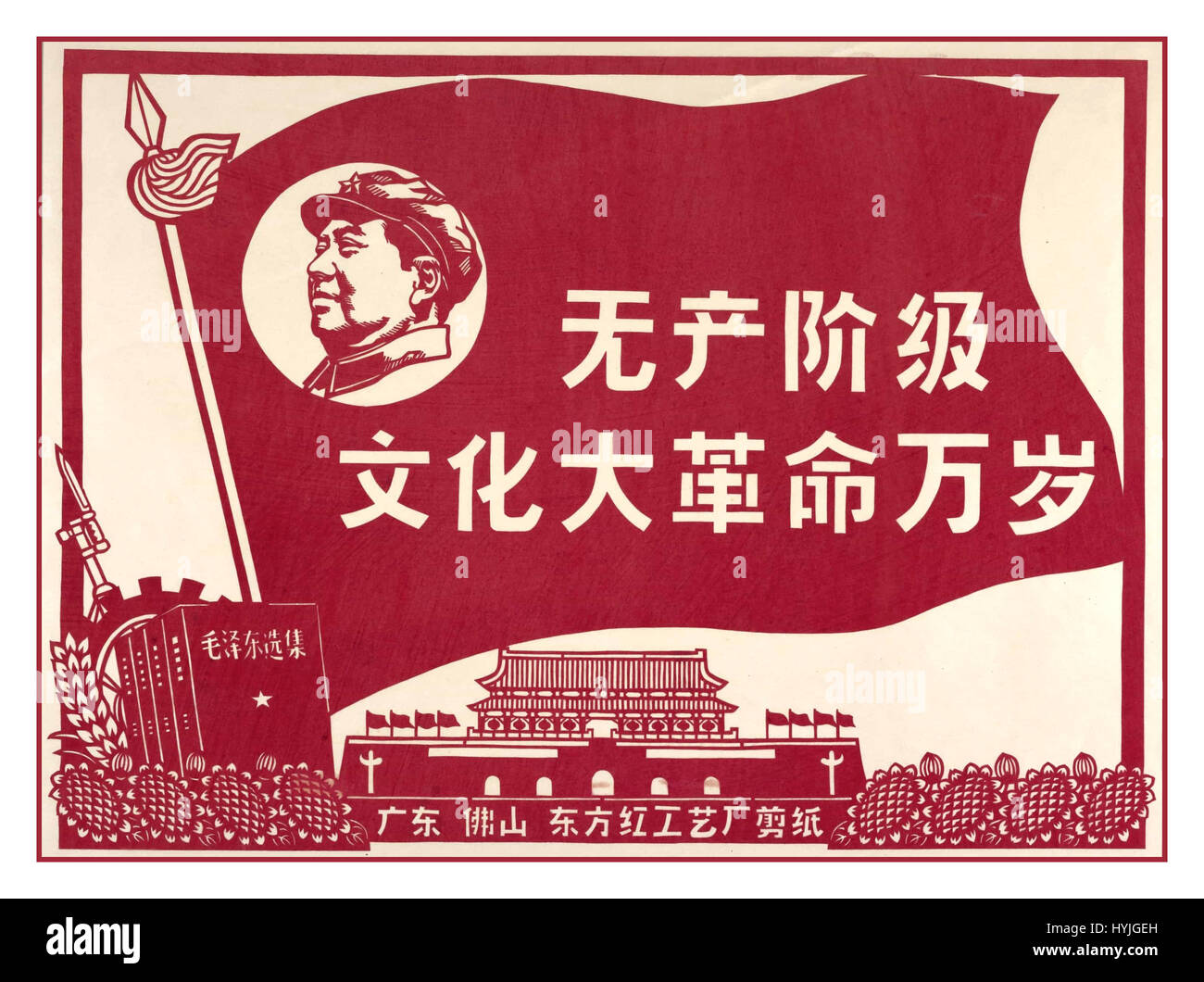 Vintage historic political propaganda poster for Chairman Mao 'LONG LIVE THE GREAT PROLETARIAN CULTURAL REVOLUTION IN CHINA' Stock Photohttps://www.alamy.com/image-license-details/?v=1https://www.alamy.com/stock-photo-vintage-historic-political-propaganda-poster-for-chairman-mao-long-137476377.html
Vintage historic political propaganda poster for Chairman Mao 'LONG LIVE THE GREAT PROLETARIAN CULTURAL REVOLUTION IN CHINA' Stock Photohttps://www.alamy.com/image-license-details/?v=1https://www.alamy.com/stock-photo-vintage-historic-political-propaganda-poster-for-chairman-mao-long-137476377.htmlRMHYJGEH–Vintage historic political propaganda poster for Chairman Mao 'LONG LIVE THE GREAT PROLETARIAN CULTURAL REVOLUTION IN CHINA'
 Modern Revolutionary Ballet in 1976 Beijing during Cultural Revolution entitled Sons and Daughters of the Grasslands by Central Stock Photohttps://www.alamy.com/image-license-details/?v=1https://www.alamy.com/stock-photo-modern-revolutionary-ballet-in-1976-beijing-during-cultural-revolution-16641397.html
Modern Revolutionary Ballet in 1976 Beijing during Cultural Revolution entitled Sons and Daughters of the Grasslands by Central Stock Photohttps://www.alamy.com/image-license-details/?v=1https://www.alamy.com/stock-photo-modern-revolutionary-ballet-in-1976-beijing-during-cultural-revolution-16641397.htmlRMAWREHX–Modern Revolutionary Ballet in 1976 Beijing during Cultural Revolution entitled Sons and Daughters of the Grasslands by Central
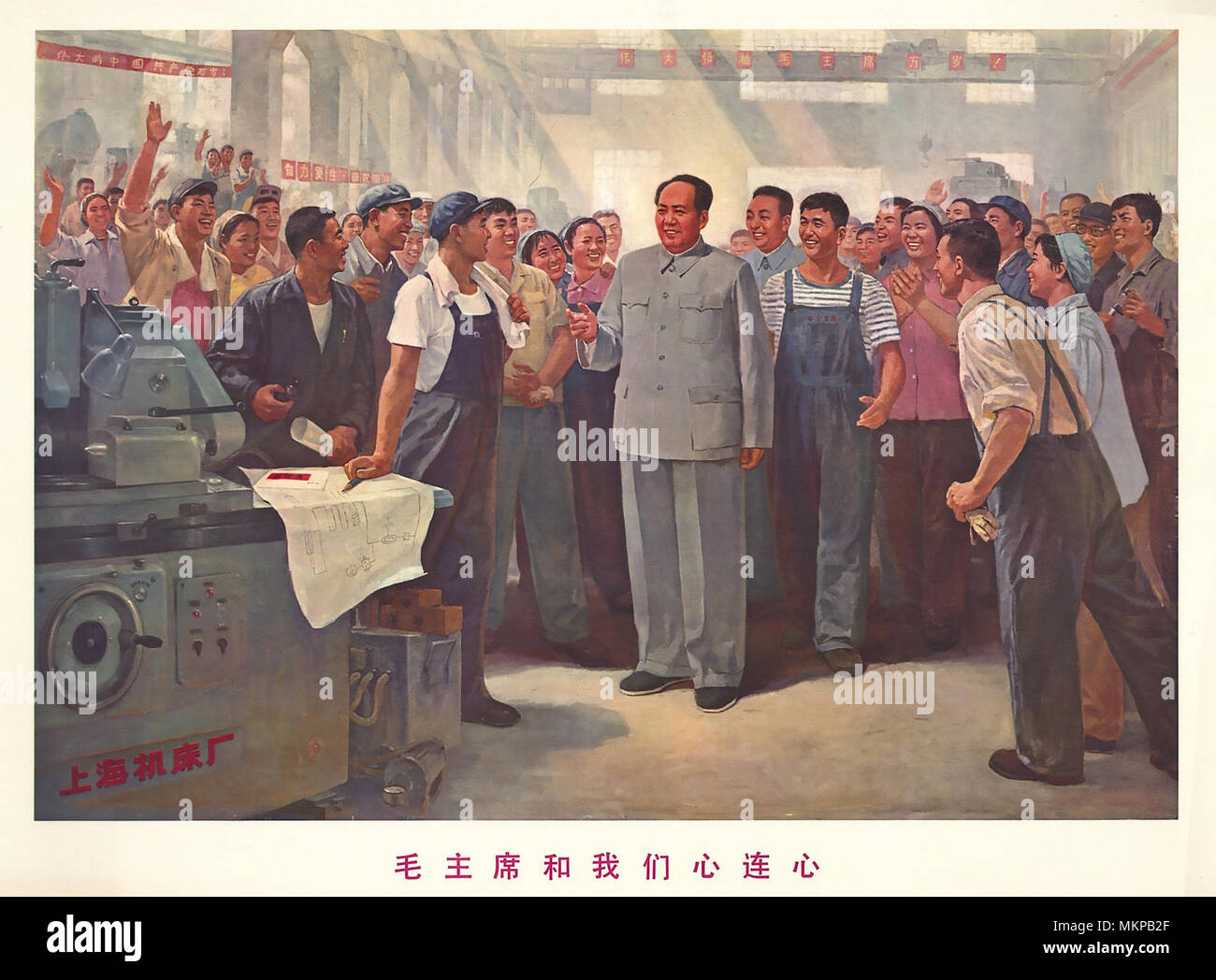 Chinese Cultural Revolution 1950's Propaganda Picture Poster of the Working Class advocated by the Chinese Cultural Revolution with Chairman Mao surrounded by his adoring workers Stock Photohttps://www.alamy.com/image-license-details/?v=1https://www.alamy.com/chinese-cultural-revolution-1950s-propaganda-picture-poster-of-the-working-class-advocated-by-the-chinese-cultural-revolution-with-chairman-mao-surrounded-by-his-adoring-workers-image184273783.html
Chinese Cultural Revolution 1950's Propaganda Picture Poster of the Working Class advocated by the Chinese Cultural Revolution with Chairman Mao surrounded by his adoring workers Stock Photohttps://www.alamy.com/image-license-details/?v=1https://www.alamy.com/chinese-cultural-revolution-1950s-propaganda-picture-poster-of-the-working-class-advocated-by-the-chinese-cultural-revolution-with-chairman-mao-surrounded-by-his-adoring-workers-image184273783.htmlRMMKPB2F–Chinese Cultural Revolution 1950's Propaganda Picture Poster of the Working Class advocated by the Chinese Cultural Revolution with Chairman Mao surrounded by his adoring workers
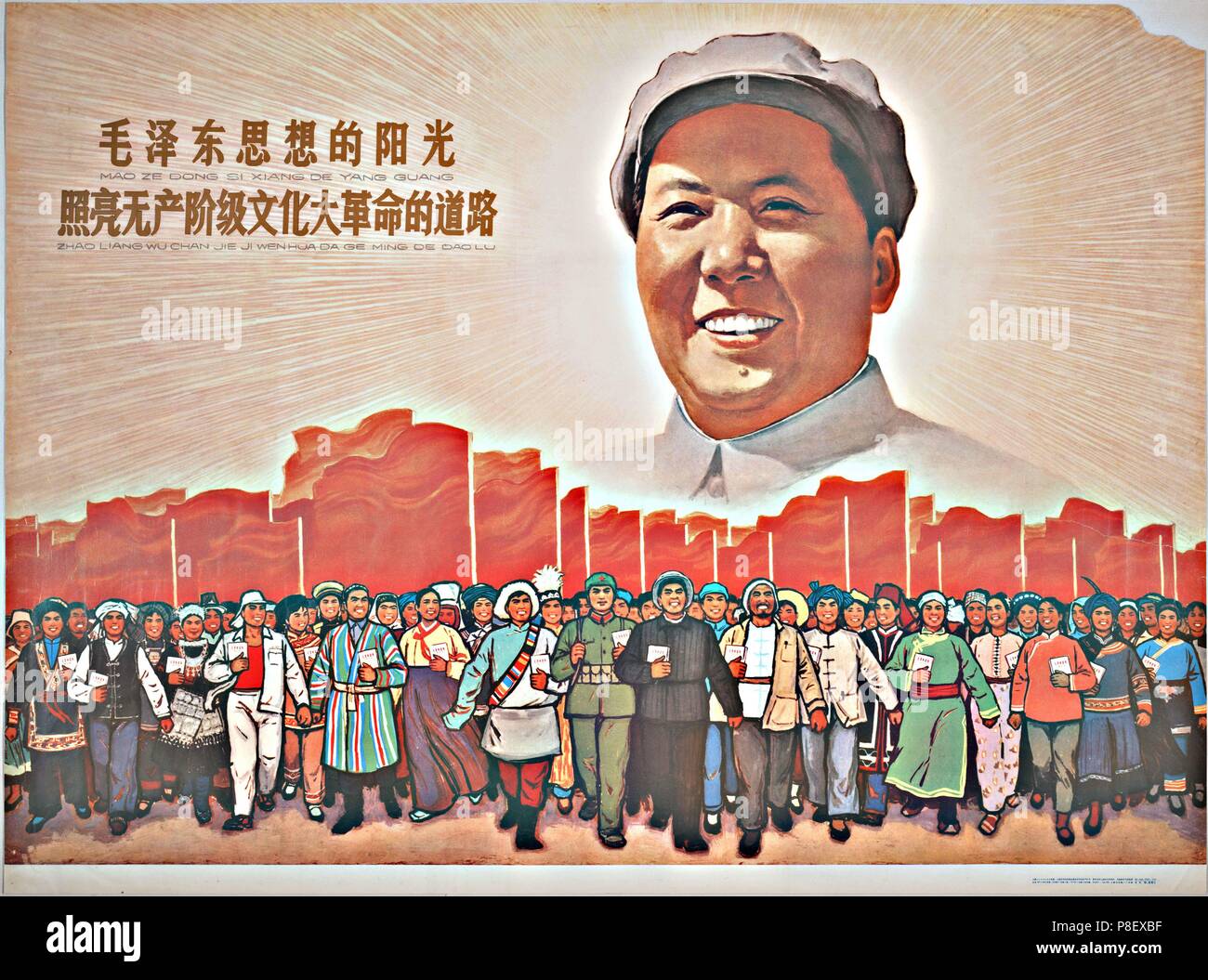 The Sunshine of Mao Zedong Thought Illuminates the Path of the Great Proletarian Cultural Revolution. Museum: PRIVATE COLLECTION. Stock Photohttps://www.alamy.com/image-license-details/?v=1https://www.alamy.com/the-sunshine-of-mao-zedong-thought-illuminates-the-path-of-the-great-proletarian-cultural-revolution-museum-private-collection-image211769699.html
The Sunshine of Mao Zedong Thought Illuminates the Path of the Great Proletarian Cultural Revolution. Museum: PRIVATE COLLECTION. Stock Photohttps://www.alamy.com/image-license-details/?v=1https://www.alamy.com/the-sunshine-of-mao-zedong-thought-illuminates-the-path-of-the-great-proletarian-cultural-revolution-museum-private-collection-image211769699.htmlRMP8EXBF–The Sunshine of Mao Zedong Thought Illuminates the Path of the Great Proletarian Cultural Revolution. Museum: PRIVATE COLLECTION.
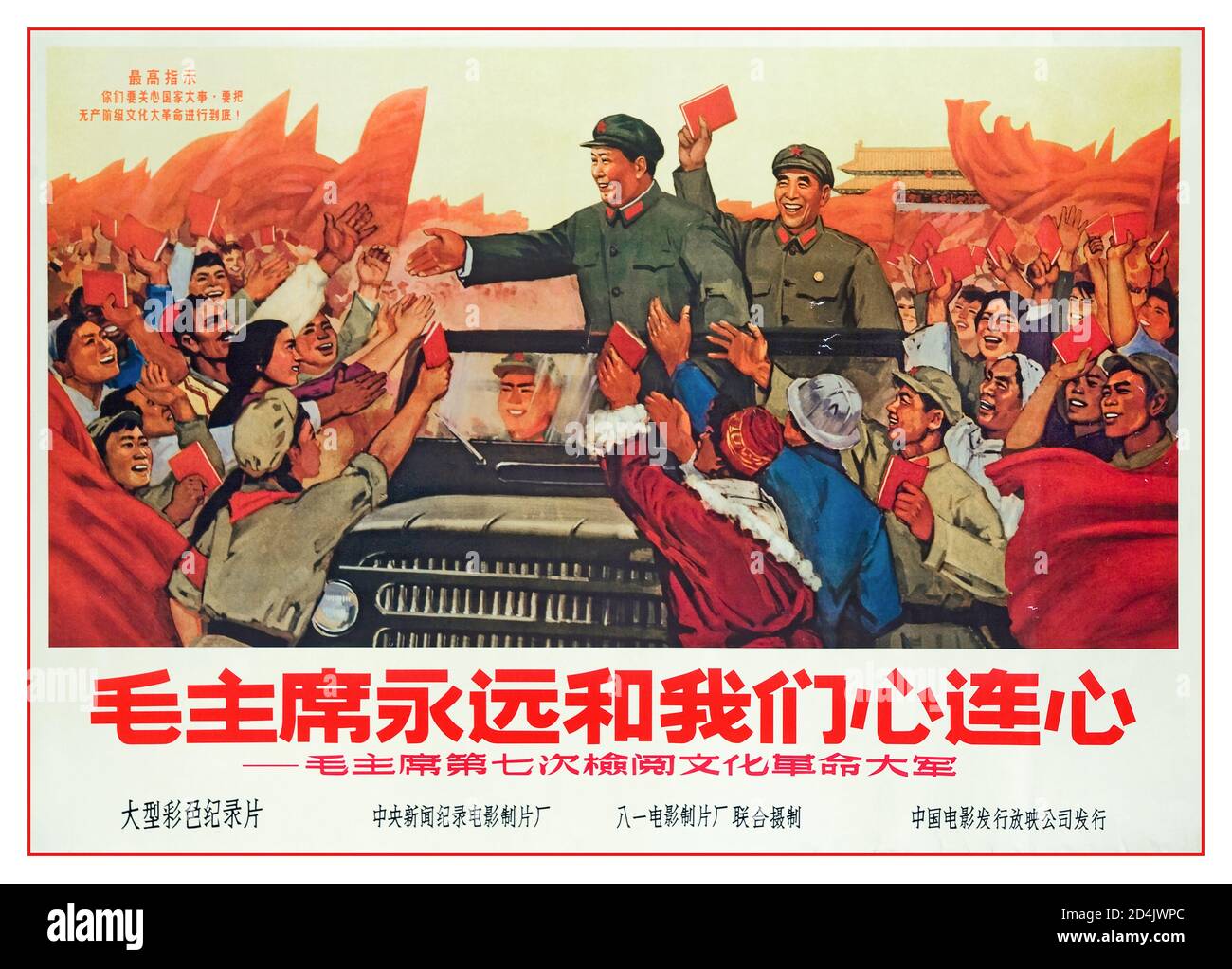 Vintage 1960's Poster Chairman Mao Zedong Chinese Cultural Revolution Poster The Cultural Revolution, formally the Great Proletarian Cultural Revolution, was a sociopolitical movement in China from 1966 until 1976. Stock Photohttps://www.alamy.com/image-license-details/?v=1https://www.alamy.com/vintage-1960s-poster-chairman-mao-zedong-chinese-cultural-revolution-poster-the-cultural-revolution-formally-the-great-proletarian-cultural-revolution-was-a-sociopolitical-movement-in-china-from-1966-until-1976-image381502084.html
Vintage 1960's Poster Chairman Mao Zedong Chinese Cultural Revolution Poster The Cultural Revolution, formally the Great Proletarian Cultural Revolution, was a sociopolitical movement in China from 1966 until 1976. Stock Photohttps://www.alamy.com/image-license-details/?v=1https://www.alamy.com/vintage-1960s-poster-chairman-mao-zedong-chinese-cultural-revolution-poster-the-cultural-revolution-formally-the-great-proletarian-cultural-revolution-was-a-sociopolitical-movement-in-china-from-1966-until-1976-image381502084.htmlRM2D4JWPC–Vintage 1960's Poster Chairman Mao Zedong Chinese Cultural Revolution Poster The Cultural Revolution, formally the Great Proletarian Cultural Revolution, was a sociopolitical movement in China from 1966 until 1976.
 Propaganda from the Chinese Cultural Revolution. The Great Proletarian Cultural Revolution was a social-political movement that took place in the People's Republic of China. Set into motion by Mao Zedong, then Chairman of the Communist Party of China, its stated goal was to enforce communism in the country by removing capitalist, traditional and cultural elements from Chinese society, and to impose Maoist orthodoxy within the Party. The movement paralyzed China politically and significantly affected the country economically and socially. Stock Photohttps://www.alamy.com/image-license-details/?v=1https://www.alamy.com/propaganda-from-the-chinese-cultural-revolution-the-great-proletarian-cultural-revolution-was-a-social-political-movement-that-took-place-in-the-peoples-republic-of-china-set-into-motion-by-mao-zedong-then-chairman-of-the-communist-party-of-china-its-stated-goal-was-to-enforce-communism-in-the-country-by-removing-capitalist-traditional-and-cultural-elements-from-chinese-society-and-to-impose-maoist-orthodoxy-within-the-party-the-movement-paralyzed-china-politically-and-significantly-affected-the-country-economically-and-socially-image210385552.html
Propaganda from the Chinese Cultural Revolution. The Great Proletarian Cultural Revolution was a social-political movement that took place in the People's Republic of China. Set into motion by Mao Zedong, then Chairman of the Communist Party of China, its stated goal was to enforce communism in the country by removing capitalist, traditional and cultural elements from Chinese society, and to impose Maoist orthodoxy within the Party. The movement paralyzed China politically and significantly affected the country economically and socially. Stock Photohttps://www.alamy.com/image-license-details/?v=1https://www.alamy.com/propaganda-from-the-chinese-cultural-revolution-the-great-proletarian-cultural-revolution-was-a-social-political-movement-that-took-place-in-the-peoples-republic-of-china-set-into-motion-by-mao-zedong-then-chairman-of-the-communist-party-of-china-its-stated-goal-was-to-enforce-communism-in-the-country-by-removing-capitalist-traditional-and-cultural-elements-from-chinese-society-and-to-impose-maoist-orthodoxy-within-the-party-the-movement-paralyzed-china-politically-and-significantly-affected-the-country-economically-and-socially-image210385552.htmlRMP67TWM–Propaganda from the Chinese Cultural Revolution. The Great Proletarian Cultural Revolution was a social-political movement that took place in the People's Republic of China. Set into motion by Mao Zedong, then Chairman of the Communist Party of China, its stated goal was to enforce communism in the country by removing capitalist, traditional and cultural elements from Chinese society, and to impose Maoist orthodoxy within the Party. The movement paralyzed China politically and significantly affected the country economically and socially.
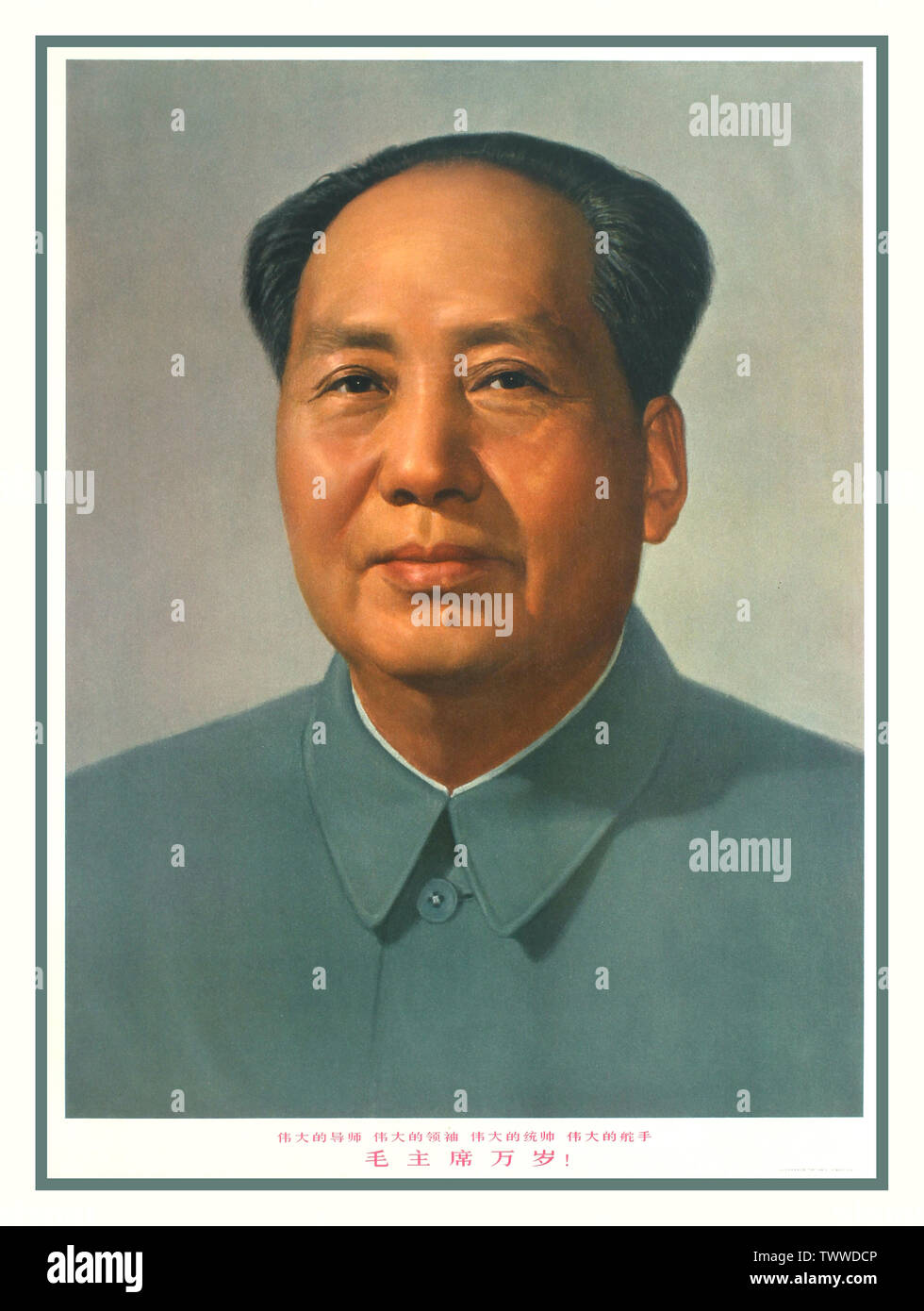 Chairman Mao Chinese Propaganda poster published in 1969 featuring an official portrait of Mao Zedong, Great Mentor, Great Leader, Great Commander, Great Statesman. China, 1967, Mao Zedong (December 26, 1893 – September 9, 1976), also known as Chairman Mao, was a Chinese communist revolutionary who became the founding father of the People's Republic of China, which he ruled as the Chairman of the Communist Party of China from its establishment in 1949 until his death in 1976. His theories, military strategies, and political policies are collectively known as Maoism. Stock Photohttps://www.alamy.com/image-license-details/?v=1https://www.alamy.com/chairman-mao-chinese-propaganda-poster-published-in-1969-featuring-an-official-portrait-of-mao-zedong-great-mentor-great-leader-great-commander-great-statesman-china-1967-mao-zedong-december-26-1893-september-9-1976-also-known-as-chairman-mao-was-a-chinese-communist-revolutionary-who-became-the-founding-father-of-the-peoples-republic-of-china-which-he-ruled-as-the-chairman-of-the-communist-party-of-china-from-its-establishment-in-1949-until-his-death-in-1976-his-theories-military-strategies-and-political-policies-are-collectively-known-as-maoism-image256870902.html
Chairman Mao Chinese Propaganda poster published in 1969 featuring an official portrait of Mao Zedong, Great Mentor, Great Leader, Great Commander, Great Statesman. China, 1967, Mao Zedong (December 26, 1893 – September 9, 1976), also known as Chairman Mao, was a Chinese communist revolutionary who became the founding father of the People's Republic of China, which he ruled as the Chairman of the Communist Party of China from its establishment in 1949 until his death in 1976. His theories, military strategies, and political policies are collectively known as Maoism. Stock Photohttps://www.alamy.com/image-license-details/?v=1https://www.alamy.com/chairman-mao-chinese-propaganda-poster-published-in-1969-featuring-an-official-portrait-of-mao-zedong-great-mentor-great-leader-great-commander-great-statesman-china-1967-mao-zedong-december-26-1893-september-9-1976-also-known-as-chairman-mao-was-a-chinese-communist-revolutionary-who-became-the-founding-father-of-the-peoples-republic-of-china-which-he-ruled-as-the-chairman-of-the-communist-party-of-china-from-its-establishment-in-1949-until-his-death-in-1976-his-theories-military-strategies-and-political-policies-are-collectively-known-as-maoism-image256870902.htmlRMTWWDCP–Chairman Mao Chinese Propaganda poster published in 1969 featuring an official portrait of Mao Zedong, Great Mentor, Great Leader, Great Commander, Great Statesman. China, 1967, Mao Zedong (December 26, 1893 – September 9, 1976), also known as Chairman Mao, was a Chinese communist revolutionary who became the founding father of the People's Republic of China, which he ruled as the Chairman of the Communist Party of China from its establishment in 1949 until his death in 1976. His theories, military strategies, and political policies are collectively known as Maoism.
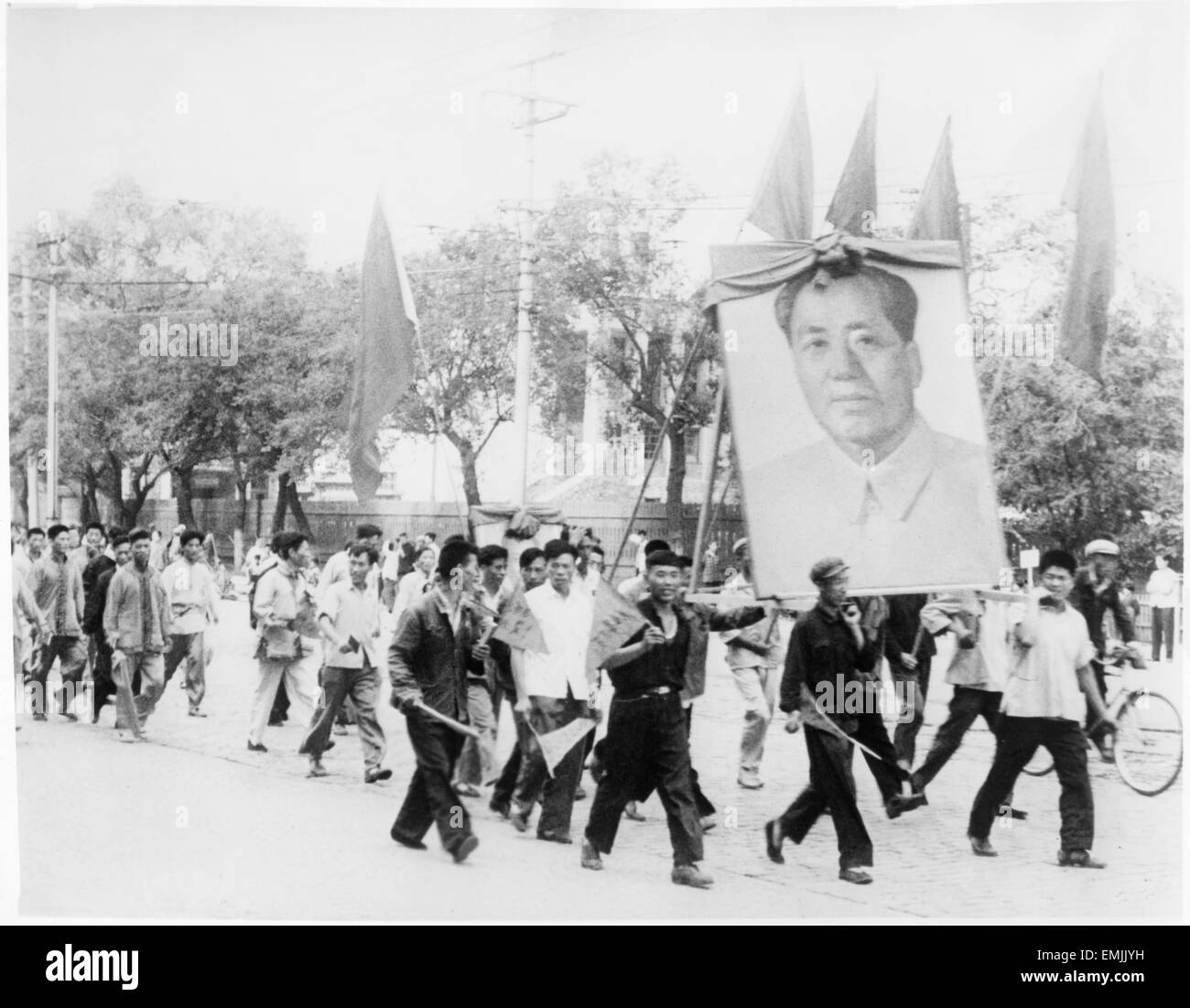 Demonstration Celebrating Great Proletarian Cultural Revolution with Portrait of Chairman Mao Zedong and Red Flags”, Documentary Film “Report From China', 1973 Stock Photohttps://www.alamy.com/image-license-details/?v=1https://www.alamy.com/stock-photo-demonstration-celebrating-great-proletarian-cultural-revolution-with-81544613.html
Demonstration Celebrating Great Proletarian Cultural Revolution with Portrait of Chairman Mao Zedong and Red Flags”, Documentary Film “Report From China', 1973 Stock Photohttps://www.alamy.com/image-license-details/?v=1https://www.alamy.com/stock-photo-demonstration-celebrating-great-proletarian-cultural-revolution-with-81544613.htmlRMEMJJYH–Demonstration Celebrating Great Proletarian Cultural Revolution with Portrait of Chairman Mao Zedong and Red Flags”, Documentary Film “Report From China', 1973
 Vintage Chinese Propaganda Poster with an imposing profile graphic of Chairman Mao ‘The force at the core leading our cause forward is the Chinese Communist Party. The theoretical basis guiding our thinking is Marxism-Leninism’ CHINESE COMMUNIST POSTER. Chinese poster, 1967, honouring Mao Tse-Tung (1898-1976) and his 'Little Red Book' ('Quotations and thoughts from Chairman Mao'). Stock Photohttps://www.alamy.com/image-license-details/?v=1https://www.alamy.com/vintage-chinese-propaganda-poster-with-an-imposing-profile-graphic-of-chairman-mao-the-force-at-the-core-leading-our-cause-forward-is-the-chinese-communist-party-the-theoretical-basis-guiding-our-thinking-is-marxism-leninism-chinese-communist-poster-chinese-poster-1967-honouring-mao-tse-tung-1898-1976-and-his-little-red-book-quotations-and-thoughts-from-chairman-mao-image402524443.html
Vintage Chinese Propaganda Poster with an imposing profile graphic of Chairman Mao ‘The force at the core leading our cause forward is the Chinese Communist Party. The theoretical basis guiding our thinking is Marxism-Leninism’ CHINESE COMMUNIST POSTER. Chinese poster, 1967, honouring Mao Tse-Tung (1898-1976) and his 'Little Red Book' ('Quotations and thoughts from Chairman Mao'). Stock Photohttps://www.alamy.com/image-license-details/?v=1https://www.alamy.com/vintage-chinese-propaganda-poster-with-an-imposing-profile-graphic-of-chairman-mao-the-force-at-the-core-leading-our-cause-forward-is-the-chinese-communist-party-the-theoretical-basis-guiding-our-thinking-is-marxism-leninism-chinese-communist-poster-chinese-poster-1967-honouring-mao-tse-tung-1898-1976-and-his-little-red-book-quotations-and-thoughts-from-chairman-mao-image402524443.htmlRM2EATG0Y–Vintage Chinese Propaganda Poster with an imposing profile graphic of Chairman Mao ‘The force at the core leading our cause forward is the Chinese Communist Party. The theoretical basis guiding our thinking is Marxism-Leninism’ CHINESE COMMUNIST POSTER. Chinese poster, 1967, honouring Mao Tse-Tung (1898-1976) and his 'Little Red Book' ('Quotations and thoughts from Chairman Mao').
 Peking, China: in the final of 'The Whitehead girl,' a ballet on ' class struggle,' the heroine His-Erh dances with her betrothed, Ta Chun, soldier of the eighth route army. Peking extols this drama as a triumph for Mao Tse-Tung’s thoughts in China’s' great proletarian Cultural revolution.'. 24th January, 1967 Stock Photohttps://www.alamy.com/image-license-details/?v=1https://www.alamy.com/peking-china-in-the-final-of-the-whitehead-girl-a-ballet-on-class-struggle-the-heroine-his-erh-dances-with-her-betrothed-ta-chun-soldier-of-the-eighth-route-army-peking-extols-this-drama-as-a-triumph-for-mao-tse-tungs-thoughts-in-chinas-great-proletarian-cultural-revolution-24th-january-1967-image623718893.html
Peking, China: in the final of 'The Whitehead girl,' a ballet on ' class struggle,' the heroine His-Erh dances with her betrothed, Ta Chun, soldier of the eighth route army. Peking extols this drama as a triumph for Mao Tse-Tung’s thoughts in China’s' great proletarian Cultural revolution.'. 24th January, 1967 Stock Photohttps://www.alamy.com/image-license-details/?v=1https://www.alamy.com/peking-china-in-the-final-of-the-whitehead-girl-a-ballet-on-class-struggle-the-heroine-his-erh-dances-with-her-betrothed-ta-chun-soldier-of-the-eighth-route-army-peking-extols-this-drama-as-a-triumph-for-mao-tse-tungs-thoughts-in-chinas-great-proletarian-cultural-revolution-24th-january-1967-image623718893.htmlRM2Y6MRPN–Peking, China: in the final of 'The Whitehead girl,' a ballet on ' class struggle,' the heroine His-Erh dances with her betrothed, Ta Chun, soldier of the eighth route army. Peking extols this drama as a triumph for Mao Tse-Tung’s thoughts in China’s' great proletarian Cultural revolution.'. 24th January, 1967
 1960’s Chairman Mao Vintage Chinese Propaganda poster published in 1969 featuring a photograph of a young Mao Zedong, delivering a report to cadres in Yan'an, 1941. China, 1969 Mao Zedong (December 26, 1893 – September 9, 1976), also known as Chairman Mao, was a Chinese communist revolutionary who became the founding father of the People's Republic of China, which he ruled as the Chairman of the Communist Party of China from its establishment in 1949 until his death in 1976. His theories, military strategies, and political policies are collectively known as Maoism. Stock Photohttps://www.alamy.com/image-license-details/?v=1https://www.alamy.com/1960s-chairman-mao-vintage-chinese-propaganda-poster-published-in-1969-featuring-a-photograph-of-a-young-mao-zedong-delivering-a-report-to-cadres-in-yanan-1941-china-1969-mao-zedong-december-26-1893-september-9-1976-also-known-as-chairman-mao-was-a-chinese-communist-revolutionary-who-became-the-founding-father-of-the-peoples-republic-of-china-which-he-ruled-as-the-chairman-of-the-communist-party-of-china-from-its-establishment-in-1949-until-his-death-in-1976-his-theories-military-strategies-and-political-policies-are-collectively-known-as-maoism-image256870897.html
1960’s Chairman Mao Vintage Chinese Propaganda poster published in 1969 featuring a photograph of a young Mao Zedong, delivering a report to cadres in Yan'an, 1941. China, 1969 Mao Zedong (December 26, 1893 – September 9, 1976), also known as Chairman Mao, was a Chinese communist revolutionary who became the founding father of the People's Republic of China, which he ruled as the Chairman of the Communist Party of China from its establishment in 1949 until his death in 1976. His theories, military strategies, and political policies are collectively known as Maoism. Stock Photohttps://www.alamy.com/image-license-details/?v=1https://www.alamy.com/1960s-chairman-mao-vintage-chinese-propaganda-poster-published-in-1969-featuring-a-photograph-of-a-young-mao-zedong-delivering-a-report-to-cadres-in-yanan-1941-china-1969-mao-zedong-december-26-1893-september-9-1976-also-known-as-chairman-mao-was-a-chinese-communist-revolutionary-who-became-the-founding-father-of-the-peoples-republic-of-china-which-he-ruled-as-the-chairman-of-the-communist-party-of-china-from-its-establishment-in-1949-until-his-death-in-1976-his-theories-military-strategies-and-political-policies-are-collectively-known-as-maoism-image256870897.htmlRMTWWDCH–1960’s Chairman Mao Vintage Chinese Propaganda poster published in 1969 featuring a photograph of a young Mao Zedong, delivering a report to cadres in Yan'an, 1941. China, 1969 Mao Zedong (December 26, 1893 – September 9, 1976), also known as Chairman Mao, was a Chinese communist revolutionary who became the founding father of the People's Republic of China, which he ruled as the Chairman of the Communist Party of China from its establishment in 1949 until his death in 1976. His theories, military strategies, and political policies are collectively known as Maoism.
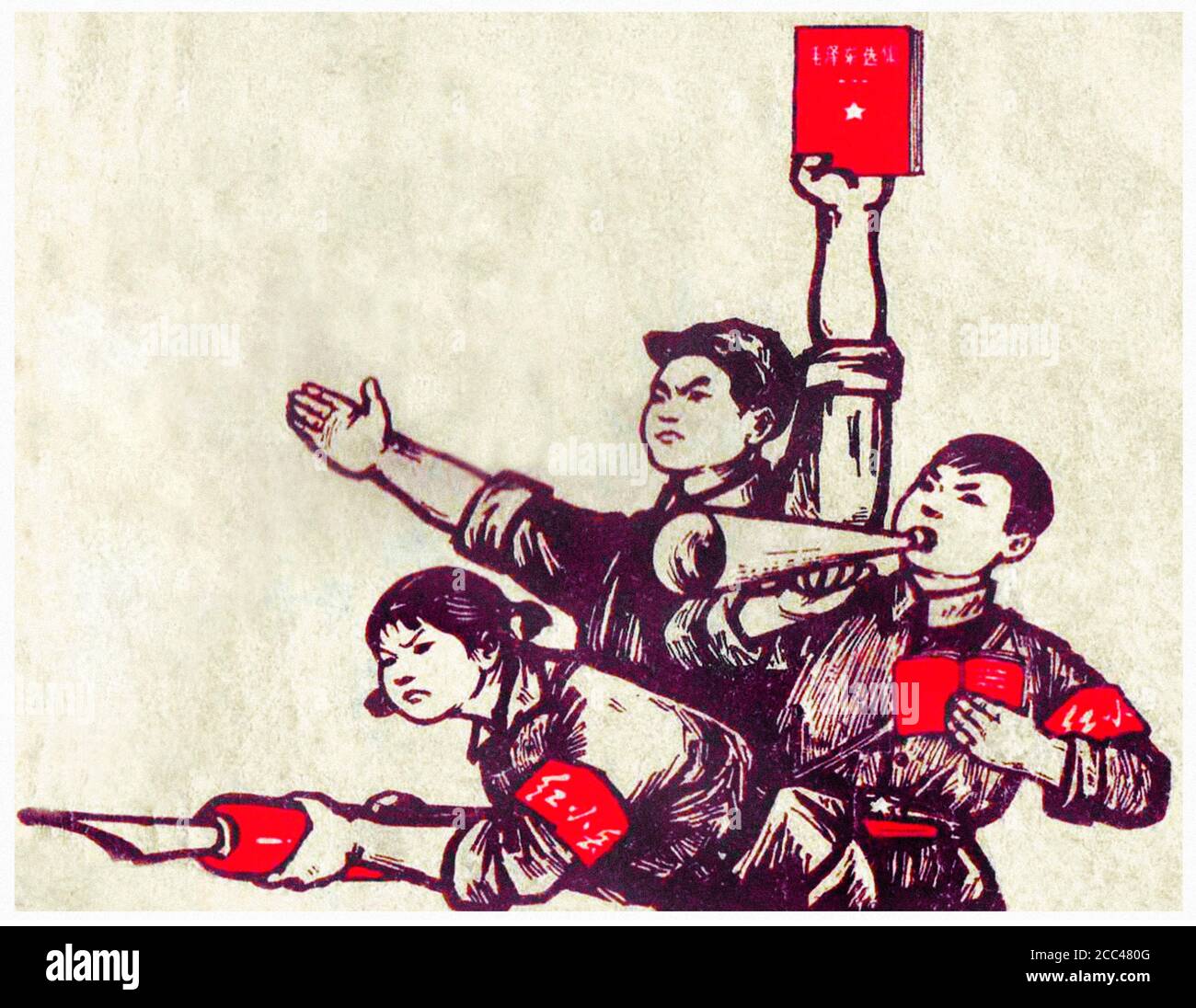 Chinese Cultural Revolution time. China. 1960s-1970s The Great Proletarian Cultural Revolution, was a sociopolitical movement in China from 1966 until Stock Photohttps://www.alamy.com/image-license-details/?v=1https://www.alamy.com/chinese-cultural-revolution-time-china-1960s-1970s-the-great-proletarian-cultural-revolution-was-a-sociopolitical-movement-in-china-from-1966-until-image368887696.html
Chinese Cultural Revolution time. China. 1960s-1970s The Great Proletarian Cultural Revolution, was a sociopolitical movement in China from 1966 until Stock Photohttps://www.alamy.com/image-license-details/?v=1https://www.alamy.com/chinese-cultural-revolution-time-china-1960s-1970s-the-great-proletarian-cultural-revolution-was-a-sociopolitical-movement-in-china-from-1966-until-image368887696.htmlRF2CC480G–Chinese Cultural Revolution time. China. 1960s-1970s The Great Proletarian Cultural Revolution, was a sociopolitical movement in China from 1966 until
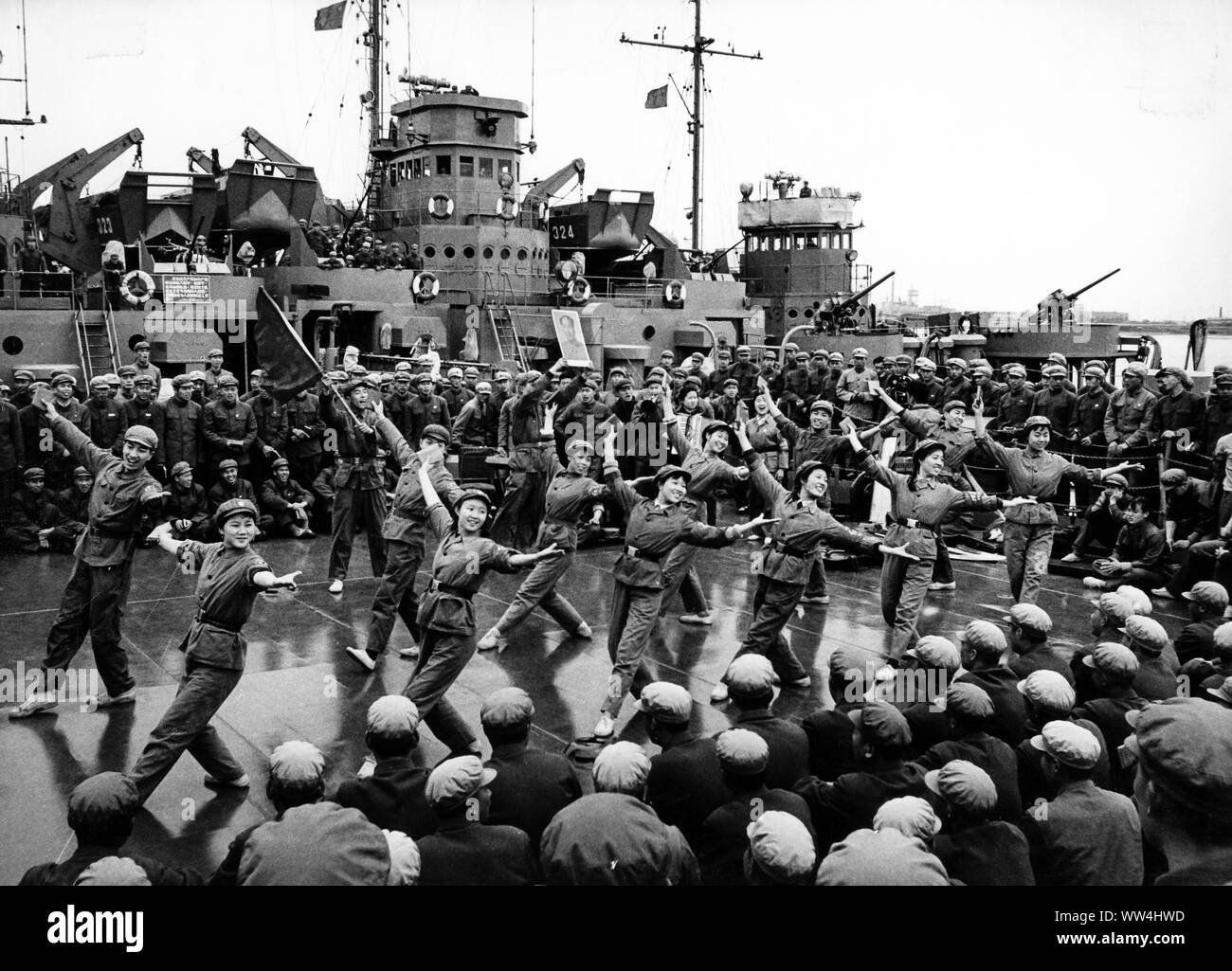 workers and red guards participating in the theatrical performance of workers, peasants and soldiers, the festival of shanghai, the great proletarian cultural revolution, July 1967 Stock Photohttps://www.alamy.com/image-license-details/?v=1https://www.alamy.com/workers-and-red-guards-participating-in-the-theatrical-performance-of-workers-peasants-and-soldiers-the-festival-of-shanghai-the-great-proletarian-cultural-revolution-july-1967-image273623769.html
workers and red guards participating in the theatrical performance of workers, peasants and soldiers, the festival of shanghai, the great proletarian cultural revolution, July 1967 Stock Photohttps://www.alamy.com/image-license-details/?v=1https://www.alamy.com/workers-and-red-guards-participating-in-the-theatrical-performance-of-workers-peasants-and-soldiers-the-festival-of-shanghai-the-great-proletarian-cultural-revolution-july-1967-image273623769.htmlRMWW4HWD–workers and red guards participating in the theatrical performance of workers, peasants and soldiers, the festival of shanghai, the great proletarian cultural revolution, July 1967
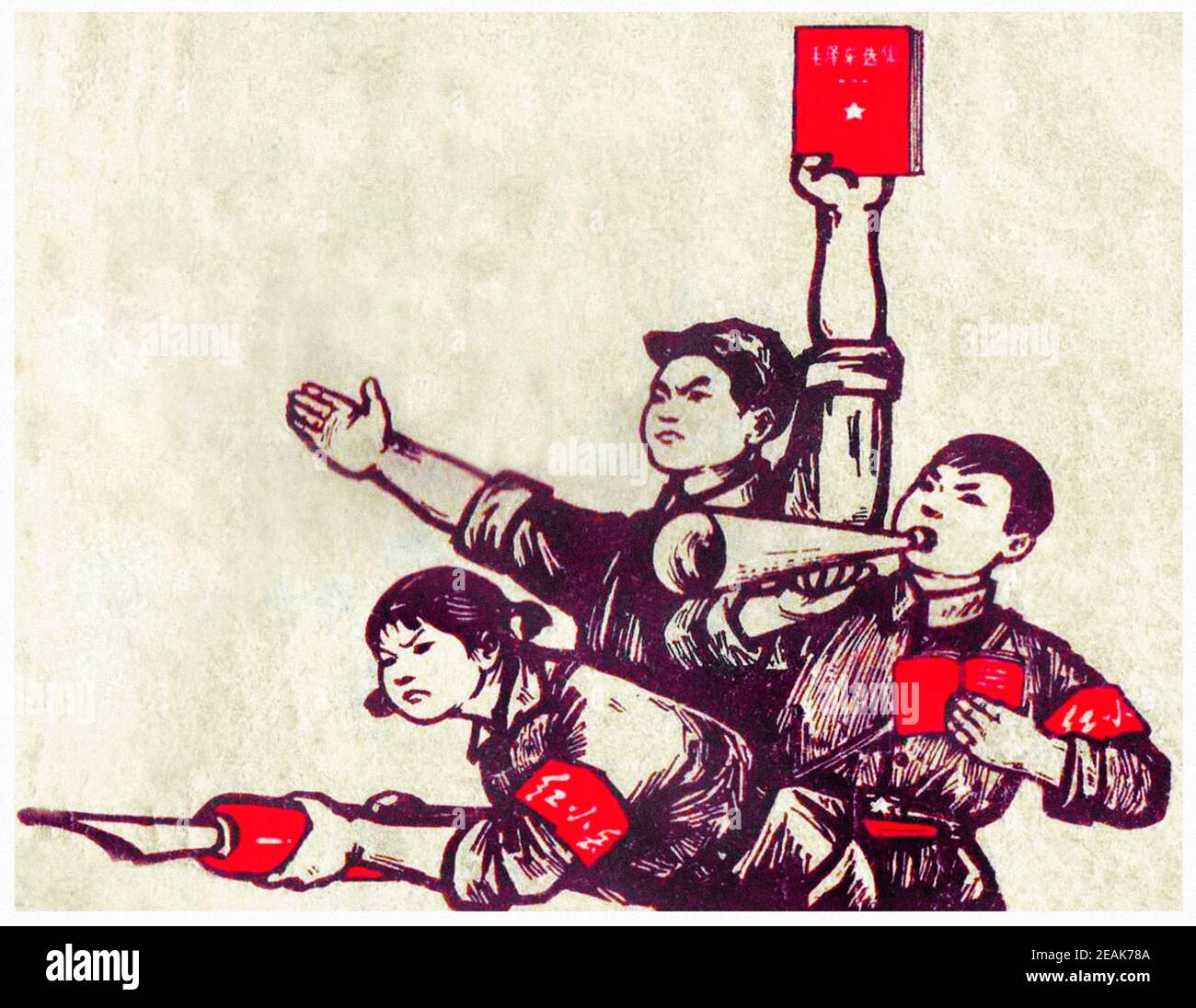 Chinese Cultural Revolution time. China. 1960s-1970s The Great Proletarian Cultural Revolution, was a sociopolitical movement in China from 1966 until Stock Photohttps://www.alamy.com/image-license-details/?v=1https://www.alamy.com/chinese-cultural-revolution-time-china-1960s-1970s-the-great-proletarian-cultural-revolution-was-a-sociopolitical-movement-in-china-from-1966-until-image402407834.html
Chinese Cultural Revolution time. China. 1960s-1970s The Great Proletarian Cultural Revolution, was a sociopolitical movement in China from 1966 until Stock Photohttps://www.alamy.com/image-license-details/?v=1https://www.alamy.com/chinese-cultural-revolution-time-china-1960s-1970s-the-great-proletarian-cultural-revolution-was-a-sociopolitical-movement-in-china-from-1966-until-image402407834.htmlRM2EAK78A–Chinese Cultural Revolution time. China. 1960s-1970s The Great Proletarian Cultural Revolution, was a sociopolitical movement in China from 1966 until
 China/Tibet: Chinese propaganda image of happy Tibetans enjoying freshly-churned butter tea at the time of the Great Proletarian Cultural Revolution (1966-1976). The Tea Horse Road (Cha Ma Dao) was a network of mule caravan paths winding through the mountains of Yunnan, Sichuan and Tibet in Southwest China. It is also sometimes referred to as the Southern Silk Road and Ancient Tea and Horse Road. From around a thousand years ago, the Ancient Tea Route was a trade link from Yunnan, one of the first tea-producing regions, to India via Burma, to Tibet, and to central China via Sichuan Province. Stock Photohttps://www.alamy.com/image-license-details/?v=1https://www.alamy.com/chinatibet-chinese-propaganda-image-of-happy-tibetans-enjoying-freshly-churned-butter-tea-at-the-time-of-the-great-proletarian-cultural-revolution-1966-1976-the-tea-horse-road-cha-ma-dao-was-a-network-of-mule-caravan-paths-winding-through-the-mountains-of-yunnan-sichuan-and-tibet-in-southwest-china-it-is-also-sometimes-referred-to-as-the-southern-silk-road-and-ancient-tea-and-horse-road-from-around-a-thousand-years-ago-the-ancient-tea-route-was-a-trade-link-from-yunnan-one-of-the-first-tea-producing-regions-to-india-via-burma-to-tibet-and-to-central-china-via-sichuan-province-image344249508.html
China/Tibet: Chinese propaganda image of happy Tibetans enjoying freshly-churned butter tea at the time of the Great Proletarian Cultural Revolution (1966-1976). The Tea Horse Road (Cha Ma Dao) was a network of mule caravan paths winding through the mountains of Yunnan, Sichuan and Tibet in Southwest China. It is also sometimes referred to as the Southern Silk Road and Ancient Tea and Horse Road. From around a thousand years ago, the Ancient Tea Route was a trade link from Yunnan, one of the first tea-producing regions, to India via Burma, to Tibet, and to central China via Sichuan Province. Stock Photohttps://www.alamy.com/image-license-details/?v=1https://www.alamy.com/chinatibet-chinese-propaganda-image-of-happy-tibetans-enjoying-freshly-churned-butter-tea-at-the-time-of-the-great-proletarian-cultural-revolution-1966-1976-the-tea-horse-road-cha-ma-dao-was-a-network-of-mule-caravan-paths-winding-through-the-mountains-of-yunnan-sichuan-and-tibet-in-southwest-china-it-is-also-sometimes-referred-to-as-the-southern-silk-road-and-ancient-tea-and-horse-road-from-around-a-thousand-years-ago-the-ancient-tea-route-was-a-trade-link-from-yunnan-one-of-the-first-tea-producing-regions-to-india-via-burma-to-tibet-and-to-central-china-via-sichuan-province-image344249508.htmlRM2B01WN8–China/Tibet: Chinese propaganda image of happy Tibetans enjoying freshly-churned butter tea at the time of the Great Proletarian Cultural Revolution (1966-1976). The Tea Horse Road (Cha Ma Dao) was a network of mule caravan paths winding through the mountains of Yunnan, Sichuan and Tibet in Southwest China. It is also sometimes referred to as the Southern Silk Road and Ancient Tea and Horse Road. From around a thousand years ago, the Ancient Tea Route was a trade link from Yunnan, one of the first tea-producing regions, to India via Burma, to Tibet, and to central China via Sichuan Province.
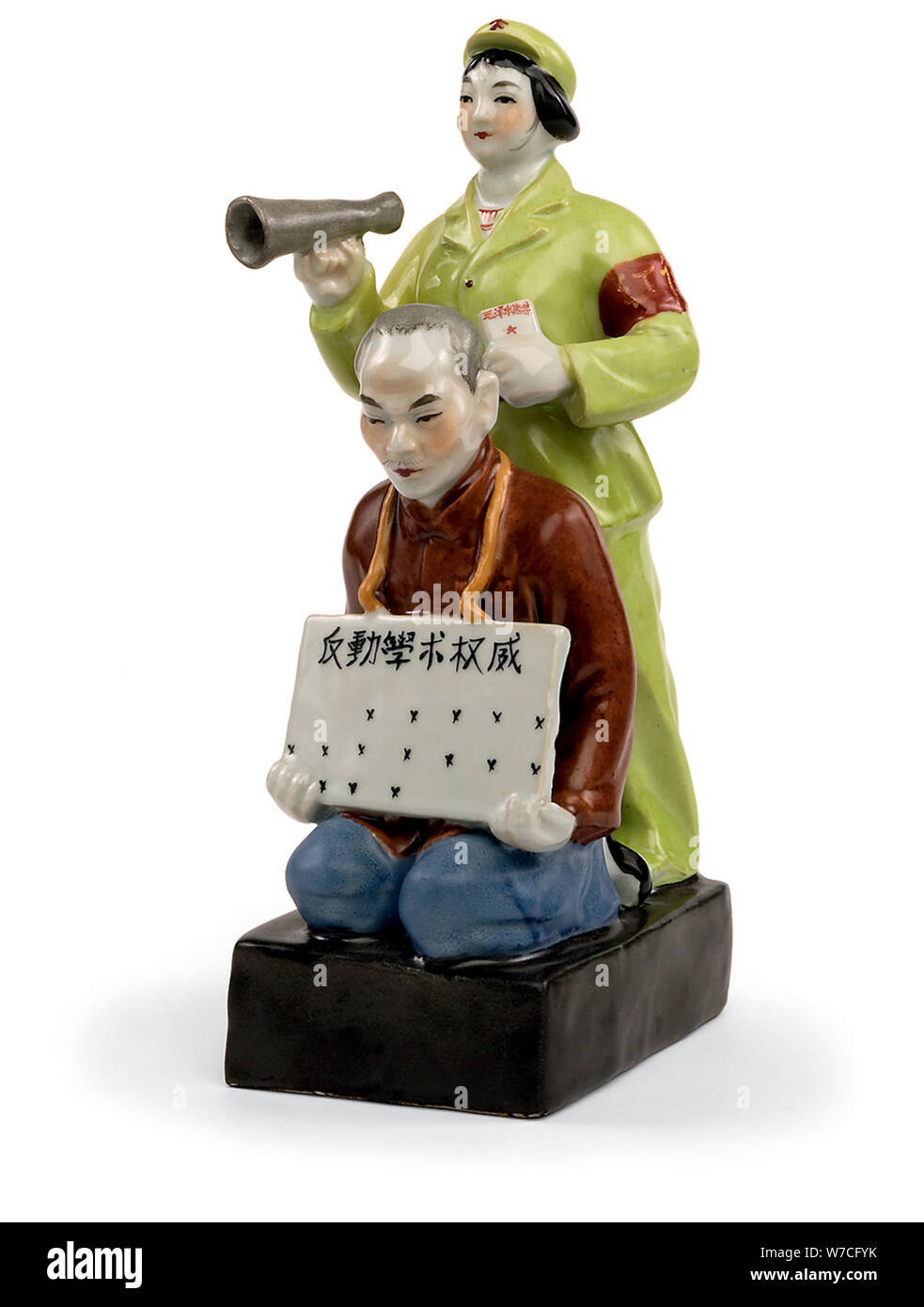 Journalist, harassed by a Red Guards Woman, End of 1960s. Stock Photohttps://www.alamy.com/image-license-details/?v=1https://www.alamy.com/journalist-harassed-by-a-red-guards-woman-end-of-1960s-image262734071.html
Journalist, harassed by a Red Guards Woman, End of 1960s. Stock Photohttps://www.alamy.com/image-license-details/?v=1https://www.alamy.com/journalist-harassed-by-a-red-guards-woman-end-of-1960s-image262734071.htmlRMW7CFYK–Journalist, harassed by a Red Guards Woman, End of 1960s.
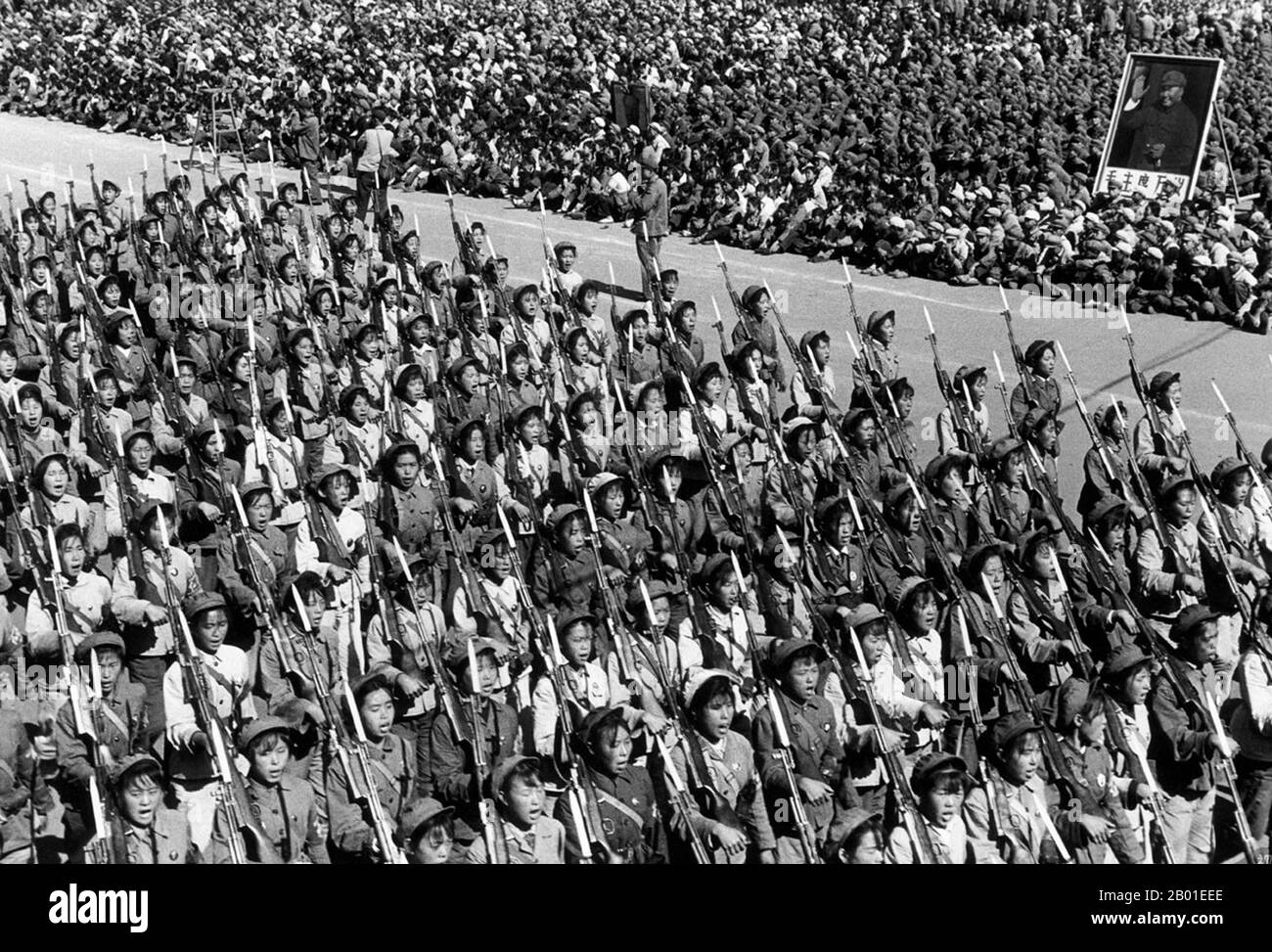 China: A scene from the Cultural Revolution (1966-1976), 1968. The Great Proletarian Cultural Revolution, commonly known as the Cultural Revolution (Chinese: 文化大革命), was a socio-political movement that took place in the People's Republic of China from 1966 through 1976. Set into motion by Mao Zedong, then Chairman of the Communist Party of China, its stated goal was to enforce socialism in the country by removing capitalist, traditional and cultural elements from Chinese society, and impose Maoist orthodoxy within the Party. Stock Photohttps://www.alamy.com/image-license-details/?v=1https://www.alamy.com/china-a-scene-from-the-cultural-revolution-1966-1976-1968-the-great-proletarian-cultural-revolution-commonly-known-as-the-cultural-revolution-chinese-was-a-socio-political-movement-that-took-place-in-the-peoples-republic-of-china-from-1966-through-1976-set-into-motion-by-mao-zedong-then-chairman-of-the-communist-party-of-china-its-stated-goal-was-to-enforce-socialism-in-the-country-by-removing-capitalist-traditional-and-cultural-elements-from-chinese-society-and-impose-maoist-orthodoxy-within-the-party-image344240694.html
China: A scene from the Cultural Revolution (1966-1976), 1968. The Great Proletarian Cultural Revolution, commonly known as the Cultural Revolution (Chinese: 文化大革命), was a socio-political movement that took place in the People's Republic of China from 1966 through 1976. Set into motion by Mao Zedong, then Chairman of the Communist Party of China, its stated goal was to enforce socialism in the country by removing capitalist, traditional and cultural elements from Chinese society, and impose Maoist orthodoxy within the Party. Stock Photohttps://www.alamy.com/image-license-details/?v=1https://www.alamy.com/china-a-scene-from-the-cultural-revolution-1966-1976-1968-the-great-proletarian-cultural-revolution-commonly-known-as-the-cultural-revolution-chinese-was-a-socio-political-movement-that-took-place-in-the-peoples-republic-of-china-from-1966-through-1976-set-into-motion-by-mao-zedong-then-chairman-of-the-communist-party-of-china-its-stated-goal-was-to-enforce-socialism-in-the-country-by-removing-capitalist-traditional-and-cultural-elements-from-chinese-society-and-impose-maoist-orthodoxy-within-the-party-image344240694.htmlRM2B01EEE–China: A scene from the Cultural Revolution (1966-1976), 1968. The Great Proletarian Cultural Revolution, commonly known as the Cultural Revolution (Chinese: 文化大革命), was a socio-political movement that took place in the People's Republic of China from 1966 through 1976. Set into motion by Mao Zedong, then Chairman of the Communist Party of China, its stated goal was to enforce socialism in the country by removing capitalist, traditional and cultural elements from Chinese society, and impose Maoist orthodoxy within the Party.
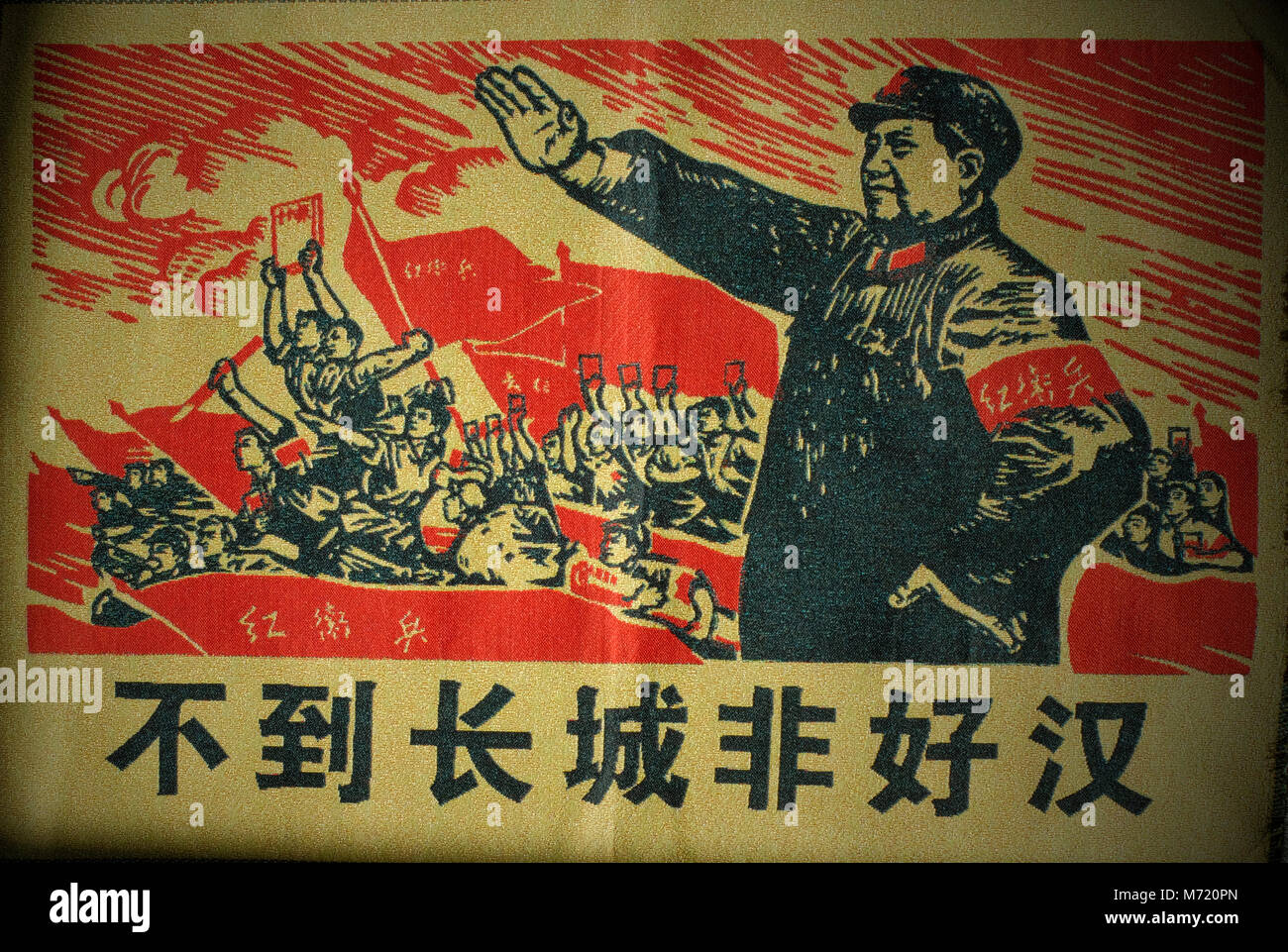 A fabric poster during the Chinese Cultural Revolution. The Chinese characters read, 'Until you reach the Great Wall, you're no hero”, a Chinese quote from Mao Zedong. Stock Photohttps://www.alamy.com/image-license-details/?v=1https://www.alamy.com/stock-photo-a-fabric-poster-during-the-chinese-cultural-revolution-the-chinese-176450813.html
A fabric poster during the Chinese Cultural Revolution. The Chinese characters read, 'Until you reach the Great Wall, you're no hero”, a Chinese quote from Mao Zedong. Stock Photohttps://www.alamy.com/image-license-details/?v=1https://www.alamy.com/stock-photo-a-fabric-poster-during-the-chinese-cultural-revolution-the-chinese-176450813.htmlRMM720PN–A fabric poster during the Chinese Cultural Revolution. The Chinese characters read, 'Until you reach the Great Wall, you're no hero”, a Chinese quote from Mao Zedong.
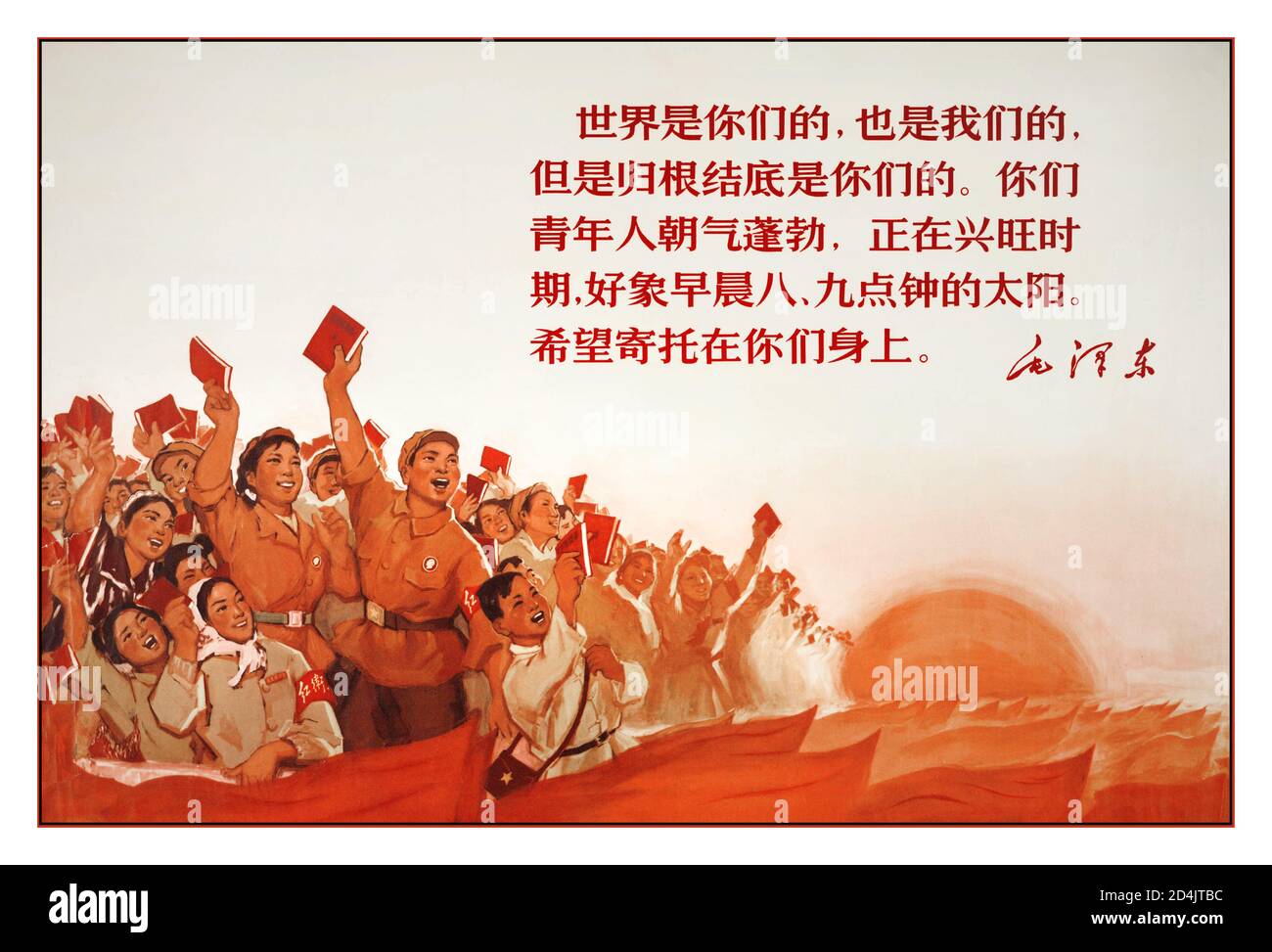 Vintage 1960's Chinese Revolution Poster Chairman Mao Zedong: 'The world is yours, as well as ours, but in the last analysis, it is yours, you young people, full of vigor and vitality ' 1967. Mao’s Fighters are the Closest Followers of the Party. Beijing Film Academy Jinggangshan Commune Stock Photohttps://www.alamy.com/image-license-details/?v=1https://www.alamy.com/vintage-1960s-chinese-revolution-poster-chairman-mao-zedong-the-world-is-yours-as-well-as-ours-but-in-the-last-analysis-it-is-yours-you-young-people-full-of-vigor-and-vitality-1967-maos-fighters-are-the-closest-followers-of-the-party-beijing-film-academy-jinggangshan-commune-image381500992.html
Vintage 1960's Chinese Revolution Poster Chairman Mao Zedong: 'The world is yours, as well as ours, but in the last analysis, it is yours, you young people, full of vigor and vitality ' 1967. Mao’s Fighters are the Closest Followers of the Party. Beijing Film Academy Jinggangshan Commune Stock Photohttps://www.alamy.com/image-license-details/?v=1https://www.alamy.com/vintage-1960s-chinese-revolution-poster-chairman-mao-zedong-the-world-is-yours-as-well-as-ours-but-in-the-last-analysis-it-is-yours-you-young-people-full-of-vigor-and-vitality-1967-maos-fighters-are-the-closest-followers-of-the-party-beijing-film-academy-jinggangshan-commune-image381500992.htmlRM2D4JTBC–Vintage 1960's Chinese Revolution Poster Chairman Mao Zedong: 'The world is yours, as well as ours, but in the last analysis, it is yours, you young people, full of vigor and vitality ' 1967. Mao’s Fighters are the Closest Followers of the Party. Beijing Film Academy Jinggangshan Commune
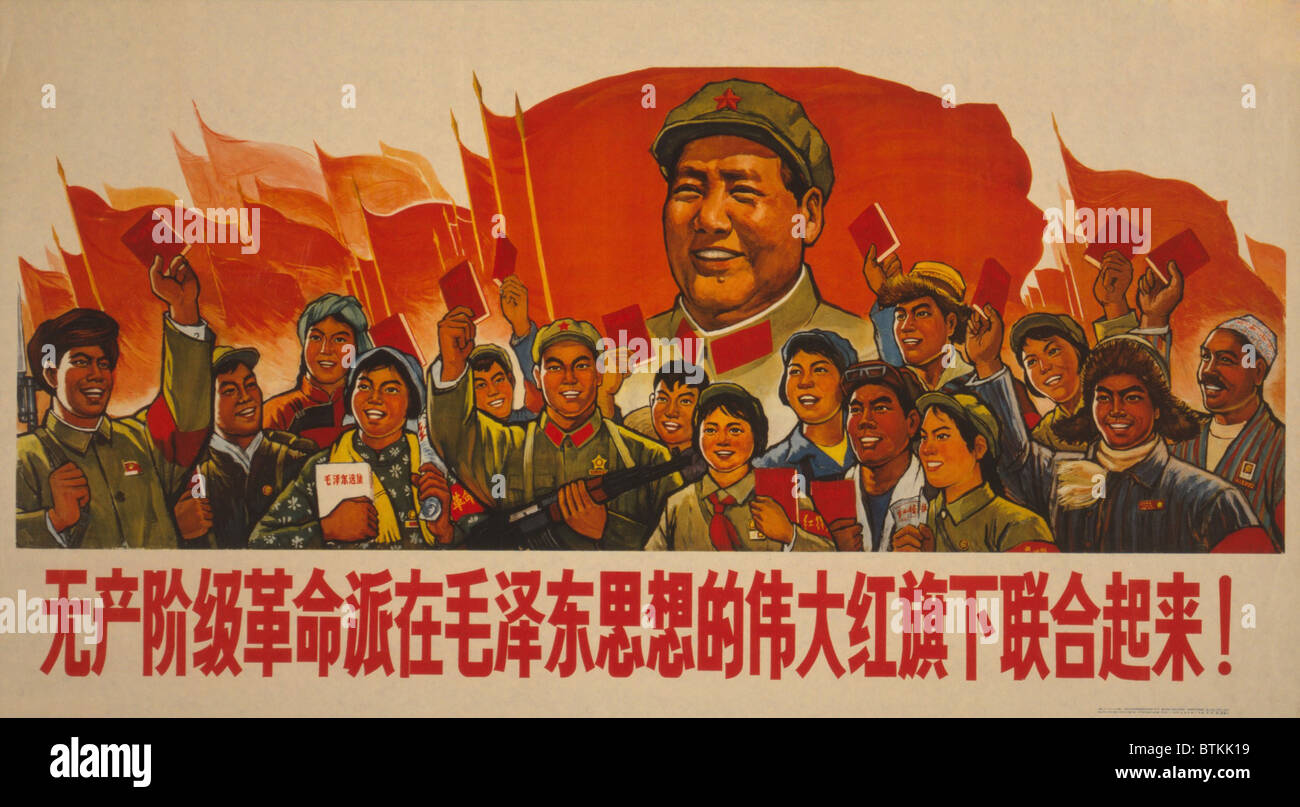 'Proletarian revolutionaries unite under the great red banner of the thoughts of Mao Tse-tung' is the title of this 1967 Cultural Revolution propaganda poster depicting people of different professions and ethnic groups waving books of quotations from the works of Mao Tse-tung. Stock Photohttps://www.alamy.com/image-license-details/?v=1https://www.alamy.com/stock-photo-proletarian-revolutionaries-unite-under-the-great-red-banner-of-the-32394133.html
'Proletarian revolutionaries unite under the great red banner of the thoughts of Mao Tse-tung' is the title of this 1967 Cultural Revolution propaganda poster depicting people of different professions and ethnic groups waving books of quotations from the works of Mao Tse-tung. Stock Photohttps://www.alamy.com/image-license-details/?v=1https://www.alamy.com/stock-photo-proletarian-revolutionaries-unite-under-the-great-red-banner-of-the-32394133.htmlRMBTKK19–'Proletarian revolutionaries unite under the great red banner of the thoughts of Mao Tse-tung' is the title of this 1967 Cultural Revolution propaganda poster depicting people of different professions and ethnic groups waving books of quotations from the works of Mao Tse-tung.
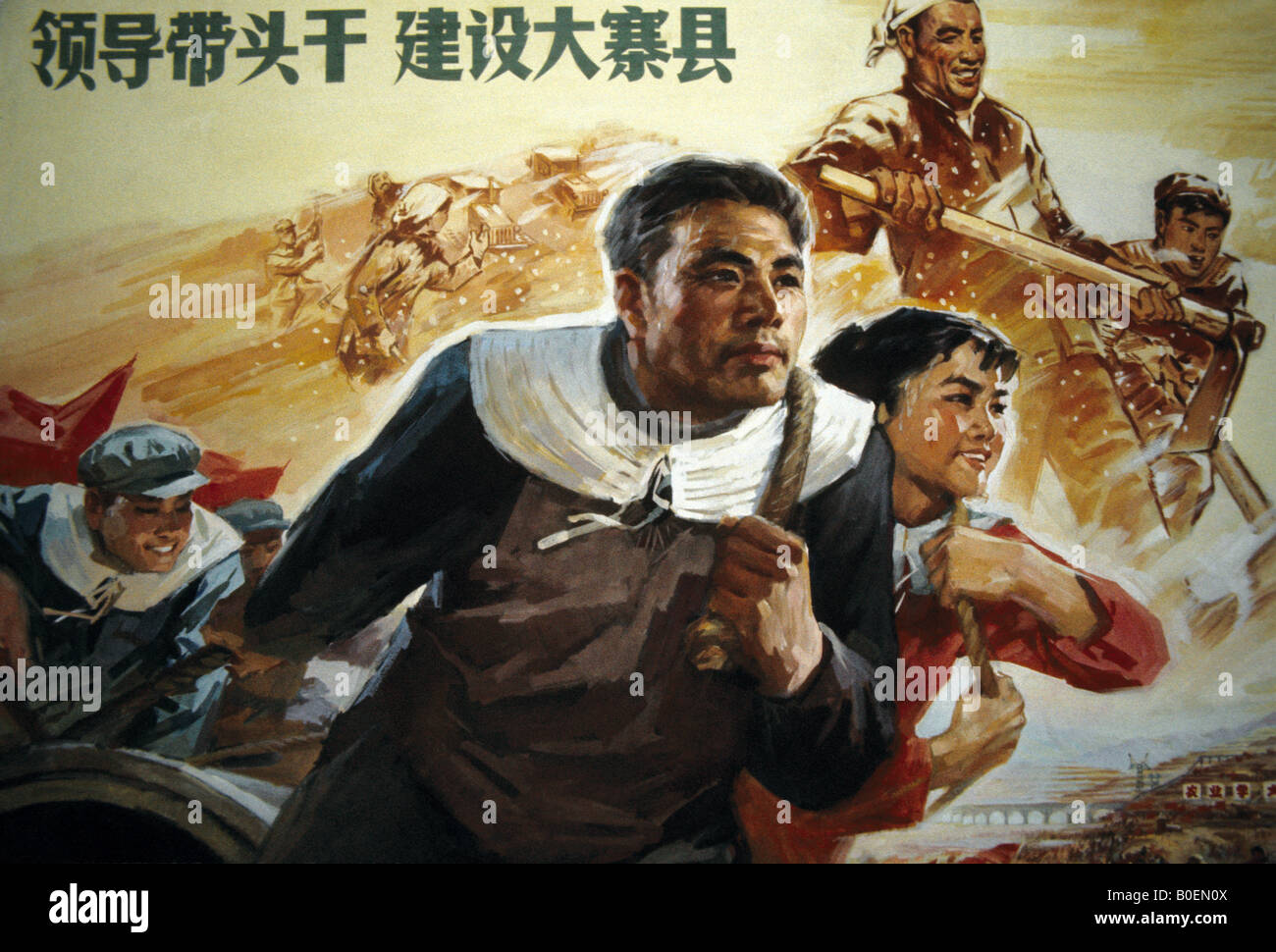 A peasant painting in the Socialist Realist style typical of propaganda art during the great Proletarian Cultural Revolution Stock Photohttps://www.alamy.com/image-license-details/?v=1https://www.alamy.com/stock-photo-a-peasant-painting-in-the-socialist-realist-style-typical-of-propaganda-17534186.html
A peasant painting in the Socialist Realist style typical of propaganda art during the great Proletarian Cultural Revolution Stock Photohttps://www.alamy.com/image-license-details/?v=1https://www.alamy.com/stock-photo-a-peasant-painting-in-the-socialist-realist-style-typical-of-propaganda-17534186.htmlRMB0EN0X–A peasant painting in the Socialist Realist style typical of propaganda art during the great Proletarian Cultural Revolution
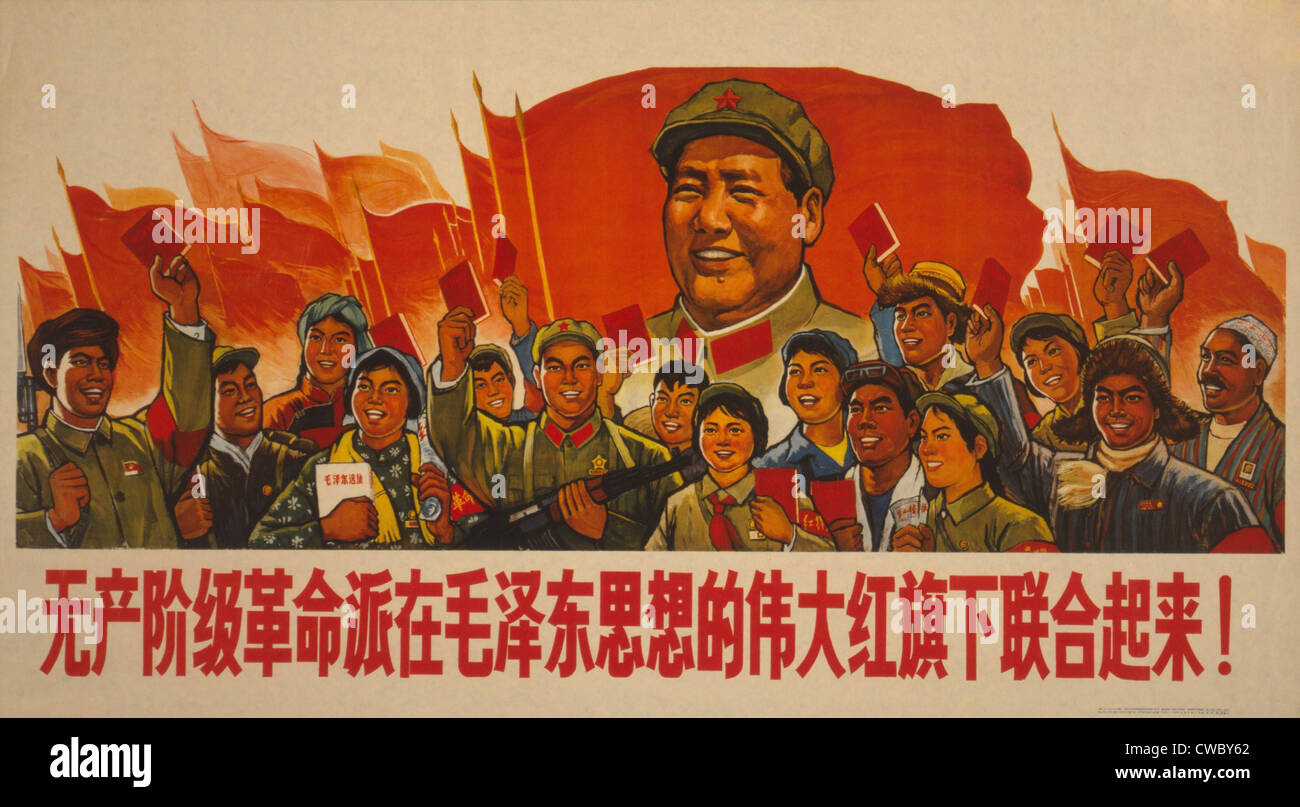 'Proletarian revolutionaries unite under the great red banner of the thoughts of Mao Tse-tung' is the title of this 1967 Stock Photohttps://www.alamy.com/image-license-details/?v=1https://www.alamy.com/stock-photo-proletarian-revolutionaries-unite-under-the-great-red-banner-of-the-50049946.html
'Proletarian revolutionaries unite under the great red banner of the thoughts of Mao Tse-tung' is the title of this 1967 Stock Photohttps://www.alamy.com/image-license-details/?v=1https://www.alamy.com/stock-photo-proletarian-revolutionaries-unite-under-the-great-red-banner-of-the-50049946.htmlRMCWBY62–'Proletarian revolutionaries unite under the great red banner of the thoughts of Mao Tse-tung' is the title of this 1967
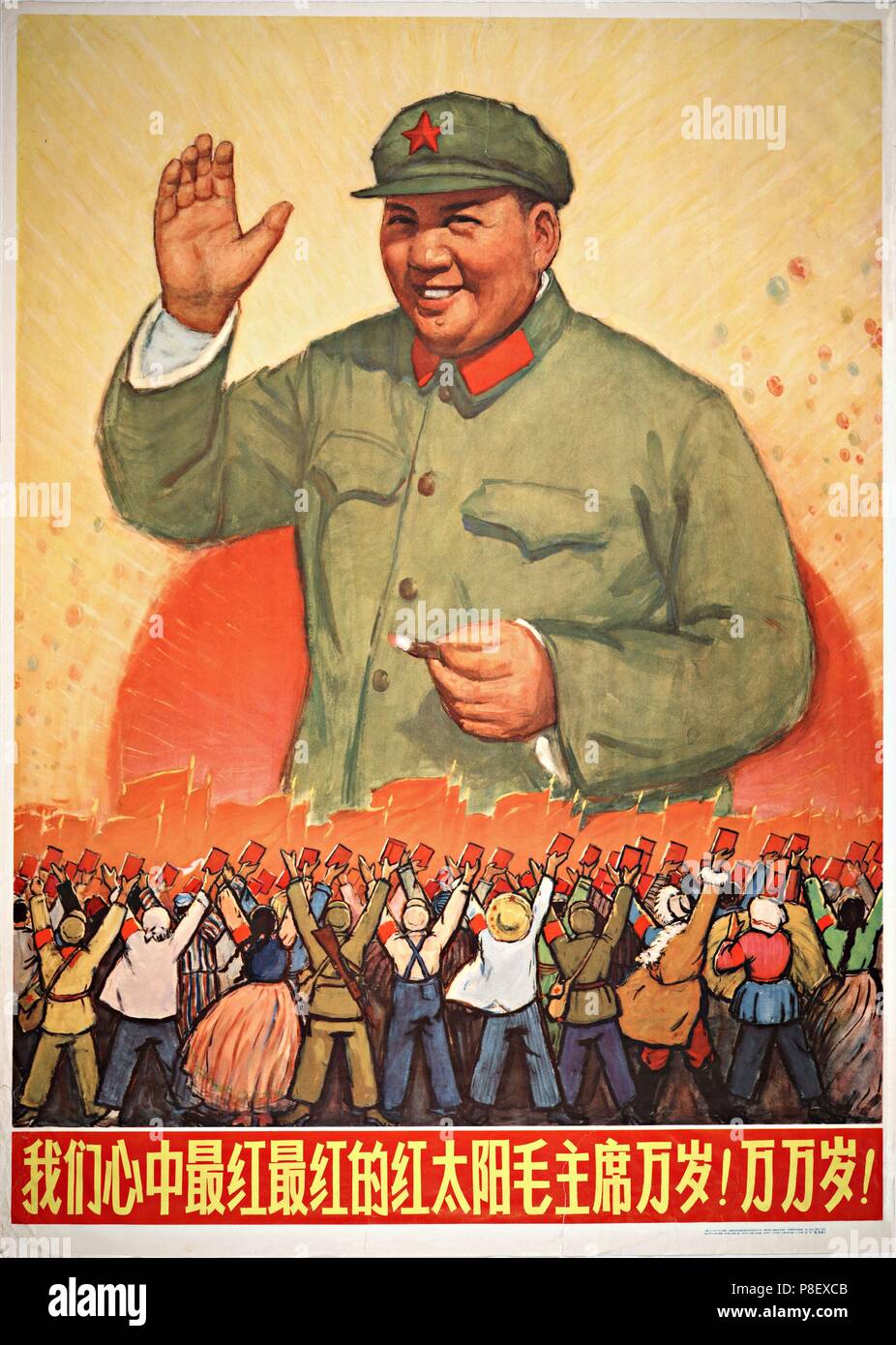 Raise High the Great Red Flag of Mao Zedong Thought to Carry Out to the End the Great Proletarian Cultural Revolution. Museum: PRIVATE COLLECTION. Stock Photohttps://www.alamy.com/image-license-details/?v=1https://www.alamy.com/raise-high-the-great-red-flag-of-mao-zedong-thought-to-carry-out-to-the-end-the-great-proletarian-cultural-revolution-museum-private-collection-image211769723.html
Raise High the Great Red Flag of Mao Zedong Thought to Carry Out to the End the Great Proletarian Cultural Revolution. Museum: PRIVATE COLLECTION. Stock Photohttps://www.alamy.com/image-license-details/?v=1https://www.alamy.com/raise-high-the-great-red-flag-of-mao-zedong-thought-to-carry-out-to-the-end-the-great-proletarian-cultural-revolution-museum-private-collection-image211769723.htmlRMP8EXCB–Raise High the Great Red Flag of Mao Zedong Thought to Carry Out to the End the Great Proletarian Cultural Revolution. Museum: PRIVATE COLLECTION.
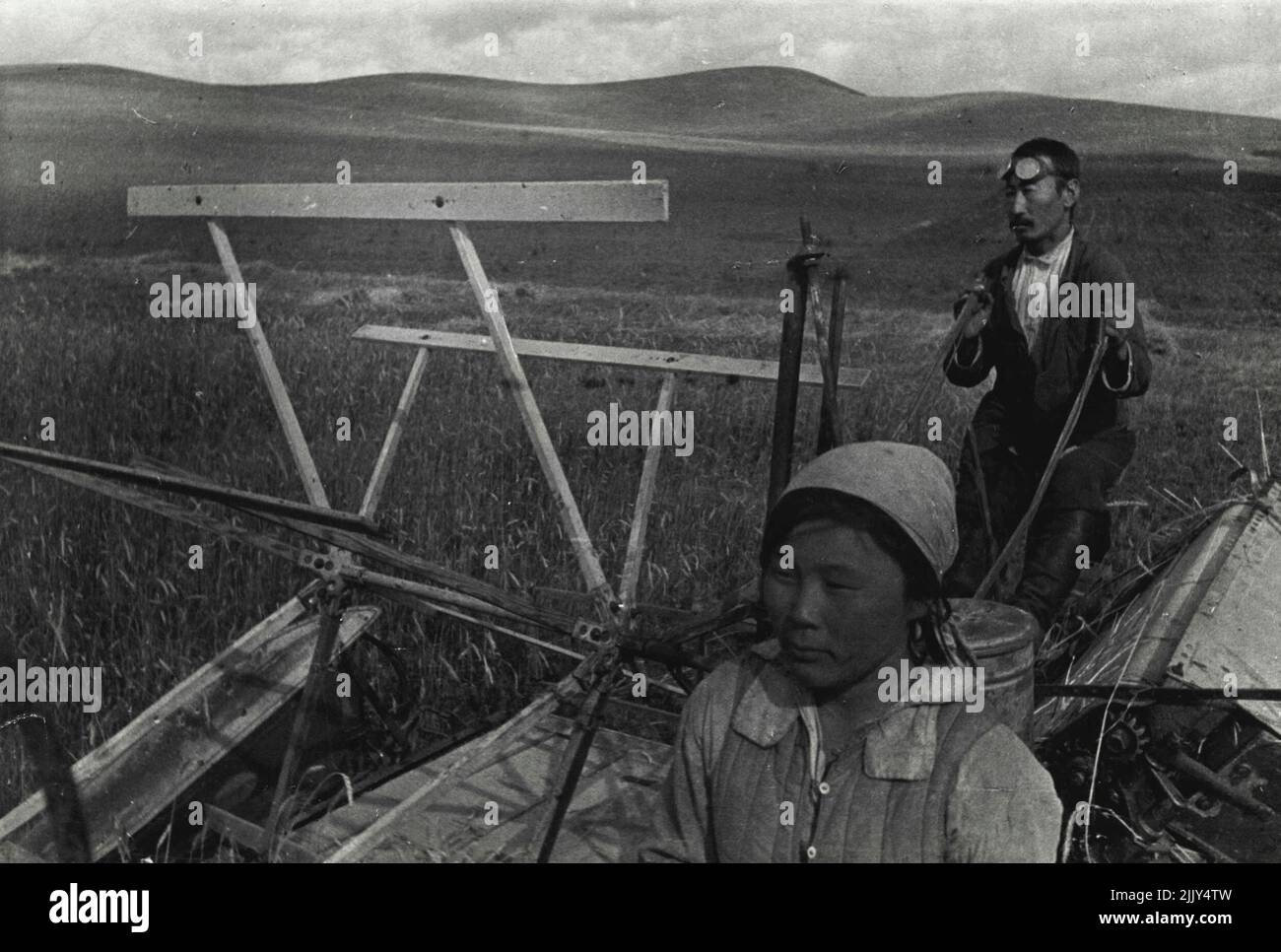 Harvesting Grain in Soviet Buryat-Mongolia (Eastern Siberia). Collective farmers of Buryat-Mongolia operate a sheaf-binder in the harvest field. The Buryat-Mongolian Autonomous Soviet Socialist Republic is located to the West of Lake Baikal in Eastern Siberia of the Soviet Union. Its vast territory reaches over 400,000 sq.km. Before the Great Proletarian Revolution it was a Tsarist colony, land of convict labor and exile. The oppressed people of Buryat-Mongolia did not even have their own schools. Now the country is developing its cultural and economic life. January 1, 1937. (Photo by Zelma). Stock Photohttps://www.alamy.com/image-license-details/?v=1https://www.alamy.com/harvesting-grain-in-soviet-buryat-mongolia-eastern-siberia-collective-farmers-of-buryat-mongolia-operate-a-sheaf-binder-in-the-harvest-field-the-buryat-mongolian-autonomous-soviet-socialist-republic-is-located-to-the-west-of-lake-baikal-in-eastern-siberia-of-the-soviet-union-its-vast-territory-reaches-over-400000-sqkm-before-the-great-proletarian-revolution-it-was-a-tsarist-colony-land-of-convict-labor-and-exile-the-oppressed-people-of-buryat-mongolia-did-not-even-have-their-own-schools-now-the-country-is-developing-its-cultural-and-economic-life-january-1-1937-photo-by-zelma-image476340281.html
Harvesting Grain in Soviet Buryat-Mongolia (Eastern Siberia). Collective farmers of Buryat-Mongolia operate a sheaf-binder in the harvest field. The Buryat-Mongolian Autonomous Soviet Socialist Republic is located to the West of Lake Baikal in Eastern Siberia of the Soviet Union. Its vast territory reaches over 400,000 sq.km. Before the Great Proletarian Revolution it was a Tsarist colony, land of convict labor and exile. The oppressed people of Buryat-Mongolia did not even have their own schools. Now the country is developing its cultural and economic life. January 1, 1937. (Photo by Zelma). Stock Photohttps://www.alamy.com/image-license-details/?v=1https://www.alamy.com/harvesting-grain-in-soviet-buryat-mongolia-eastern-siberia-collective-farmers-of-buryat-mongolia-operate-a-sheaf-binder-in-the-harvest-field-the-buryat-mongolian-autonomous-soviet-socialist-republic-is-located-to-the-west-of-lake-baikal-in-eastern-siberia-of-the-soviet-union-its-vast-territory-reaches-over-400000-sqkm-before-the-great-proletarian-revolution-it-was-a-tsarist-colony-land-of-convict-labor-and-exile-the-oppressed-people-of-buryat-mongolia-did-not-even-have-their-own-schools-now-the-country-is-developing-its-cultural-and-economic-life-january-1-1937-photo-by-zelma-image476340281.htmlRM2JJY4TW–Harvesting Grain in Soviet Buryat-Mongolia (Eastern Siberia). Collective farmers of Buryat-Mongolia operate a sheaf-binder in the harvest field. The Buryat-Mongolian Autonomous Soviet Socialist Republic is located to the West of Lake Baikal in Eastern Siberia of the Soviet Union. Its vast territory reaches over 400,000 sq.km. Before the Great Proletarian Revolution it was a Tsarist colony, land of convict labor and exile. The oppressed people of Buryat-Mongolia did not even have their own schools. Now the country is developing its cultural and economic life. January 1, 1937. (Photo by Zelma).
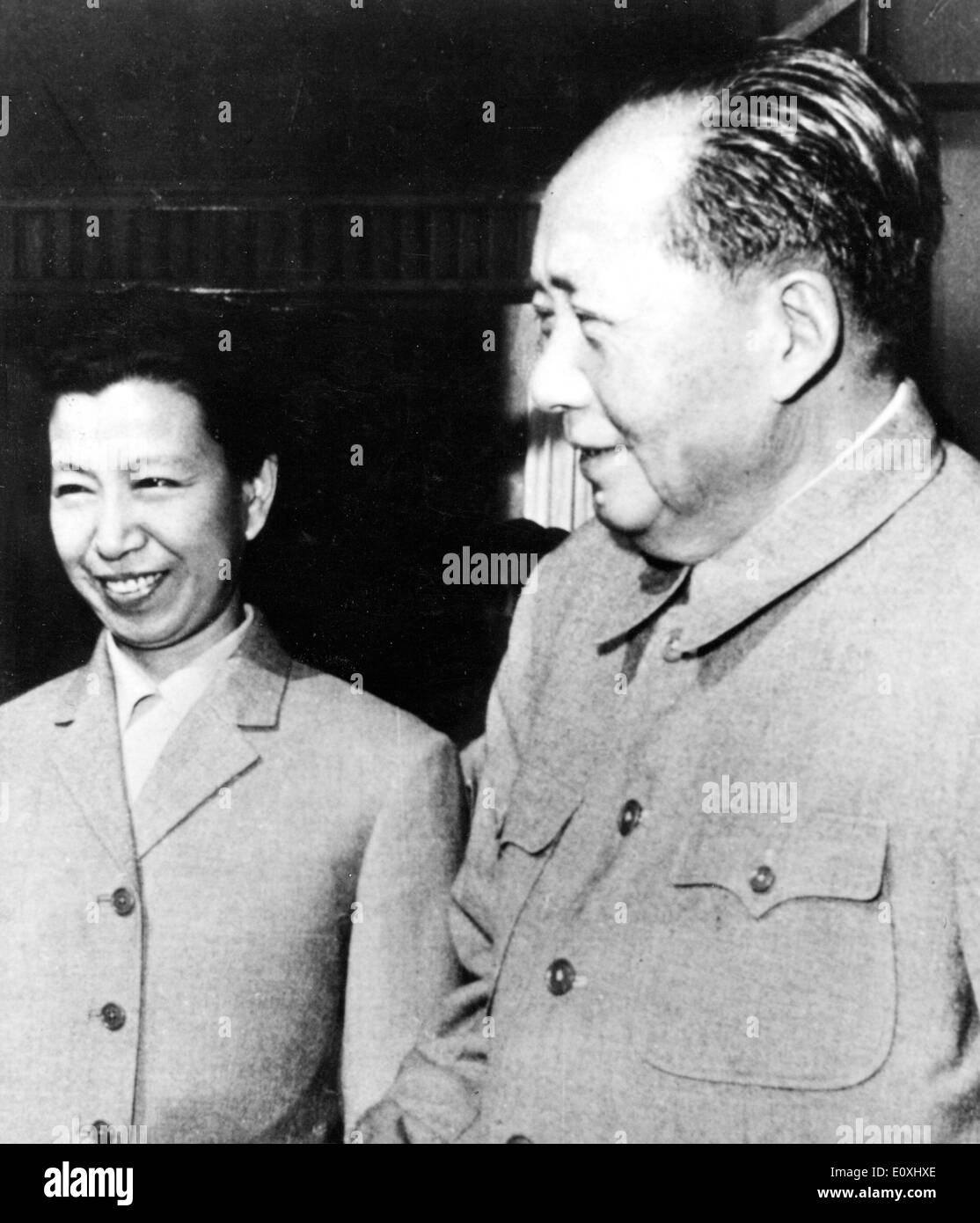 Mao Zedong with wife Jiang Qing Stock Photohttps://www.alamy.com/image-license-details/?v=1https://www.alamy.com/mao-zedong-with-wife-jiang-qing-image69426294.html
Mao Zedong with wife Jiang Qing Stock Photohttps://www.alamy.com/image-license-details/?v=1https://www.alamy.com/mao-zedong-with-wife-jiang-qing-image69426294.htmlRME0XHXE–Mao Zedong with wife Jiang Qing
 Visions of China Stock Photohttps://www.alamy.com/image-license-details/?v=1https://www.alamy.com/visions-of-china-image4147557.html
Visions of China Stock Photohttps://www.alamy.com/image-license-details/?v=1https://www.alamy.com/visions-of-china-image4147557.htmlRMAATW66–Visions of China
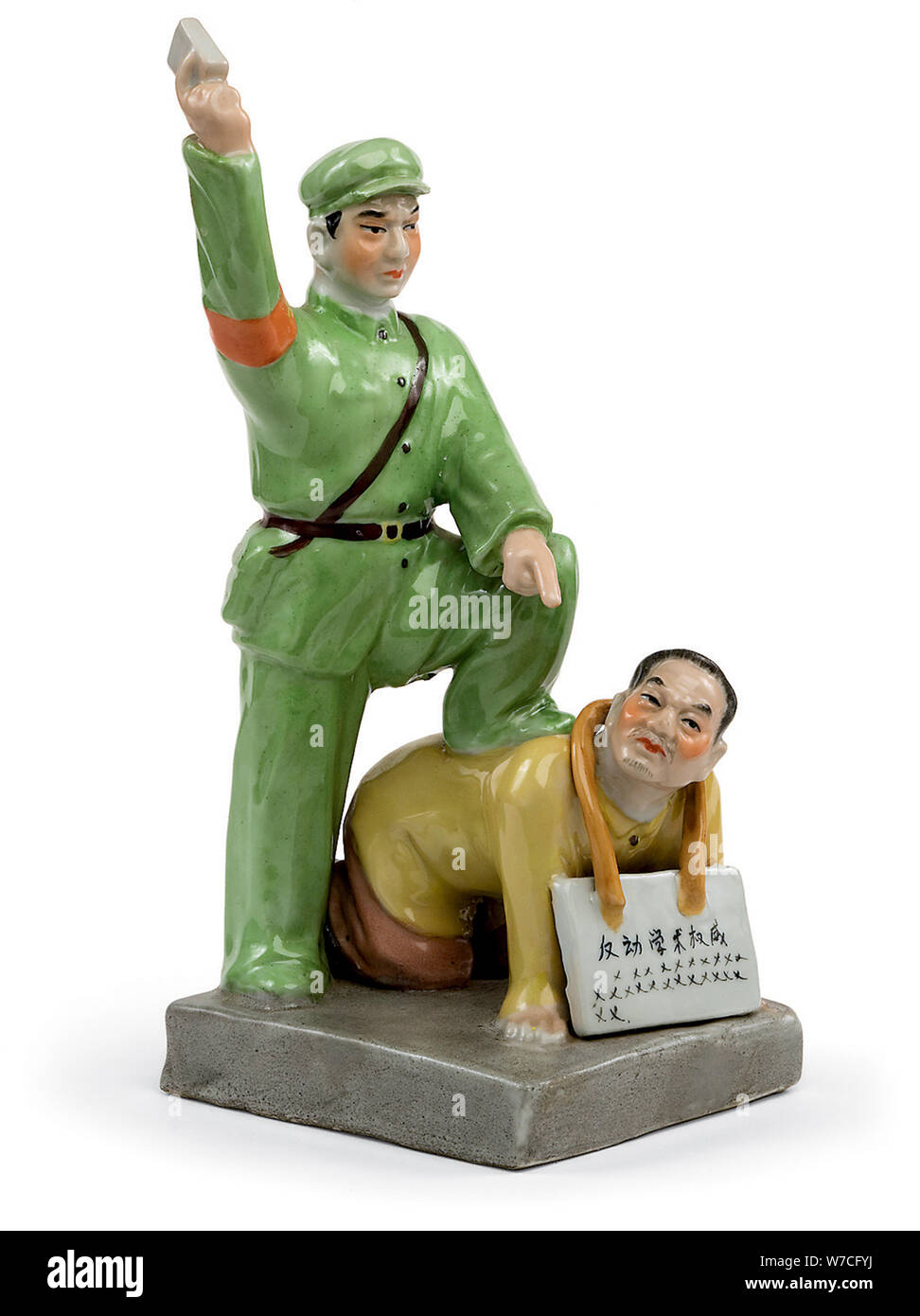 Party member, harassed by a Red Guardist, End of 1960s. Stock Photohttps://www.alamy.com/image-license-details/?v=1https://www.alamy.com/party-member-harassed-by-a-red-guardist-end-of-1960s-image262734070.html
Party member, harassed by a Red Guardist, End of 1960s. Stock Photohttps://www.alamy.com/image-license-details/?v=1https://www.alamy.com/party-member-harassed-by-a-red-guardist-end-of-1960s-image262734070.htmlRMW7CFYJ–Party member, harassed by a Red Guardist, End of 1960s.
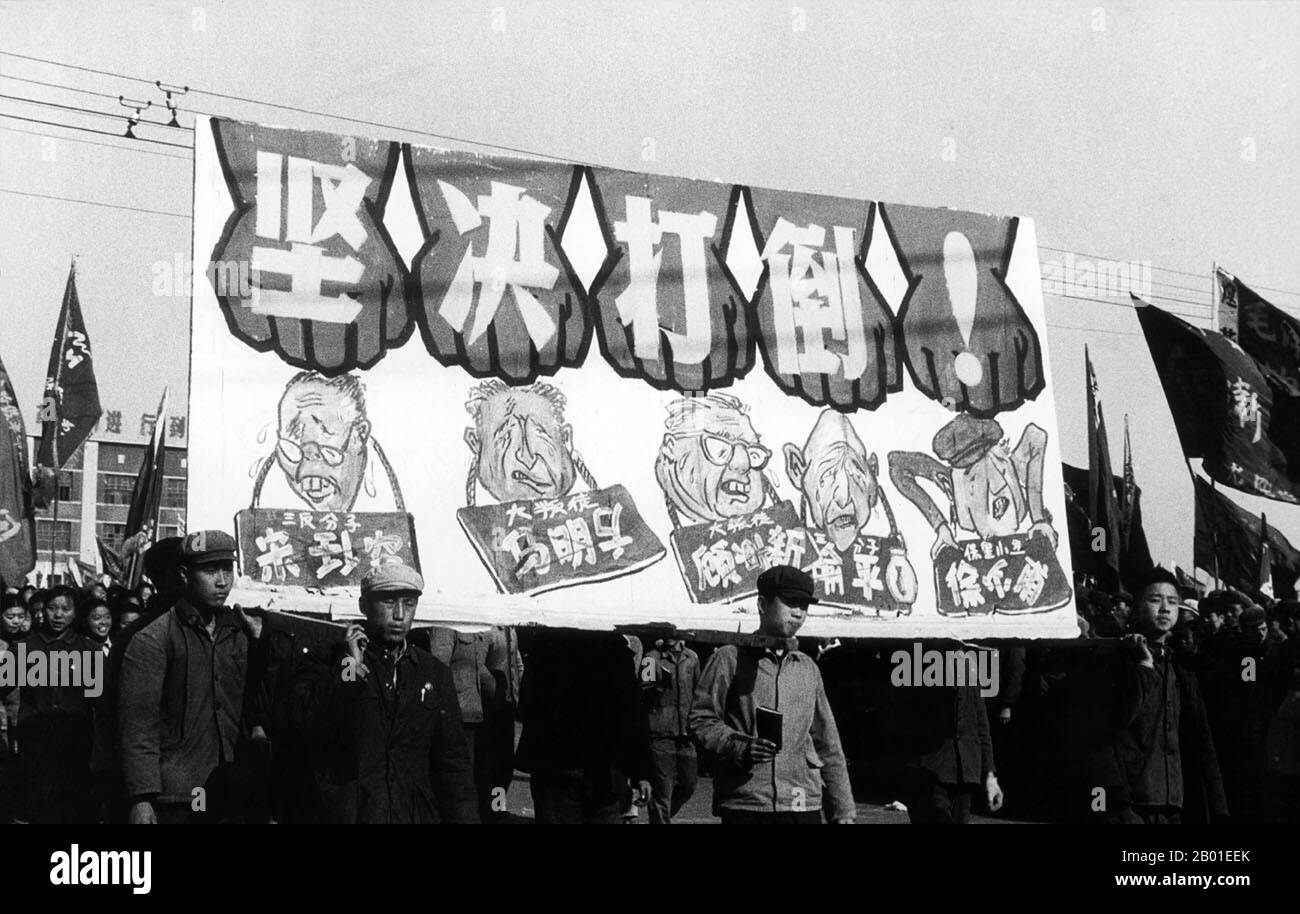 China: Denouncing 'Rightists', a scene from the Cultural Revolution (1966-1976), 1968. The Great Proletarian Cultural Revolution, commonly known as the Cultural Revolution (Chinese: 文化大革命), was a socio-political movement that took place in the People's Republic of China from 1966 through 1976. Set into motion by Mao Zedong, then Chairman of the Communist Party of China, its stated goal was to enforce socialism in the country by removing capitalist, traditional and cultural elements from Chinese society, and impose Maoist orthodoxy within the Party. Stock Photohttps://www.alamy.com/image-license-details/?v=1https://www.alamy.com/china-denouncing-rightists-a-scene-from-the-cultural-revolution-1966-1976-1968-the-great-proletarian-cultural-revolution-commonly-known-as-the-cultural-revolution-chinese-was-a-socio-political-movement-that-took-place-in-the-peoples-republic-of-china-from-1966-through-1976-set-into-motion-by-mao-zedong-then-chairman-of-the-communist-party-of-china-its-stated-goal-was-to-enforce-socialism-in-the-country-by-removing-capitalist-traditional-and-cultural-elements-from-chinese-society-and-impose-maoist-orthodoxy-within-the-party-image344240699.html
China: Denouncing 'Rightists', a scene from the Cultural Revolution (1966-1976), 1968. The Great Proletarian Cultural Revolution, commonly known as the Cultural Revolution (Chinese: 文化大革命), was a socio-political movement that took place in the People's Republic of China from 1966 through 1976. Set into motion by Mao Zedong, then Chairman of the Communist Party of China, its stated goal was to enforce socialism in the country by removing capitalist, traditional and cultural elements from Chinese society, and impose Maoist orthodoxy within the Party. Stock Photohttps://www.alamy.com/image-license-details/?v=1https://www.alamy.com/china-denouncing-rightists-a-scene-from-the-cultural-revolution-1966-1976-1968-the-great-proletarian-cultural-revolution-commonly-known-as-the-cultural-revolution-chinese-was-a-socio-political-movement-that-took-place-in-the-peoples-republic-of-china-from-1966-through-1976-set-into-motion-by-mao-zedong-then-chairman-of-the-communist-party-of-china-its-stated-goal-was-to-enforce-socialism-in-the-country-by-removing-capitalist-traditional-and-cultural-elements-from-chinese-society-and-impose-maoist-orthodoxy-within-the-party-image344240699.htmlRM2B01EEK–China: Denouncing 'Rightists', a scene from the Cultural Revolution (1966-1976), 1968. The Great Proletarian Cultural Revolution, commonly known as the Cultural Revolution (Chinese: 文化大革命), was a socio-political movement that took place in the People's Republic of China from 1966 through 1976. Set into motion by Mao Zedong, then Chairman of the Communist Party of China, its stated goal was to enforce socialism in the country by removing capitalist, traditional and cultural elements from Chinese society, and impose Maoist orthodoxy within the Party.
 A fabric poster during the Chinese Cultural Revolution. The Chinese characters below read, We must pull out the counter-revolutionaries in the party, and inner characters read, grasping revolution and promoting production. Stock Photohttps://www.alamy.com/image-license-details/?v=1https://www.alamy.com/stock-photo-a-fabric-poster-during-the-chinese-cultural-revolution-the-chinese-176450810.html
A fabric poster during the Chinese Cultural Revolution. The Chinese characters below read, We must pull out the counter-revolutionaries in the party, and inner characters read, grasping revolution and promoting production. Stock Photohttps://www.alamy.com/image-license-details/?v=1https://www.alamy.com/stock-photo-a-fabric-poster-during-the-chinese-cultural-revolution-the-chinese-176450810.htmlRMM720PJ–A fabric poster during the Chinese Cultural Revolution. The Chinese characters below read, We must pull out the counter-revolutionaries in the party, and inner characters read, grasping revolution and promoting production.
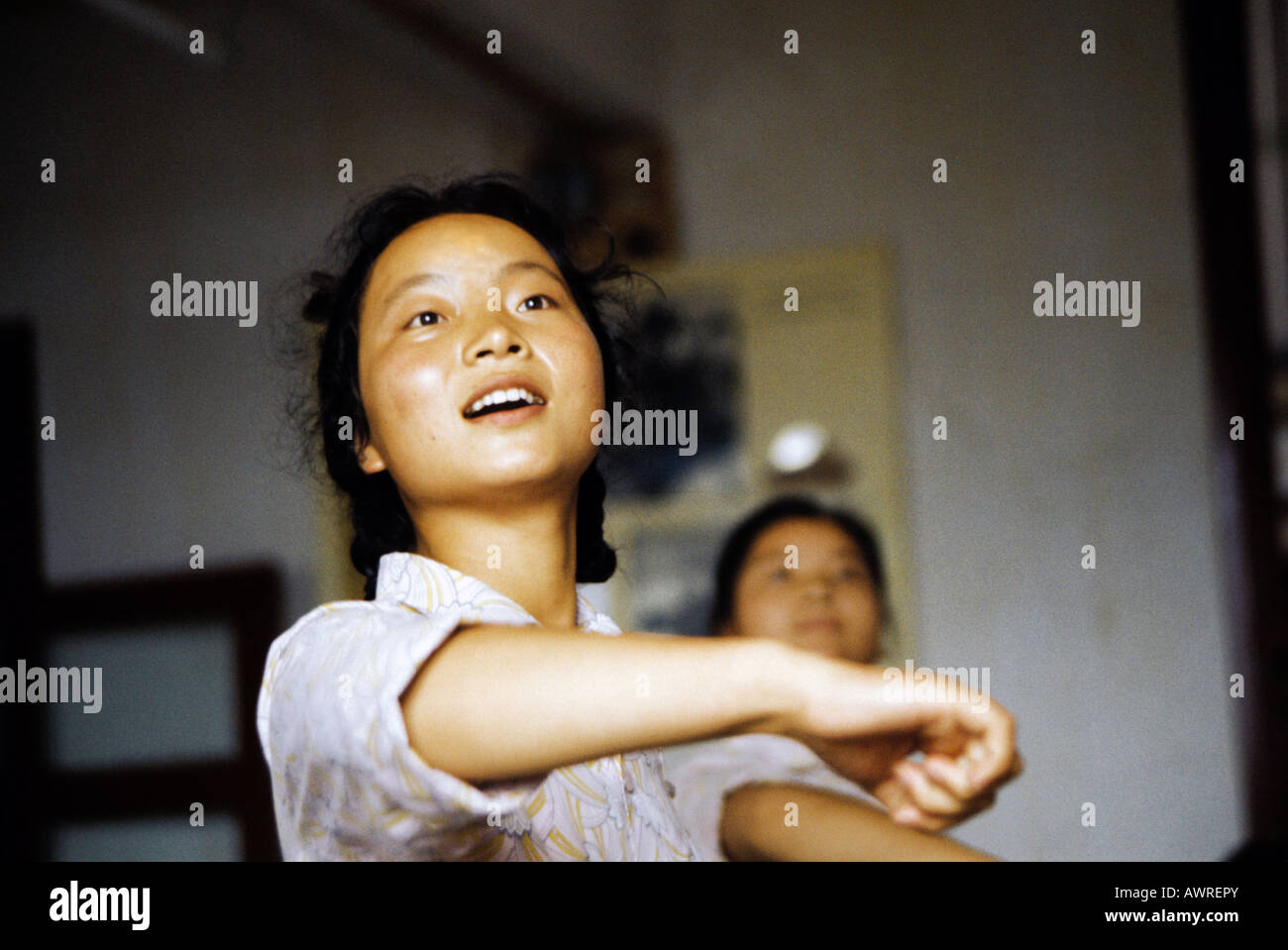 1976 educated youth sent down from city to countryside at Red Flag State Farm during revolutionary cultural performance Stock Photohttps://www.alamy.com/image-license-details/?v=1https://www.alamy.com/stock-photo-1976-educated-youth-sent-down-from-city-to-countryside-at-red-flag-16641458.html
1976 educated youth sent down from city to countryside at Red Flag State Farm during revolutionary cultural performance Stock Photohttps://www.alamy.com/image-license-details/?v=1https://www.alamy.com/stock-photo-1976-educated-youth-sent-down-from-city-to-countryside-at-red-flag-16641458.htmlRMAWREPY–1976 educated youth sent down from city to countryside at Red Flag State Farm during revolutionary cultural performance
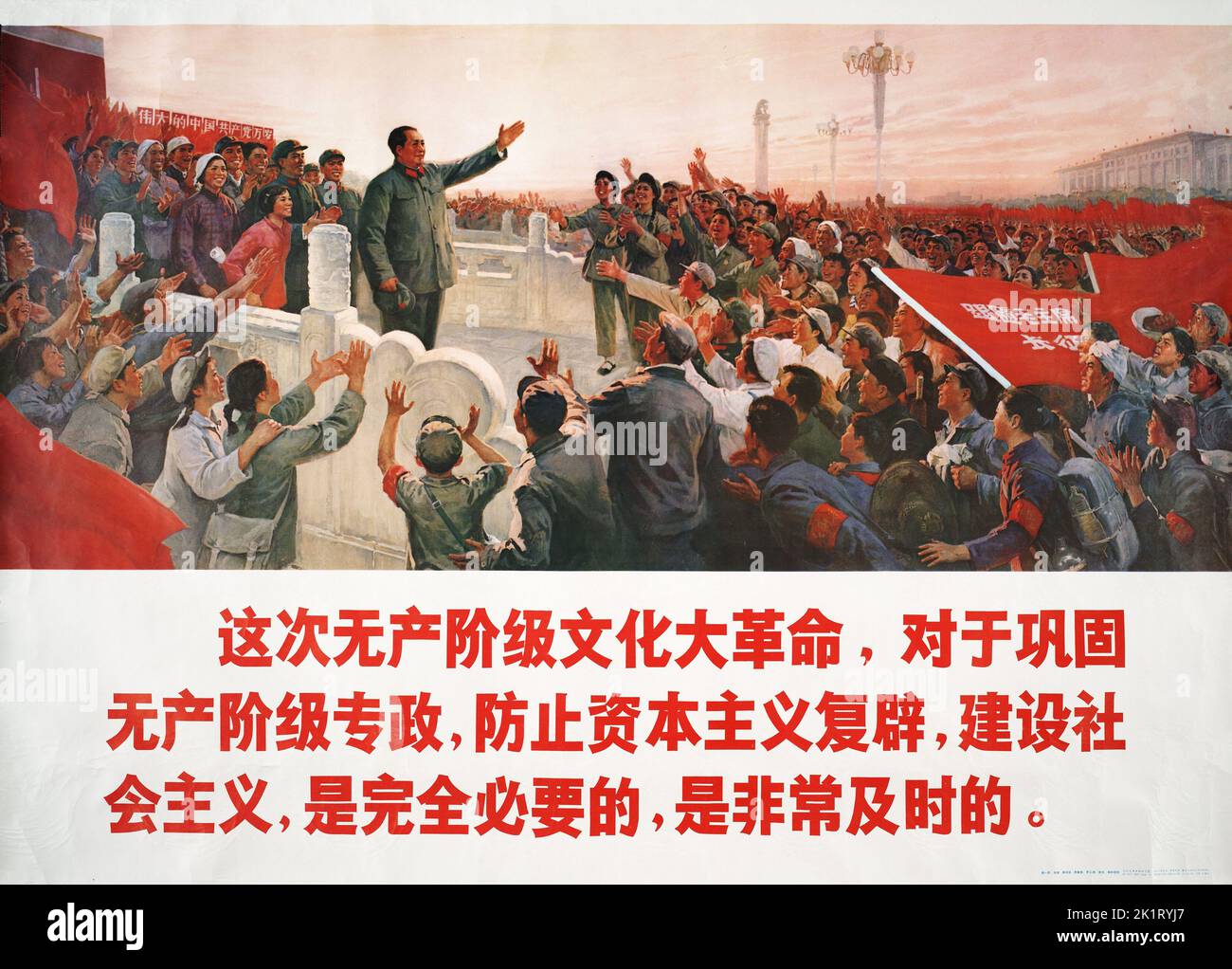 The Great Proletarian Cultural Revolution must be waged to the end. Museum: PRIVATE COLLECTION. Author: Deng Shu. Stock Photohttps://www.alamy.com/image-license-details/?v=1https://www.alamy.com/the-great-proletarian-cultural-revolution-must-be-waged-to-the-end-museum-private-collection-author-deng-shu-image483031535.html
The Great Proletarian Cultural Revolution must be waged to the end. Museum: PRIVATE COLLECTION. Author: Deng Shu. Stock Photohttps://www.alamy.com/image-license-details/?v=1https://www.alamy.com/the-great-proletarian-cultural-revolution-must-be-waged-to-the-end-museum-private-collection-author-deng-shu-image483031535.htmlRM2K1RYJ7–The Great Proletarian Cultural Revolution must be waged to the end. Museum: PRIVATE COLLECTION. Author: Deng Shu.
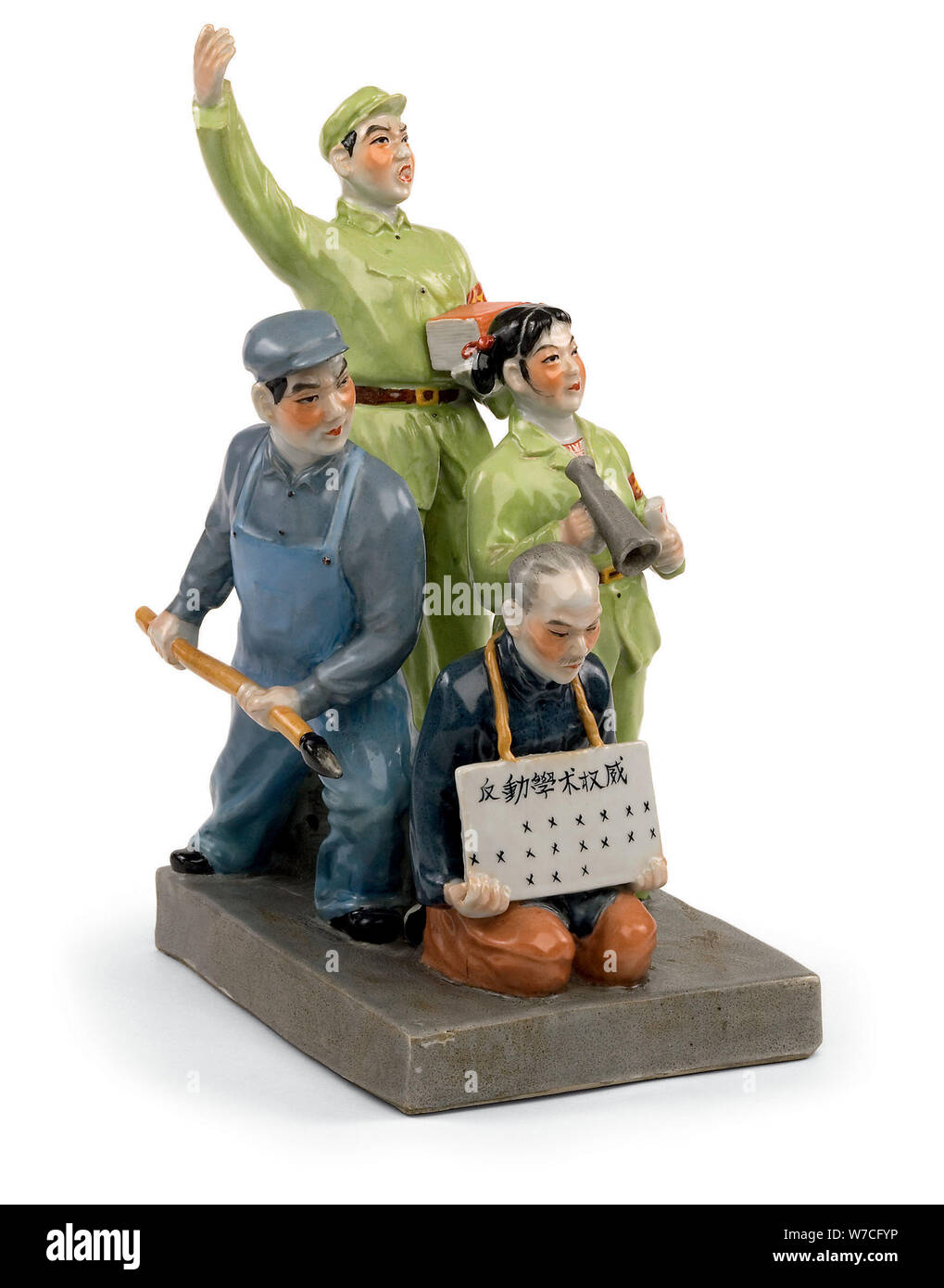 University Professor, harassed by a Red Guards and Worker, End of 1960s. Stock Photohttps://www.alamy.com/image-license-details/?v=1https://www.alamy.com/university-professor-harassed-by-a-red-guards-and-worker-end-of-1960s-image262734074.html
University Professor, harassed by a Red Guards and Worker, End of 1960s. Stock Photohttps://www.alamy.com/image-license-details/?v=1https://www.alamy.com/university-professor-harassed-by-a-red-guards-and-worker-end-of-1960s-image262734074.htmlRMW7CFYP–University Professor, harassed by a Red Guards and Worker, End of 1960s.
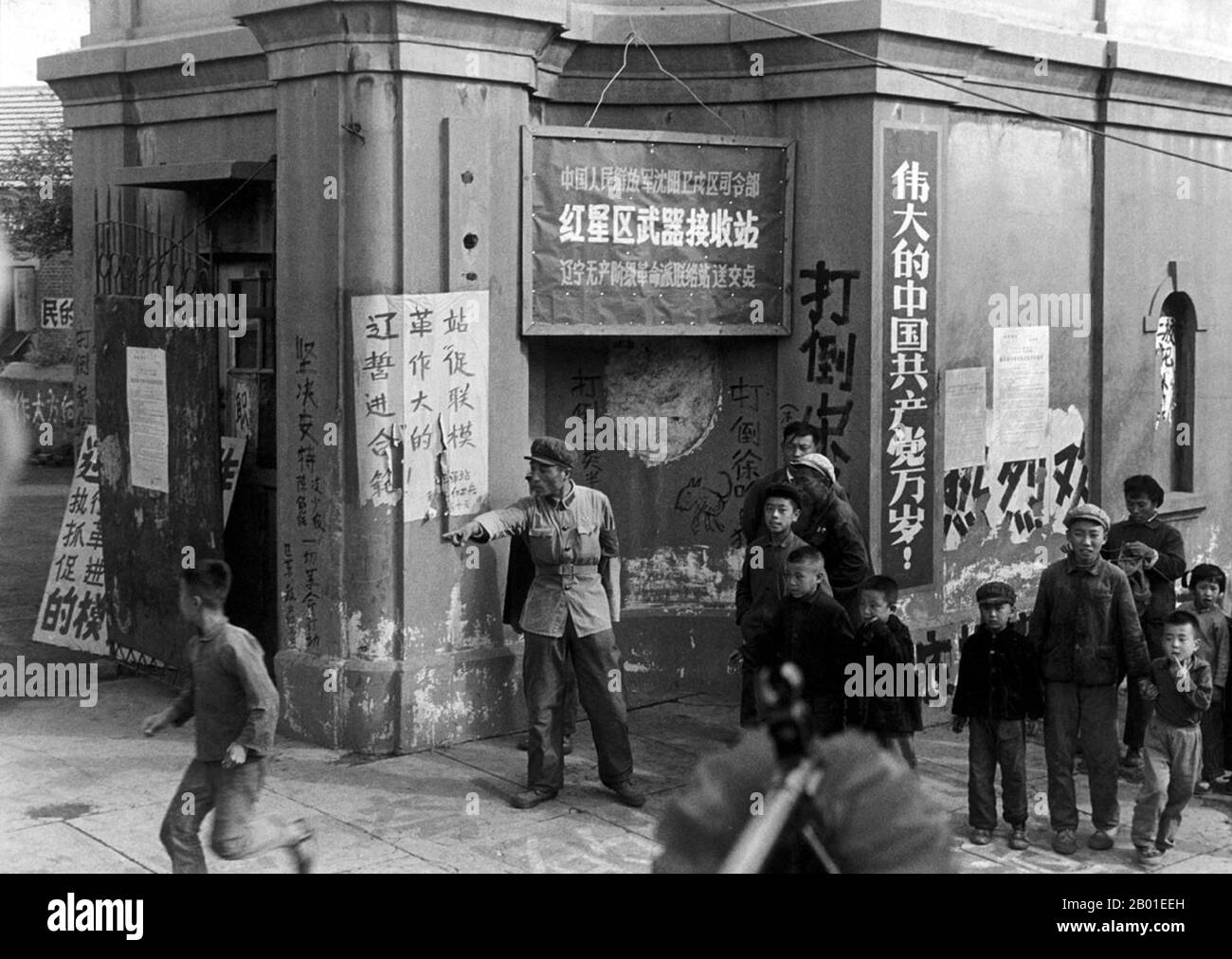 China: Scene from the Cultural Revolution (1966-1976), Liaoning, 1968. The Great Proletarian Cultural Revolution, commonly known as the Cultural Revolution (Chinese: 文化大革命), was a socio-political movement that took place in the People's Republic of China from 1966 through 1976. Set into motion by Mao Zedong, then Chairman of the Communist Party of China, its stated goal was to enforce socialism in the country by removing capitalist, traditional and cultural elements from Chinese society, and impose Maoist orthodoxy within the Party. Stock Photohttps://www.alamy.com/image-license-details/?v=1https://www.alamy.com/china-scene-from-the-cultural-revolution-1966-1976-liaoning-1968-the-great-proletarian-cultural-revolution-commonly-known-as-the-cultural-revolution-chinese-was-a-socio-political-movement-that-took-place-in-the-peoples-republic-of-china-from-1966-through-1976-set-into-motion-by-mao-zedong-then-chairman-of-the-communist-party-of-china-its-stated-goal-was-to-enforce-socialism-in-the-country-by-removing-capitalist-traditional-and-cultural-elements-from-chinese-society-and-impose-maoist-orthodoxy-within-the-party-image344240697.html
China: Scene from the Cultural Revolution (1966-1976), Liaoning, 1968. The Great Proletarian Cultural Revolution, commonly known as the Cultural Revolution (Chinese: 文化大革命), was a socio-political movement that took place in the People's Republic of China from 1966 through 1976. Set into motion by Mao Zedong, then Chairman of the Communist Party of China, its stated goal was to enforce socialism in the country by removing capitalist, traditional and cultural elements from Chinese society, and impose Maoist orthodoxy within the Party. Stock Photohttps://www.alamy.com/image-license-details/?v=1https://www.alamy.com/china-scene-from-the-cultural-revolution-1966-1976-liaoning-1968-the-great-proletarian-cultural-revolution-commonly-known-as-the-cultural-revolution-chinese-was-a-socio-political-movement-that-took-place-in-the-peoples-republic-of-china-from-1966-through-1976-set-into-motion-by-mao-zedong-then-chairman-of-the-communist-party-of-china-its-stated-goal-was-to-enforce-socialism-in-the-country-by-removing-capitalist-traditional-and-cultural-elements-from-chinese-society-and-impose-maoist-orthodoxy-within-the-party-image344240697.htmlRM2B01EEH–China: Scene from the Cultural Revolution (1966-1976), Liaoning, 1968. The Great Proletarian Cultural Revolution, commonly known as the Cultural Revolution (Chinese: 文化大革命), was a socio-political movement that took place in the People's Republic of China from 1966 through 1976. Set into motion by Mao Zedong, then Chairman of the Communist Party of China, its stated goal was to enforce socialism in the country by removing capitalist, traditional and cultural elements from Chinese society, and impose Maoist orthodoxy within the Party.
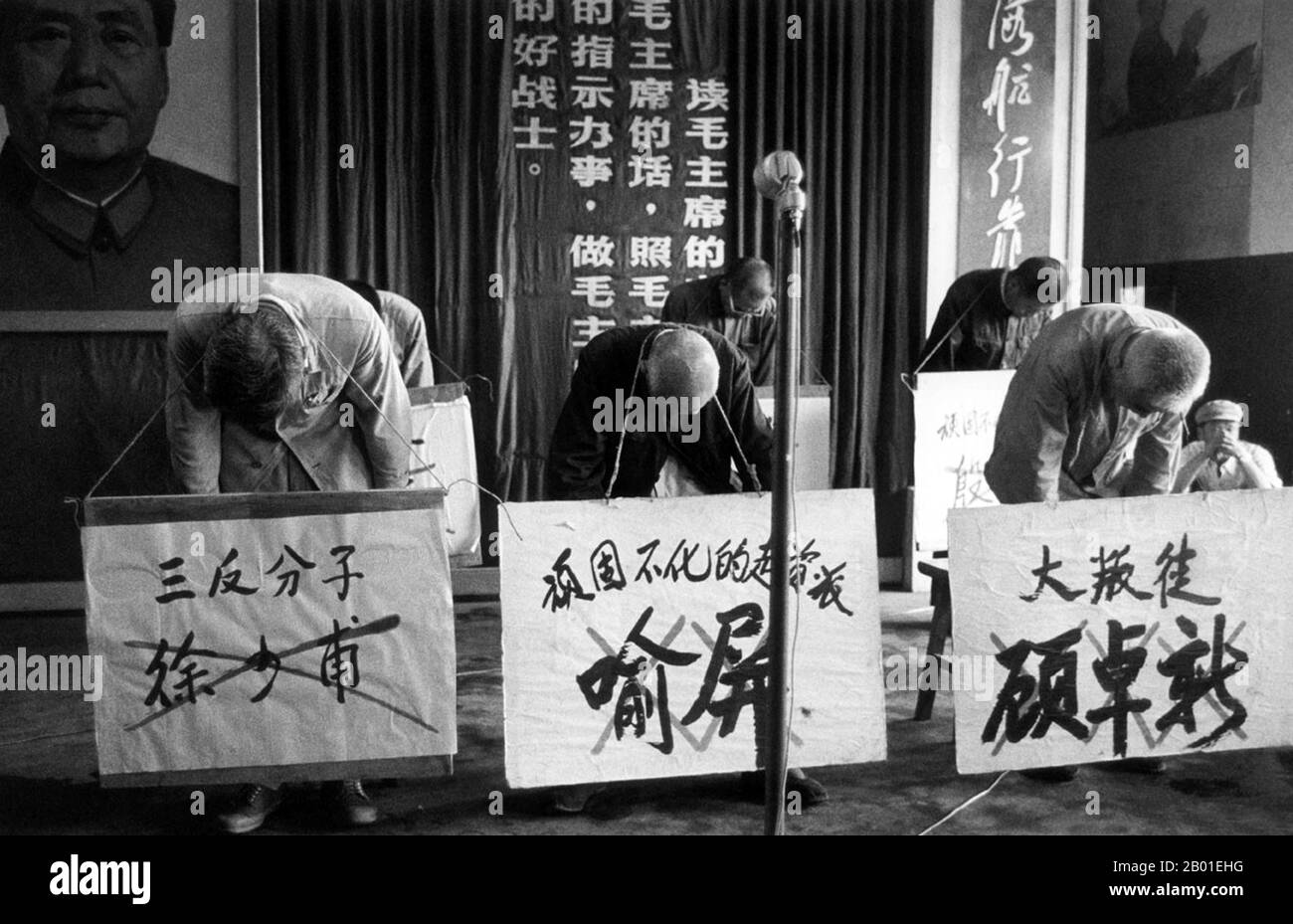 China: A scene from the Cultural Revolution (1966-1976) - criticism of 'Capitalist Roaders', 1966. The Great Proletarian Cultural Revolution, commonly known as the Cultural Revolution (Chinese: 文化大革命), was a socio-political movement that took place in the People's Republic of China from 1966 through 1976. Set into motion by Mao Zedong, then Chairman of the Communist Party of China, its stated goal was to enforce socialism in the country by removing capitalist, traditional and cultural elements from Chinese society, and impose Maoist orthodoxy within the Party. Stock Photohttps://www.alamy.com/image-license-details/?v=1https://www.alamy.com/china-a-scene-from-the-cultural-revolution-1966-1976-criticism-of-capitalist-roaders-1966-the-great-proletarian-cultural-revolution-commonly-known-as-the-cultural-revolution-chinese-was-a-socio-political-movement-that-took-place-in-the-peoples-republic-of-china-from-1966-through-1976-set-into-motion-by-mao-zedong-then-chairman-of-the-communist-party-of-china-its-stated-goal-was-to-enforce-socialism-in-the-country-by-removing-capitalist-traditional-and-cultural-elements-from-chinese-society-and-impose-maoist-orthodoxy-within-the-party-image344240780.html
China: A scene from the Cultural Revolution (1966-1976) - criticism of 'Capitalist Roaders', 1966. The Great Proletarian Cultural Revolution, commonly known as the Cultural Revolution (Chinese: 文化大革命), was a socio-political movement that took place in the People's Republic of China from 1966 through 1976. Set into motion by Mao Zedong, then Chairman of the Communist Party of China, its stated goal was to enforce socialism in the country by removing capitalist, traditional and cultural elements from Chinese society, and impose Maoist orthodoxy within the Party. Stock Photohttps://www.alamy.com/image-license-details/?v=1https://www.alamy.com/china-a-scene-from-the-cultural-revolution-1966-1976-criticism-of-capitalist-roaders-1966-the-great-proletarian-cultural-revolution-commonly-known-as-the-cultural-revolution-chinese-was-a-socio-political-movement-that-took-place-in-the-peoples-republic-of-china-from-1966-through-1976-set-into-motion-by-mao-zedong-then-chairman-of-the-communist-party-of-china-its-stated-goal-was-to-enforce-socialism-in-the-country-by-removing-capitalist-traditional-and-cultural-elements-from-chinese-society-and-impose-maoist-orthodoxy-within-the-party-image344240780.htmlRM2B01EHG–China: A scene from the Cultural Revolution (1966-1976) - criticism of 'Capitalist Roaders', 1966. The Great Proletarian Cultural Revolution, commonly known as the Cultural Revolution (Chinese: 文化大革命), was a socio-political movement that took place in the People's Republic of China from 1966 through 1976. Set into motion by Mao Zedong, then Chairman of the Communist Party of China, its stated goal was to enforce socialism in the country by removing capitalist, traditional and cultural elements from Chinese society, and impose Maoist orthodoxy within the Party.
 China: Denouncing 'Capitalist Roaders', scene from the Cultural Revolution (1966-1976), August 1968. The Great Proletarian Cultural Revolution, commonly known as the Cultural Revolution (Chinese: 文化大革命), was a socio-political movement that took place in the People's Republic of China from 1966 through 1976. Set into motion by Mao Zedong, then Chairman of the Communist Party of China, its stated goal was to enforce socialism in the country by removing capitalist, traditional and cultural elements from Chinese society, and impose Maoist orthodoxy within the Party. Stock Photohttps://www.alamy.com/image-license-details/?v=1https://www.alamy.com/china-denouncing-capitalist-roaders-scene-from-the-cultural-revolution-1966-1976-august-1968-the-great-proletarian-cultural-revolution-commonly-known-as-the-cultural-revolution-chinese-was-a-socio-political-movement-that-took-place-in-the-peoples-republic-of-china-from-1966-through-1976-set-into-motion-by-mao-zedong-then-chairman-of-the-communist-party-of-china-its-stated-goal-was-to-enforce-socialism-in-the-country-by-removing-capitalist-traditional-and-cultural-elements-from-chinese-society-and-impose-maoist-orthodoxy-within-the-party-image344240695.html
China: Denouncing 'Capitalist Roaders', scene from the Cultural Revolution (1966-1976), August 1968. The Great Proletarian Cultural Revolution, commonly known as the Cultural Revolution (Chinese: 文化大革命), was a socio-political movement that took place in the People's Republic of China from 1966 through 1976. Set into motion by Mao Zedong, then Chairman of the Communist Party of China, its stated goal was to enforce socialism in the country by removing capitalist, traditional and cultural elements from Chinese society, and impose Maoist orthodoxy within the Party. Stock Photohttps://www.alamy.com/image-license-details/?v=1https://www.alamy.com/china-denouncing-capitalist-roaders-scene-from-the-cultural-revolution-1966-1976-august-1968-the-great-proletarian-cultural-revolution-commonly-known-as-the-cultural-revolution-chinese-was-a-socio-political-movement-that-took-place-in-the-peoples-republic-of-china-from-1966-through-1976-set-into-motion-by-mao-zedong-then-chairman-of-the-communist-party-of-china-its-stated-goal-was-to-enforce-socialism-in-the-country-by-removing-capitalist-traditional-and-cultural-elements-from-chinese-society-and-impose-maoist-orthodoxy-within-the-party-image344240695.htmlRM2B01EEF–China: Denouncing 'Capitalist Roaders', scene from the Cultural Revolution (1966-1976), August 1968. The Great Proletarian Cultural Revolution, commonly known as the Cultural Revolution (Chinese: 文化大革命), was a socio-political movement that took place in the People's Republic of China from 1966 through 1976. Set into motion by Mao Zedong, then Chairman of the Communist Party of China, its stated goal was to enforce socialism in the country by removing capitalist, traditional and cultural elements from Chinese society, and impose Maoist orthodoxy within the Party.
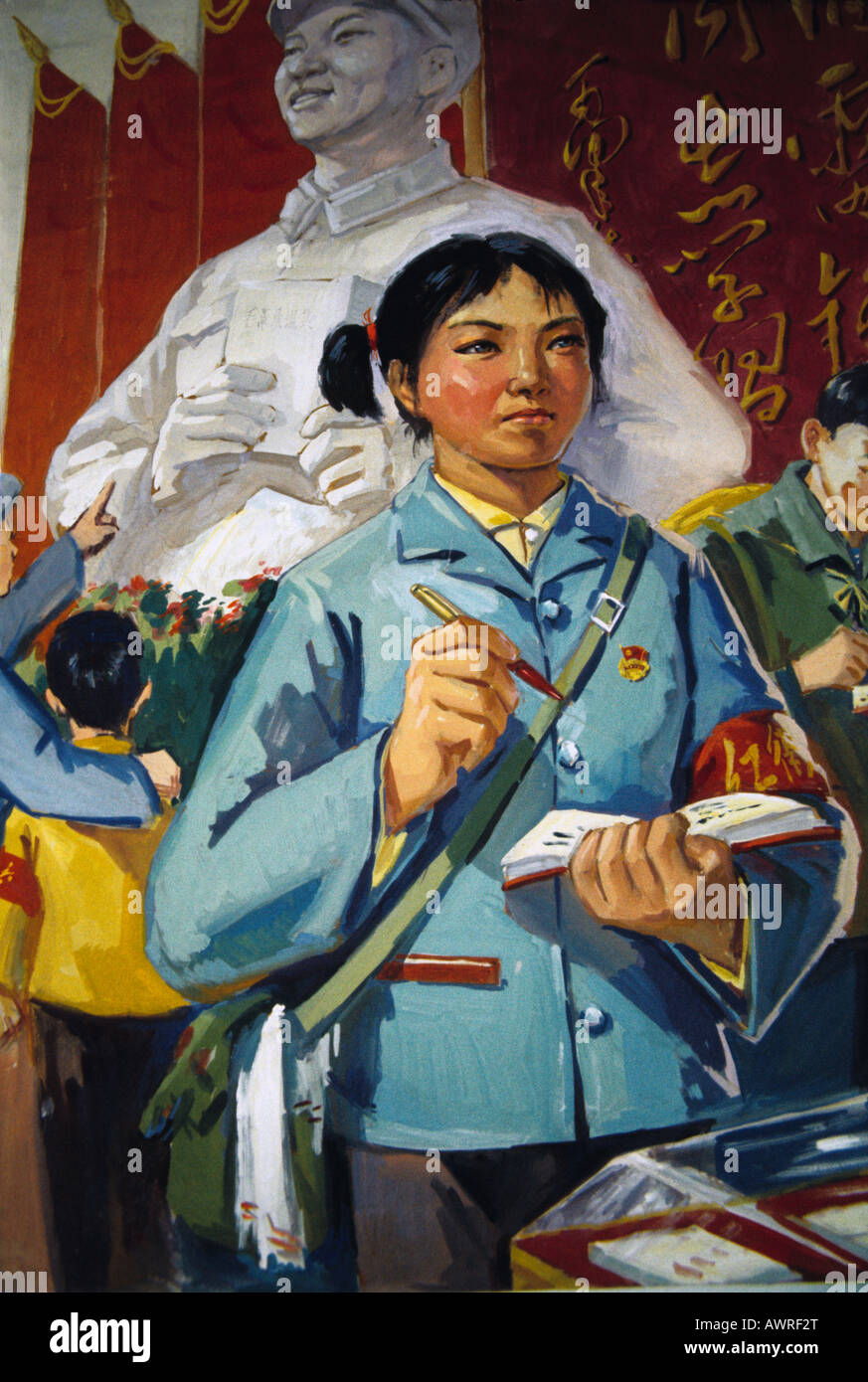 Shenyang Middle School student painting in 1976 of Red Guard in campaign to Learn from Lei Feng Stock Photohttps://www.alamy.com/image-license-details/?v=1https://www.alamy.com/stock-photo-shenyang-middle-school-student-painting-in-1976-of-red-guard-in-campaign-16641551.html
Shenyang Middle School student painting in 1976 of Red Guard in campaign to Learn from Lei Feng Stock Photohttps://www.alamy.com/image-license-details/?v=1https://www.alamy.com/stock-photo-shenyang-middle-school-student-painting-in-1976-of-red-guard-in-campaign-16641551.htmlRMAWRF2T–Shenyang Middle School student painting in 1976 of Red Guard in campaign to Learn from Lei Feng
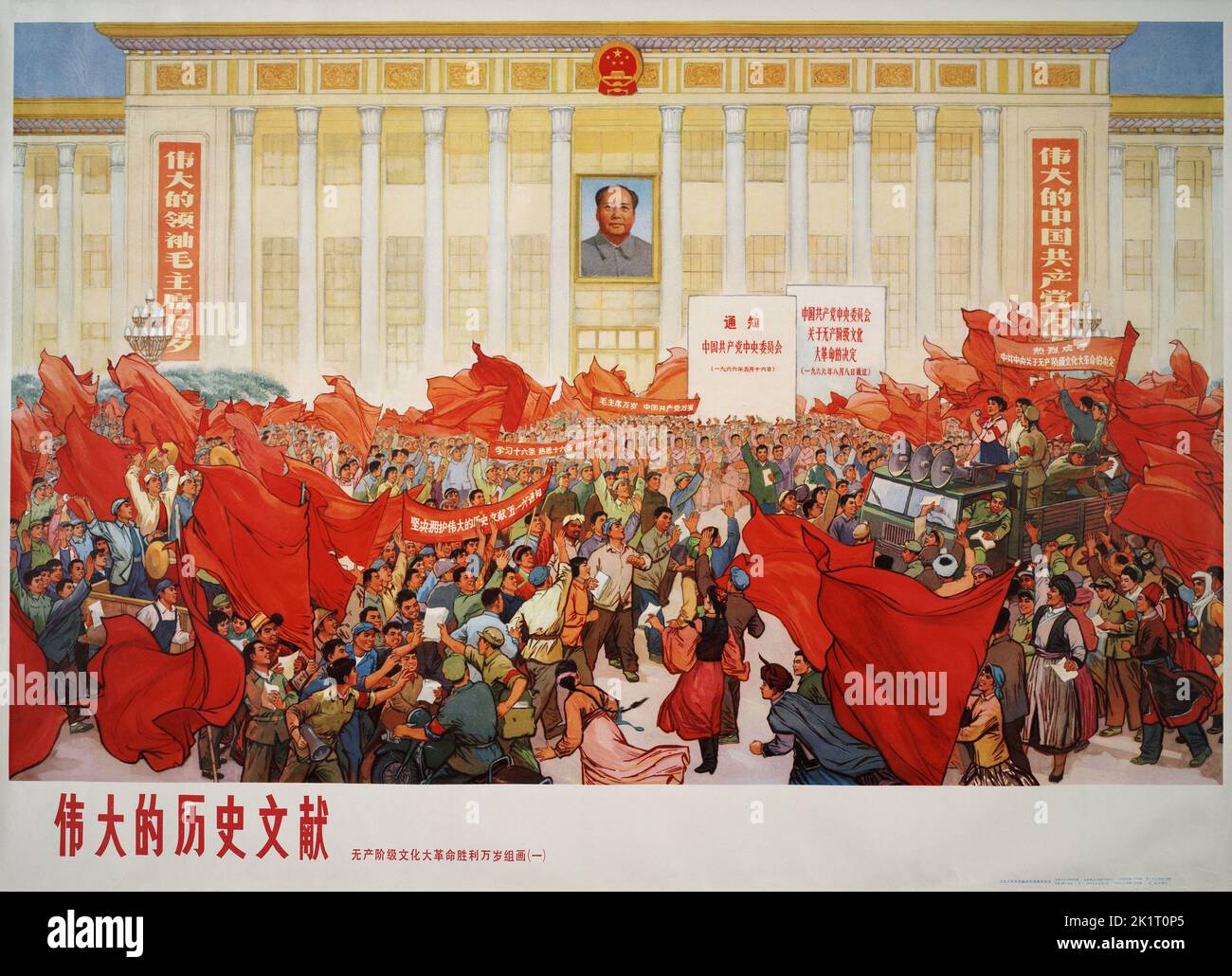 Long Live the Victory of the Great Proletarian Cultural Revolution. Museum: PRIVATE COLLECTION. Author: ANONYMOUS. Stock Photohttps://www.alamy.com/image-license-details/?v=1https://www.alamy.com/long-live-the-victory-of-the-great-proletarian-cultural-revolution-museum-private-collection-author-anonymous-image483032429.html
Long Live the Victory of the Great Proletarian Cultural Revolution. Museum: PRIVATE COLLECTION. Author: ANONYMOUS. Stock Photohttps://www.alamy.com/image-license-details/?v=1https://www.alamy.com/long-live-the-victory-of-the-great-proletarian-cultural-revolution-museum-private-collection-author-anonymous-image483032429.htmlRM2K1T0P5–Long Live the Victory of the Great Proletarian Cultural Revolution. Museum: PRIVATE COLLECTION. Author: ANONYMOUS.
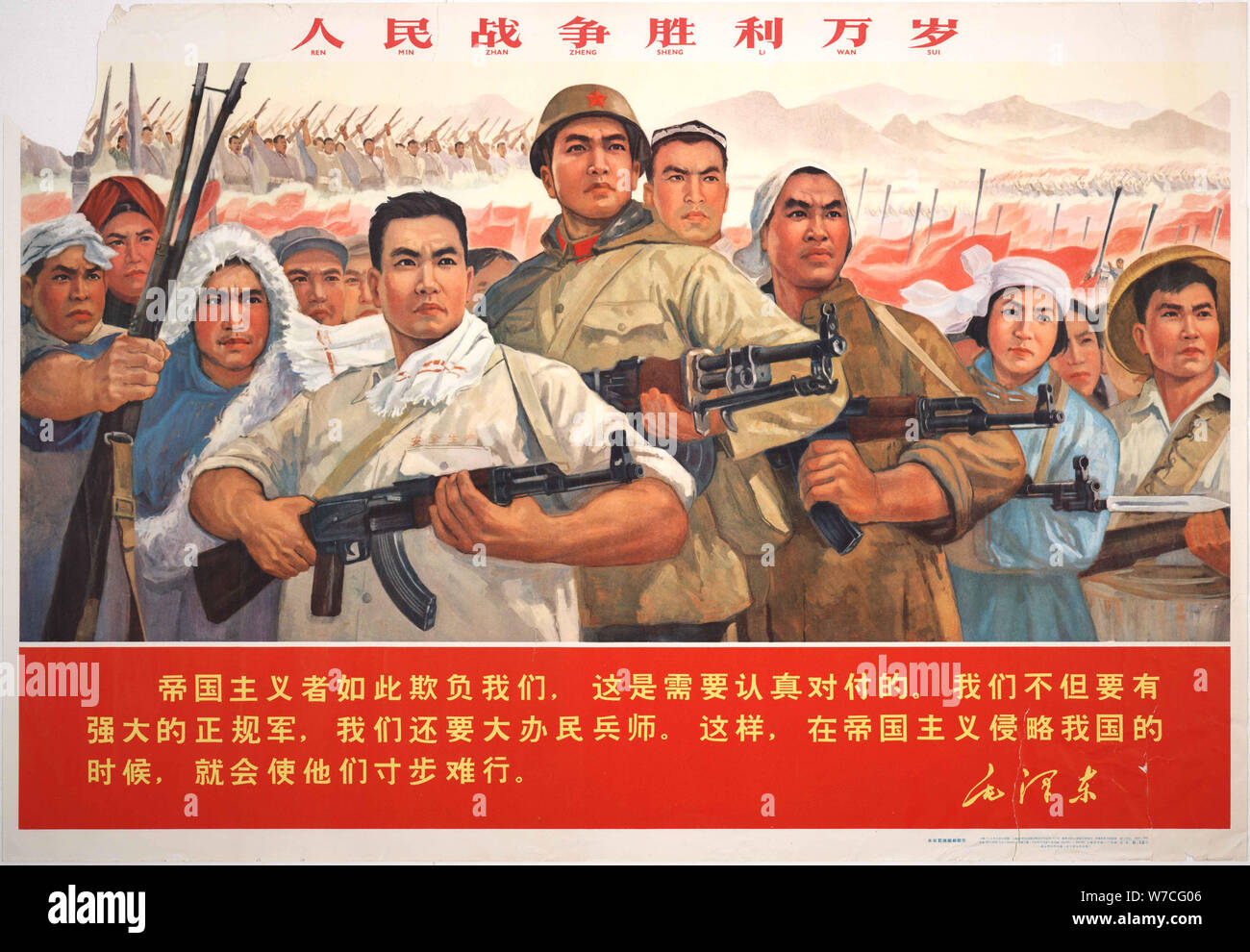 Long Live the Victory of People's War!, 1966. Stock Photohttps://www.alamy.com/image-license-details/?v=1https://www.alamy.com/long-live-the-victory-of-peoples-war!-1966-image262734086.html
Long Live the Victory of People's War!, 1966. Stock Photohttps://www.alamy.com/image-license-details/?v=1https://www.alamy.com/long-live-the-victory-of-peoples-war!-1966-image262734086.htmlRMW7CG06–Long Live the Victory of People's War!, 1966.
 China: Persecution of a 'Capitalist Roader', Cultural Revolution (1966-1976), 1967. The Great Proletarian Cultural Revolution, commonly known as the Cultural Revolution (Chinese: 文化大革命), was a socio-political movement that took place in the People's Republic of China from 1966 through 1976. Set into motion by Mao Zedong, then Chairman of the Communist Party of China, its stated goal was to enforce socialism in the country by removing capitalist, traditional and cultural elements from Chinese society, and impose Maoist orthodoxy within the Party. Stock Photohttps://www.alamy.com/image-license-details/?v=1https://www.alamy.com/china-persecution-of-a-capitalist-roader-cultural-revolution-1966-1976-1967-the-great-proletarian-cultural-revolution-commonly-known-as-the-cultural-revolution-chinese-was-a-socio-political-movement-that-took-place-in-the-peoples-republic-of-china-from-1966-through-1976-set-into-motion-by-mao-zedong-then-chairman-of-the-communist-party-of-china-its-stated-goal-was-to-enforce-socialism-in-the-country-by-removing-capitalist-traditional-and-cultural-elements-from-chinese-society-and-impose-maoist-orthodoxy-within-the-party-image344240698.html
China: Persecution of a 'Capitalist Roader', Cultural Revolution (1966-1976), 1967. The Great Proletarian Cultural Revolution, commonly known as the Cultural Revolution (Chinese: 文化大革命), was a socio-political movement that took place in the People's Republic of China from 1966 through 1976. Set into motion by Mao Zedong, then Chairman of the Communist Party of China, its stated goal was to enforce socialism in the country by removing capitalist, traditional and cultural elements from Chinese society, and impose Maoist orthodoxy within the Party. Stock Photohttps://www.alamy.com/image-license-details/?v=1https://www.alamy.com/china-persecution-of-a-capitalist-roader-cultural-revolution-1966-1976-1967-the-great-proletarian-cultural-revolution-commonly-known-as-the-cultural-revolution-chinese-was-a-socio-political-movement-that-took-place-in-the-peoples-republic-of-china-from-1966-through-1976-set-into-motion-by-mao-zedong-then-chairman-of-the-communist-party-of-china-its-stated-goal-was-to-enforce-socialism-in-the-country-by-removing-capitalist-traditional-and-cultural-elements-from-chinese-society-and-impose-maoist-orthodoxy-within-the-party-image344240698.htmlRM2B01EEJ–China: Persecution of a 'Capitalist Roader', Cultural Revolution (1966-1976), 1967. The Great Proletarian Cultural Revolution, commonly known as the Cultural Revolution (Chinese: 文化大革命), was a socio-political movement that took place in the People's Republic of China from 1966 through 1976. Set into motion by Mao Zedong, then Chairman of the Communist Party of China, its stated goal was to enforce socialism in the country by removing capitalist, traditional and cultural elements from Chinese society, and impose Maoist orthodoxy within the Party.
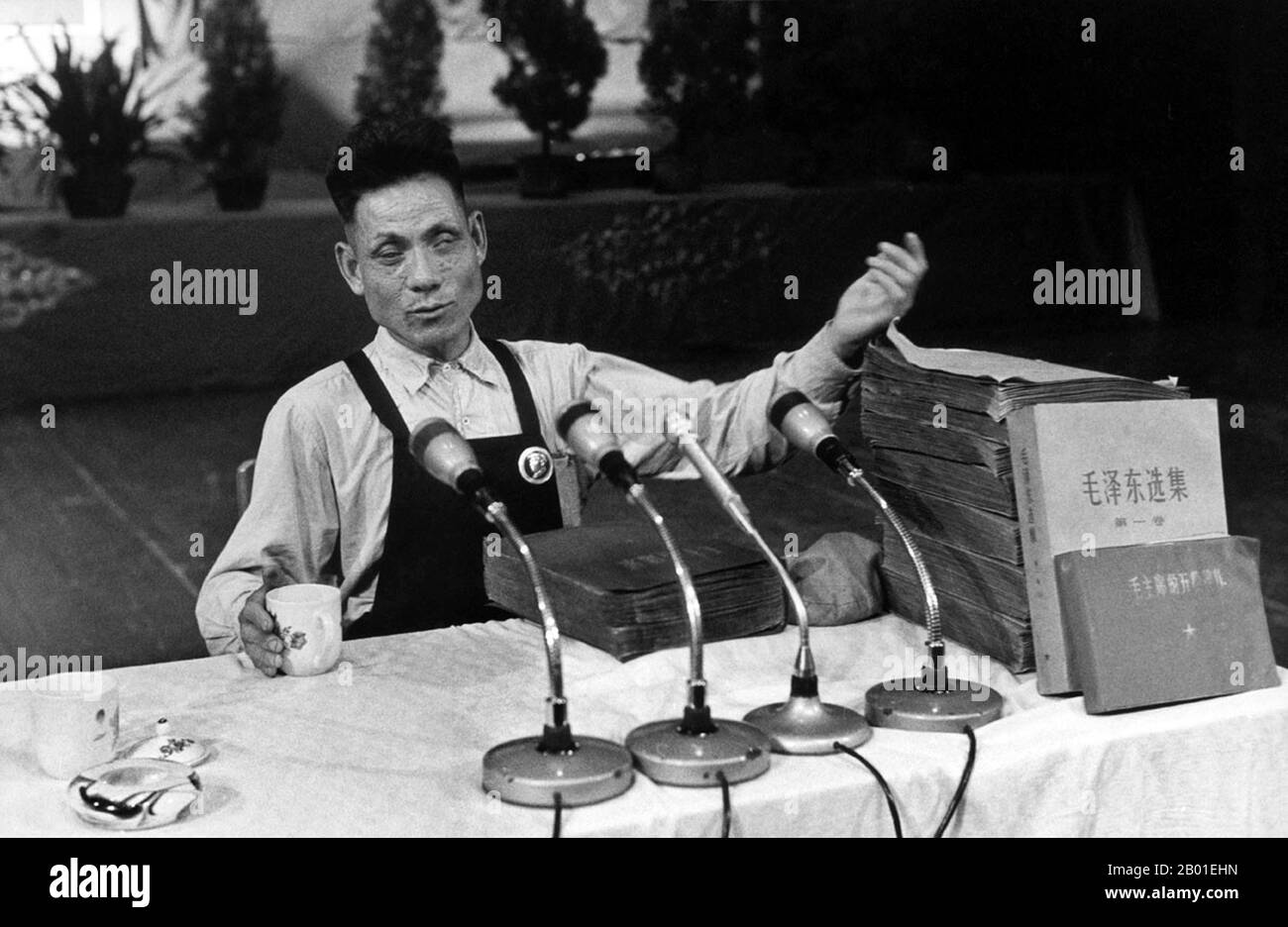 China: Scene from the Cultural Revolution (1966-1976), captioned 'Blind activist learning and using Mao Zedong Thought', 1967. The Great Proletarian Cultural Revolution, commonly known as the Cultural Revolution (Chinese: 文化大革命), was a socio-political movement that took place in the People's Republic of China from 1966 through 1976. Set into motion by Mao Zedong, then Chairman of the Communist Party of China, its stated goal was to enforce socialism in the country by removing capitalist, traditional and cultural elements from Chinese society, and impose Maoist orthodoxy within the Party. Stock Photohttps://www.alamy.com/image-license-details/?v=1https://www.alamy.com/china-scene-from-the-cultural-revolution-1966-1976-captioned-blind-activist-learning-and-using-mao-zedong-thought-1967-the-great-proletarian-cultural-revolution-commonly-known-as-the-cultural-revolution-chinese-was-a-socio-political-movement-that-took-place-in-the-peoples-republic-of-china-from-1966-through-1976-set-into-motion-by-mao-zedong-then-chairman-of-the-communist-party-of-china-its-stated-goal-was-to-enforce-socialism-in-the-country-by-removing-capitalist-traditional-and-cultural-elements-from-chinese-society-and-impose-maoist-orthodoxy-within-the-party-image344240785.html
China: Scene from the Cultural Revolution (1966-1976), captioned 'Blind activist learning and using Mao Zedong Thought', 1967. The Great Proletarian Cultural Revolution, commonly known as the Cultural Revolution (Chinese: 文化大革命), was a socio-political movement that took place in the People's Republic of China from 1966 through 1976. Set into motion by Mao Zedong, then Chairman of the Communist Party of China, its stated goal was to enforce socialism in the country by removing capitalist, traditional and cultural elements from Chinese society, and impose Maoist orthodoxy within the Party. Stock Photohttps://www.alamy.com/image-license-details/?v=1https://www.alamy.com/china-scene-from-the-cultural-revolution-1966-1976-captioned-blind-activist-learning-and-using-mao-zedong-thought-1967-the-great-proletarian-cultural-revolution-commonly-known-as-the-cultural-revolution-chinese-was-a-socio-political-movement-that-took-place-in-the-peoples-republic-of-china-from-1966-through-1976-set-into-motion-by-mao-zedong-then-chairman-of-the-communist-party-of-china-its-stated-goal-was-to-enforce-socialism-in-the-country-by-removing-capitalist-traditional-and-cultural-elements-from-chinese-society-and-impose-maoist-orthodoxy-within-the-party-image344240785.htmlRM2B01EHN–China: Scene from the Cultural Revolution (1966-1976), captioned 'Blind activist learning and using Mao Zedong Thought', 1967. The Great Proletarian Cultural Revolution, commonly known as the Cultural Revolution (Chinese: 文化大革命), was a socio-political movement that took place in the People's Republic of China from 1966 through 1976. Set into motion by Mao Zedong, then Chairman of the Communist Party of China, its stated goal was to enforce socialism in the country by removing capitalist, traditional and cultural elements from Chinese society, and impose Maoist orthodoxy within the Party.
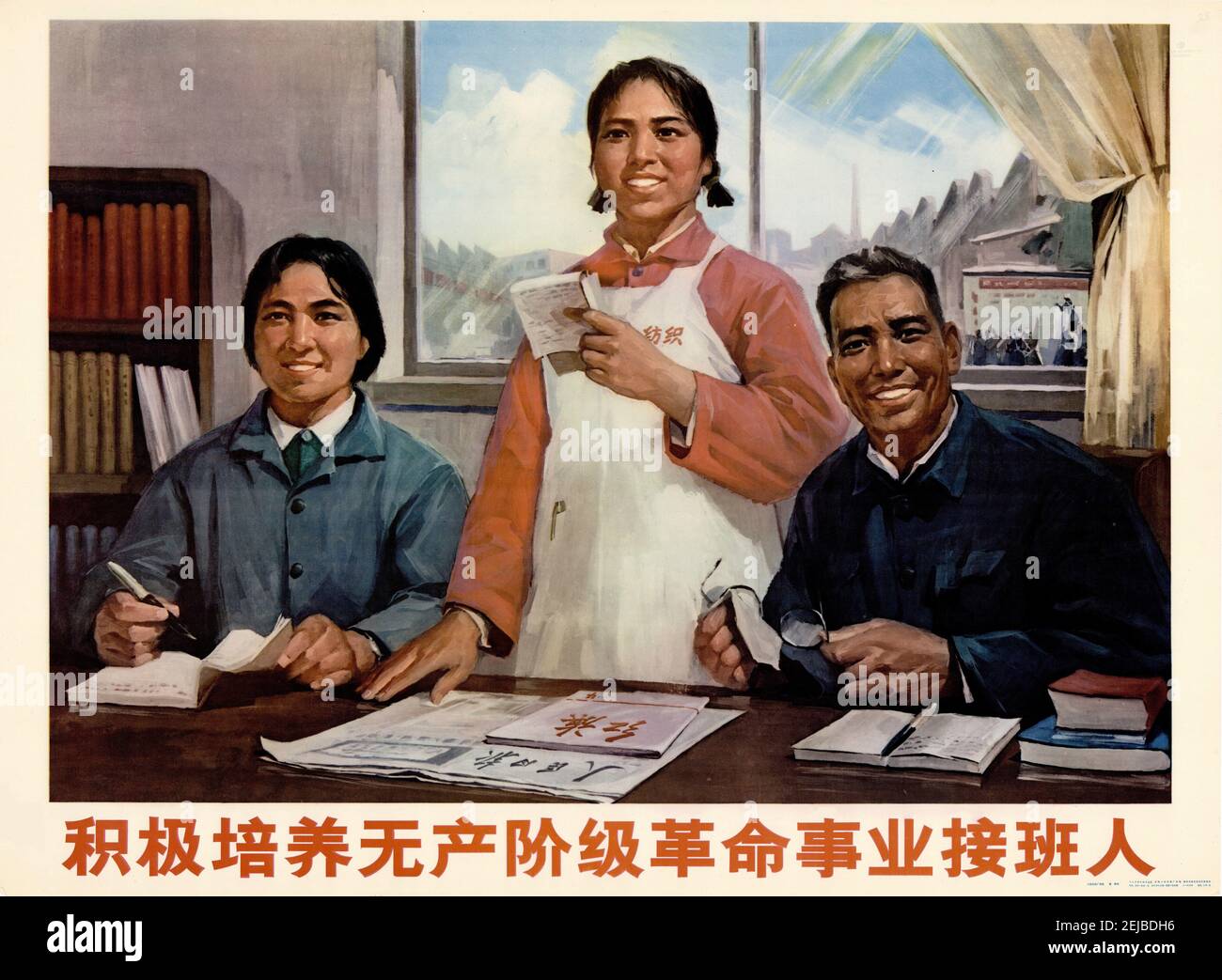 Be active in educating people in the cause of the proletarian revolution. Museum: PRIVATE COLLECTION. Author: ANONYMOUS. Stock Photohttps://www.alamy.com/image-license-details/?v=1https://www.alamy.com/be-active-in-educating-people-in-the-cause-of-the-proletarian-revolution-museum-private-collection-author-anonymous-image407154418.html
Be active in educating people in the cause of the proletarian revolution. Museum: PRIVATE COLLECTION. Author: ANONYMOUS. Stock Photohttps://www.alamy.com/image-license-details/?v=1https://www.alamy.com/be-active-in-educating-people-in-the-cause-of-the-proletarian-revolution-museum-private-collection-author-anonymous-image407154418.htmlRM2EJBDH6–Be active in educating people in the cause of the proletarian revolution. Museum: PRIVATE COLLECTION. Author: ANONYMOUS.
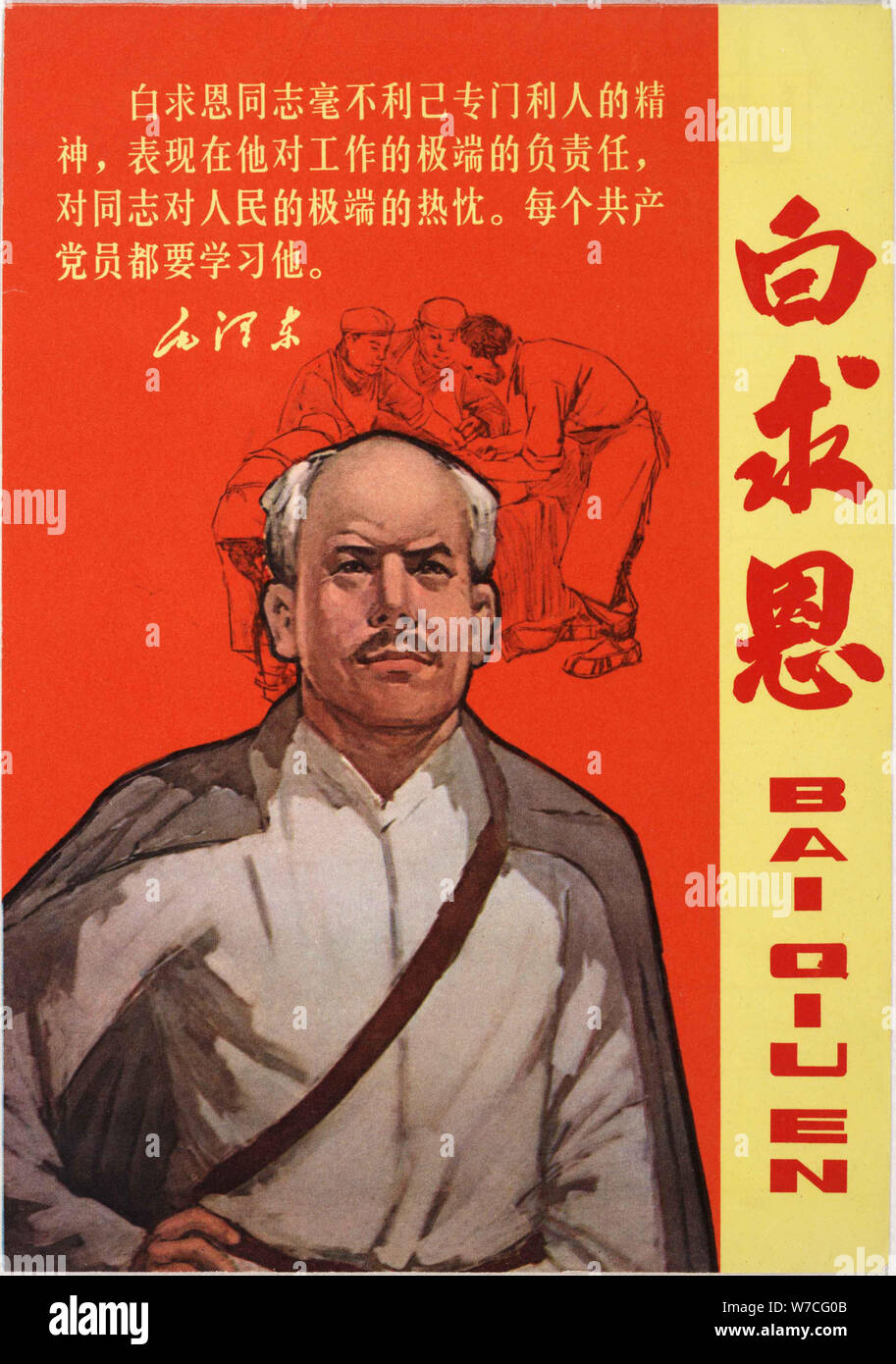 Norman Bethune, 1967. Stock Photohttps://www.alamy.com/image-license-details/?v=1https://www.alamy.com/norman-bethune-1967-image262734091.html
Norman Bethune, 1967. Stock Photohttps://www.alamy.com/image-license-details/?v=1https://www.alamy.com/norman-bethune-1967-image262734091.htmlRMW7CG0B–Norman Bethune, 1967.
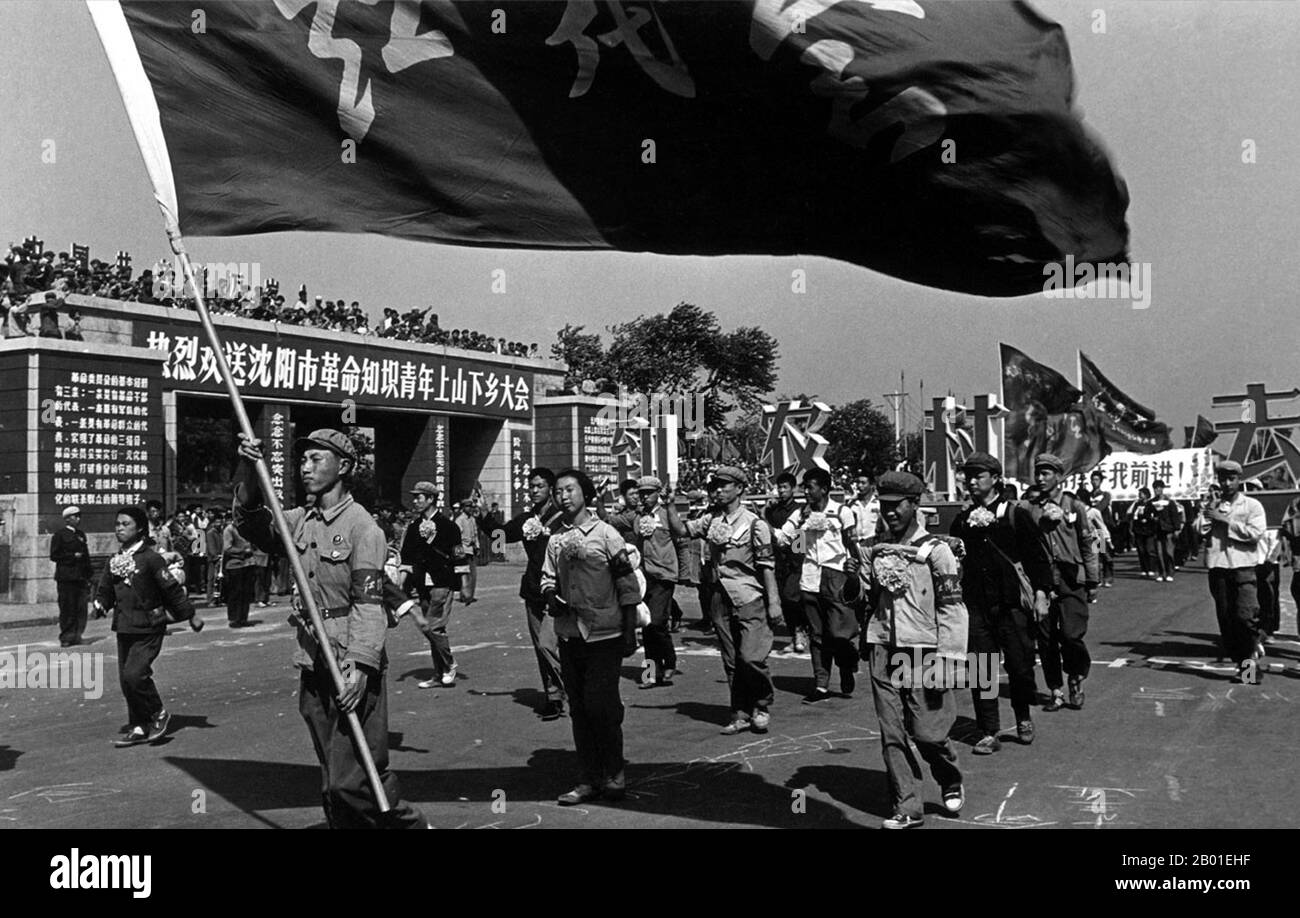 China: A scene from the Cultural Revolution (1966-1976) on the streets of Shenyang, August 1968. The Great Proletarian Cultural Revolution, commonly known as the Cultural Revolution (Chinese: 文化大革命), was a socio-political movement that took place in the People's Republic of China from 1966 through 1976. Set into motion by Mao Zedong, then Chairman of the Communist Party of China, its stated goal was to enforce socialism in the country by removing capitalist, traditional and cultural elements from Chinese society, and impose Maoist orthodoxy within the Party. Stock Photohttps://www.alamy.com/image-license-details/?v=1https://www.alamy.com/china-a-scene-from-the-cultural-revolution-1966-1976-on-the-streets-of-shenyang-august-1968-the-great-proletarian-cultural-revolution-commonly-known-as-the-cultural-revolution-chinese-was-a-socio-political-movement-that-took-place-in-the-peoples-republic-of-china-from-1966-through-1976-set-into-motion-by-mao-zedong-then-chairman-of-the-communist-party-of-china-its-stated-goal-was-to-enforce-socialism-in-the-country-by-removing-capitalist-traditional-and-cultural-elements-from-chinese-society-and-impose-maoist-orthodoxy-within-the-party-image344240779.html
China: A scene from the Cultural Revolution (1966-1976) on the streets of Shenyang, August 1968. The Great Proletarian Cultural Revolution, commonly known as the Cultural Revolution (Chinese: 文化大革命), was a socio-political movement that took place in the People's Republic of China from 1966 through 1976. Set into motion by Mao Zedong, then Chairman of the Communist Party of China, its stated goal was to enforce socialism in the country by removing capitalist, traditional and cultural elements from Chinese society, and impose Maoist orthodoxy within the Party. Stock Photohttps://www.alamy.com/image-license-details/?v=1https://www.alamy.com/china-a-scene-from-the-cultural-revolution-1966-1976-on-the-streets-of-shenyang-august-1968-the-great-proletarian-cultural-revolution-commonly-known-as-the-cultural-revolution-chinese-was-a-socio-political-movement-that-took-place-in-the-peoples-republic-of-china-from-1966-through-1976-set-into-motion-by-mao-zedong-then-chairman-of-the-communist-party-of-china-its-stated-goal-was-to-enforce-socialism-in-the-country-by-removing-capitalist-traditional-and-cultural-elements-from-chinese-society-and-impose-maoist-orthodoxy-within-the-party-image344240779.htmlRM2B01EHF–China: A scene from the Cultural Revolution (1966-1976) on the streets of Shenyang, August 1968. The Great Proletarian Cultural Revolution, commonly known as the Cultural Revolution (Chinese: 文化大革命), was a socio-political movement that took place in the People's Republic of China from 1966 through 1976. Set into motion by Mao Zedong, then Chairman of the Communist Party of China, its stated goal was to enforce socialism in the country by removing capitalist, traditional and cultural elements from Chinese society, and impose Maoist orthodoxy within the Party.
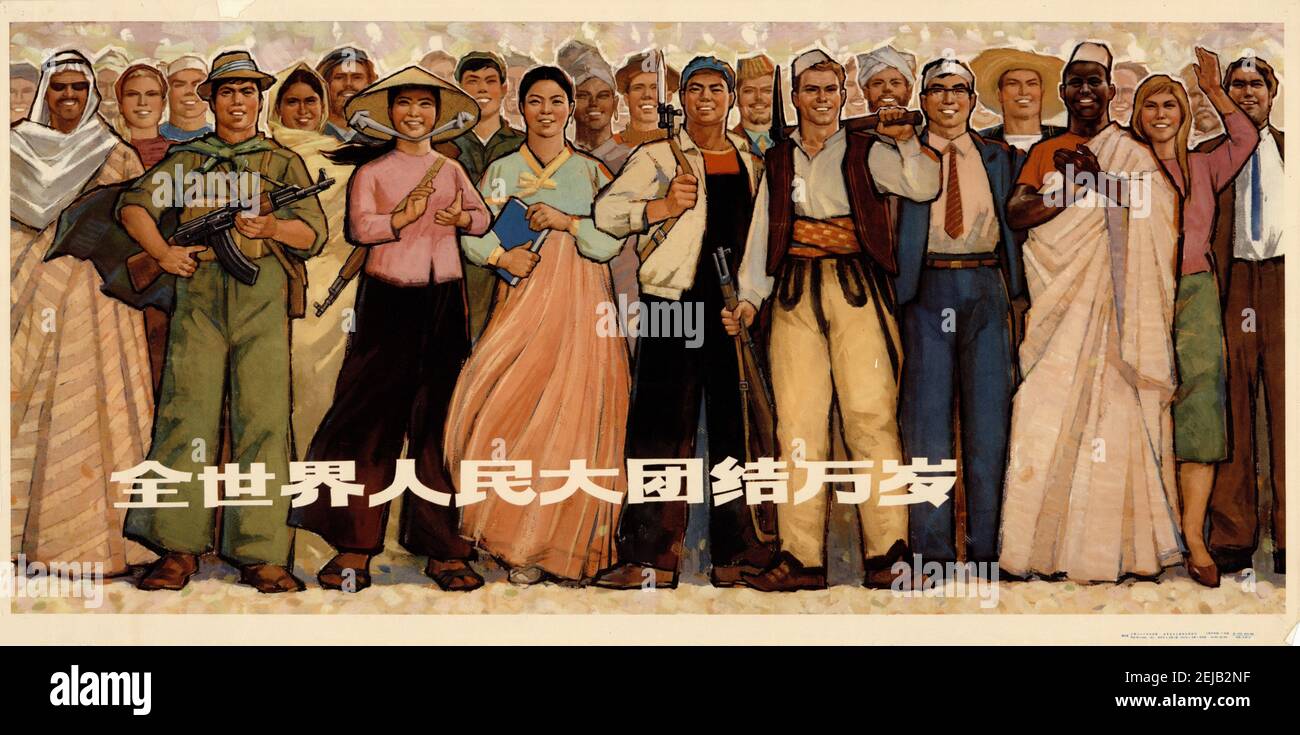 Long Live the Great Unity of The People of the World!. Museum: PRIVATE COLLECTION. Author: ANONYMOUS. Stock Photohttps://www.alamy.com/image-license-details/?v=1https://www.alamy.com/long-live-the-great-unity-of-the-people-of-the-world!-museum-private-collection-author-anonymous-image407145915.html
Long Live the Great Unity of The People of the World!. Museum: PRIVATE COLLECTION. Author: ANONYMOUS. Stock Photohttps://www.alamy.com/image-license-details/?v=1https://www.alamy.com/long-live-the-great-unity-of-the-people-of-the-world!-museum-private-collection-author-anonymous-image407145915.htmlRM2EJB2NF–Long Live the Great Unity of The People of the World!. Museum: PRIVATE COLLECTION. Author: ANONYMOUS.
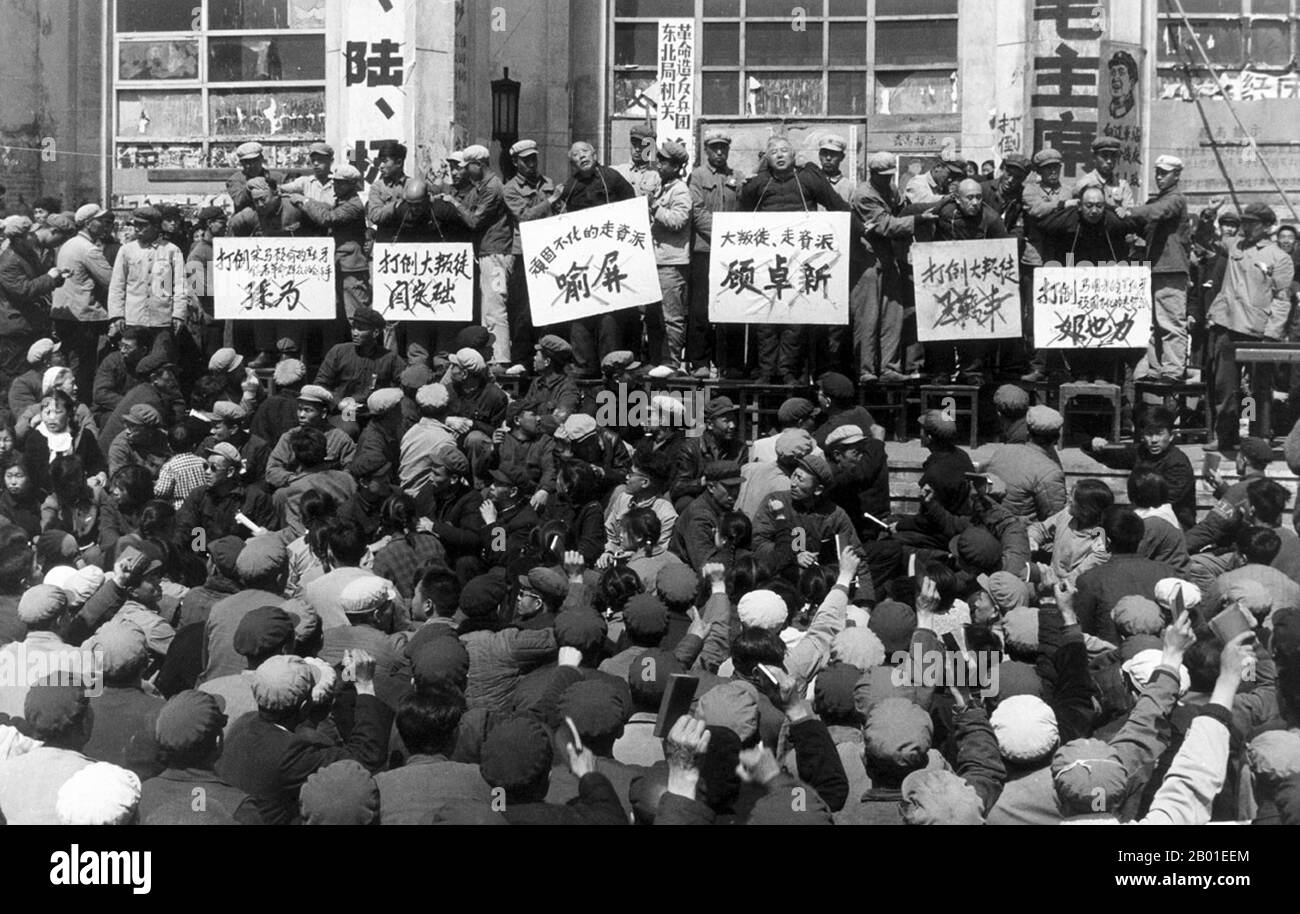 China: A meeting to denounce 'Rightists' and 'Capitalist Roaders', scene from the Cultural Revolution (1966-1967), c. 1968. The Great Proletarian Cultural Revolution, commonly known as the Cultural Revolution (Chinese: 文化大革命), was a socio-political movement that took place in the People's Republic of China from 1966 through 1976. Set into motion by Mao Zedong, then Chairman of the Communist Party of China, its stated goal was to enforce socialism in the country by removing capitalist, traditional and cultural elements from Chinese society, and impose Maoist orthodoxy within the Party. Stock Photohttps://www.alamy.com/image-license-details/?v=1https://www.alamy.com/china-a-meeting-to-denounce-rightists-and-capitalist-roaders-scene-from-the-cultural-revolution-1966-1967-c-1968-the-great-proletarian-cultural-revolution-commonly-known-as-the-cultural-revolution-chinese-was-a-socio-political-movement-that-took-place-in-the-peoples-republic-of-china-from-1966-through-1976-set-into-motion-by-mao-zedong-then-chairman-of-the-communist-party-of-china-its-stated-goal-was-to-enforce-socialism-in-the-country-by-removing-capitalist-traditional-and-cultural-elements-from-chinese-society-and-impose-maoist-orthodoxy-within-the-party-image344240700.html
China: A meeting to denounce 'Rightists' and 'Capitalist Roaders', scene from the Cultural Revolution (1966-1967), c. 1968. The Great Proletarian Cultural Revolution, commonly known as the Cultural Revolution (Chinese: 文化大革命), was a socio-political movement that took place in the People's Republic of China from 1966 through 1976. Set into motion by Mao Zedong, then Chairman of the Communist Party of China, its stated goal was to enforce socialism in the country by removing capitalist, traditional and cultural elements from Chinese society, and impose Maoist orthodoxy within the Party. Stock Photohttps://www.alamy.com/image-license-details/?v=1https://www.alamy.com/china-a-meeting-to-denounce-rightists-and-capitalist-roaders-scene-from-the-cultural-revolution-1966-1967-c-1968-the-great-proletarian-cultural-revolution-commonly-known-as-the-cultural-revolution-chinese-was-a-socio-political-movement-that-took-place-in-the-peoples-republic-of-china-from-1966-through-1976-set-into-motion-by-mao-zedong-then-chairman-of-the-communist-party-of-china-its-stated-goal-was-to-enforce-socialism-in-the-country-by-removing-capitalist-traditional-and-cultural-elements-from-chinese-society-and-impose-maoist-orthodoxy-within-the-party-image344240700.htmlRM2B01EEM–China: A meeting to denounce 'Rightists' and 'Capitalist Roaders', scene from the Cultural Revolution (1966-1967), c. 1968. The Great Proletarian Cultural Revolution, commonly known as the Cultural Revolution (Chinese: 文化大革命), was a socio-political movement that took place in the People's Republic of China from 1966 through 1976. Set into motion by Mao Zedong, then Chairman of the Communist Party of China, its stated goal was to enforce socialism in the country by removing capitalist, traditional and cultural elements from Chinese society, and impose Maoist orthodoxy within the Party.
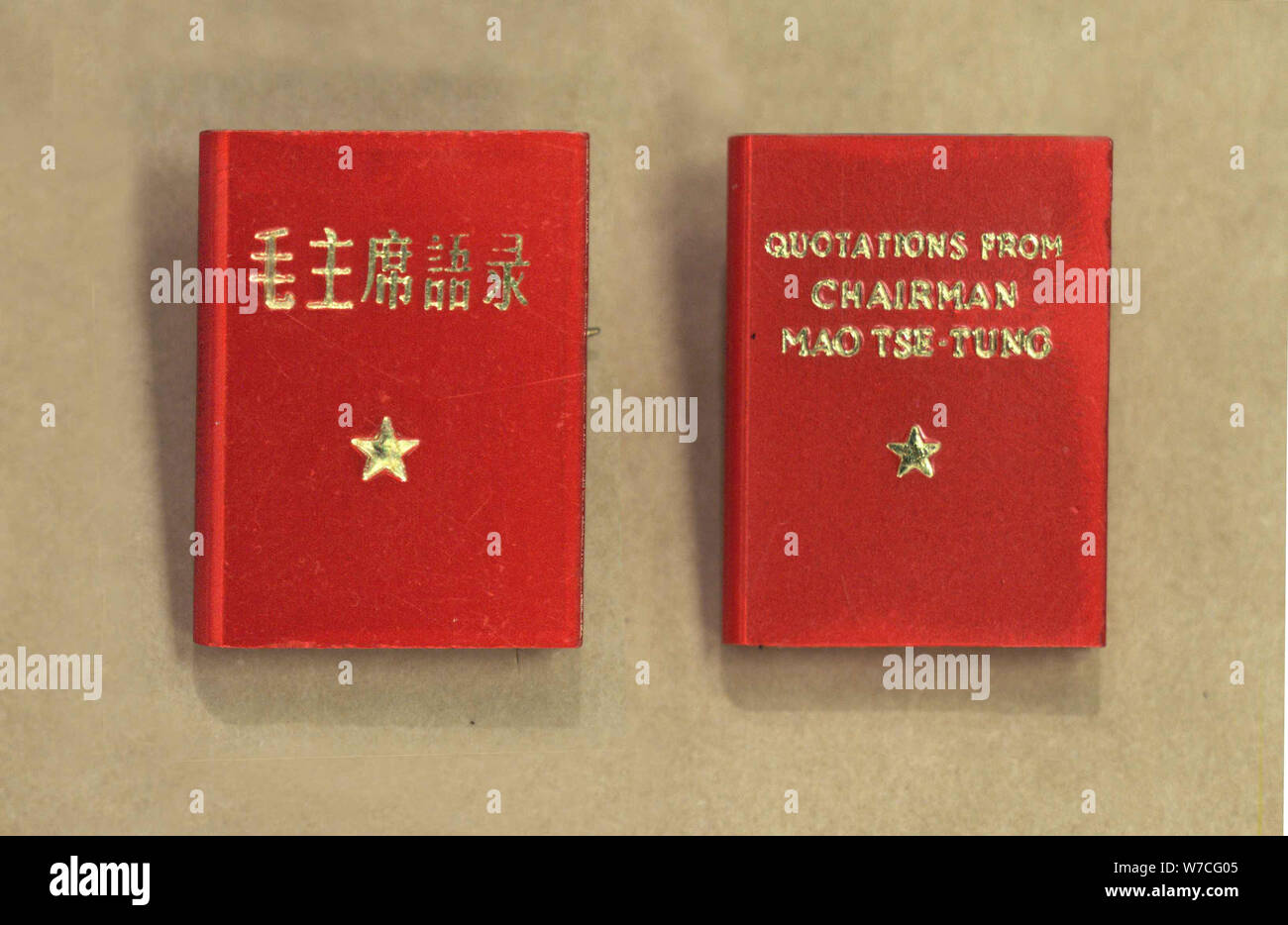 Quotations from Chairman Mao Tse-tung, 1966. Stock Photohttps://www.alamy.com/image-license-details/?v=1https://www.alamy.com/quotations-from-chairman-mao-tse-tung-1966-image262734085.html
Quotations from Chairman Mao Tse-tung, 1966. Stock Photohttps://www.alamy.com/image-license-details/?v=1https://www.alamy.com/quotations-from-chairman-mao-tse-tung-1966-image262734085.htmlRMW7CG05–Quotations from Chairman Mao Tse-tung, 1966.
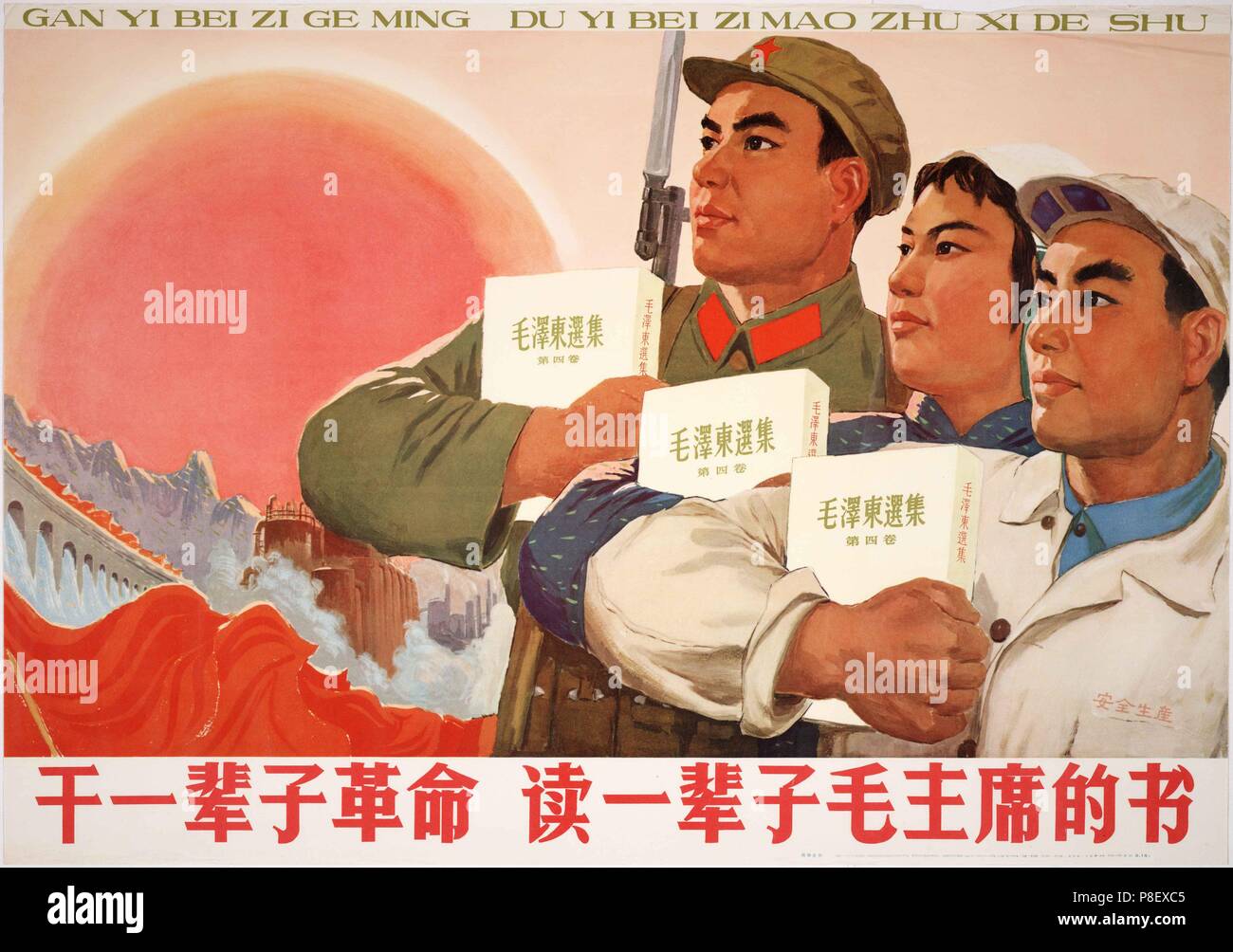 A Lifetime of Revolution, a Lifetime of Studying the Works of Chairman Mao. Museum: PRIVATE COLLECTION. Stock Photohttps://www.alamy.com/image-license-details/?v=1https://www.alamy.com/a-lifetime-of-revolution-a-lifetime-of-studying-the-works-of-chairman-mao-museum-private-collection-image211769717.html
A Lifetime of Revolution, a Lifetime of Studying the Works of Chairman Mao. Museum: PRIVATE COLLECTION. Stock Photohttps://www.alamy.com/image-license-details/?v=1https://www.alamy.com/a-lifetime-of-revolution-a-lifetime-of-studying-the-works-of-chairman-mao-museum-private-collection-image211769717.htmlRMP8EXC5–A Lifetime of Revolution, a Lifetime of Studying the Works of Chairman Mao. Museum: PRIVATE COLLECTION.
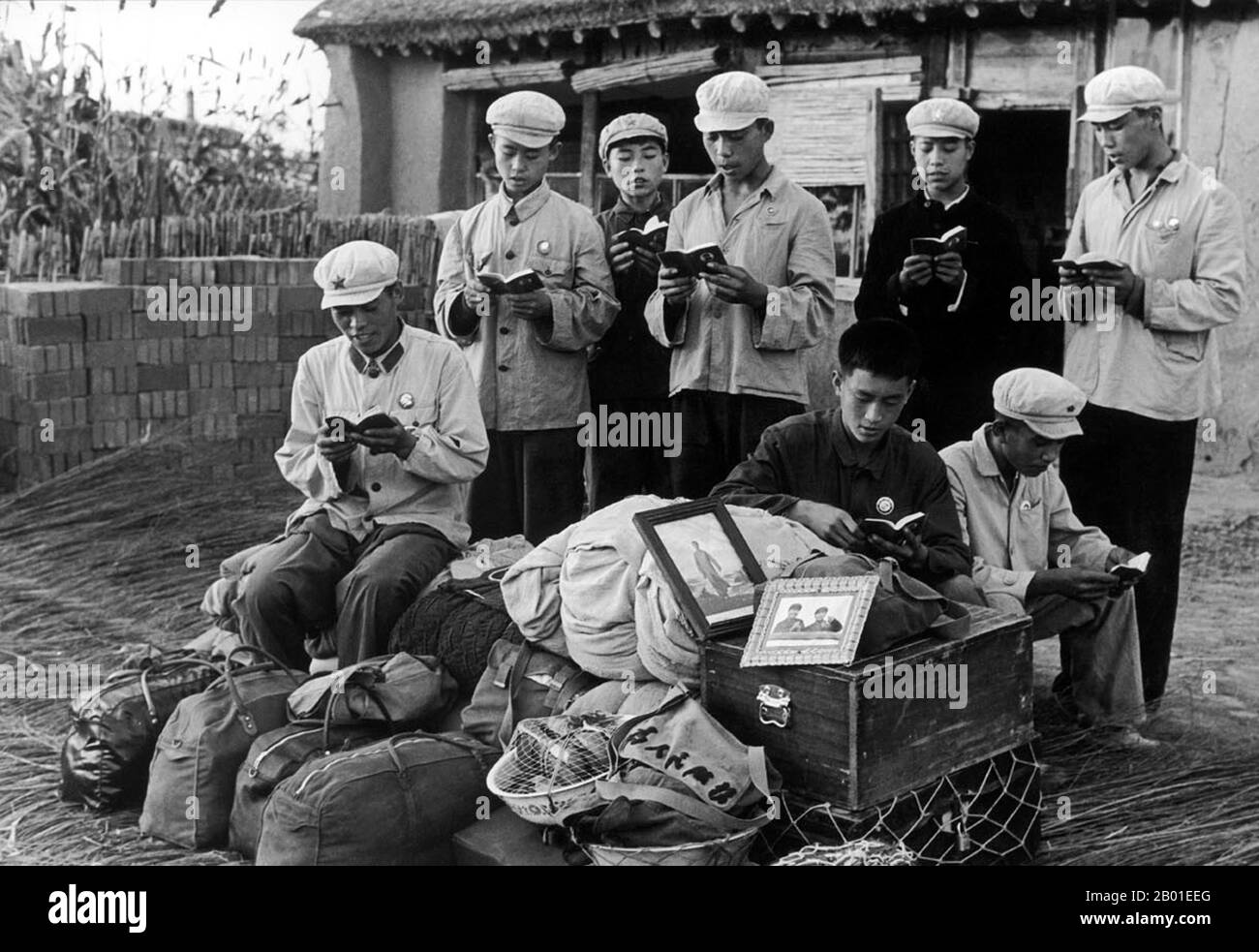 China: Reading Mao Zedong's 'Little Red Book' while waiting for transport, a scene from the Cultural Revolution (1966-1976), 1968. The Great Proletarian Cultural Revolution, commonly known as the Cultural Revolution (Chinese: 文化大革命), was a socio-political movement that took place in the People's Republic of China from 1966 through 1976. Set into motion by Mao Zedong, then Chairman of the Communist Party of China, its stated goal was to enforce socialism in the country by removing capitalist, traditional and cultural elements from Chinese society, and impose Maoist orthodoxy within the Party. Stock Photohttps://www.alamy.com/image-license-details/?v=1https://www.alamy.com/china-reading-mao-zedongs-little-red-book-while-waiting-for-transport-a-scene-from-the-cultural-revolution-1966-1976-1968-the-great-proletarian-cultural-revolution-commonly-known-as-the-cultural-revolution-chinese-was-a-socio-political-movement-that-took-place-in-the-peoples-republic-of-china-from-1966-through-1976-set-into-motion-by-mao-zedong-then-chairman-of-the-communist-party-of-china-its-stated-goal-was-to-enforce-socialism-in-the-country-by-removing-capitalist-traditional-and-cultural-elements-from-chinese-society-and-impose-maoist-orthodoxy-within-the-party-image344240696.html
China: Reading Mao Zedong's 'Little Red Book' while waiting for transport, a scene from the Cultural Revolution (1966-1976), 1968. The Great Proletarian Cultural Revolution, commonly known as the Cultural Revolution (Chinese: 文化大革命), was a socio-political movement that took place in the People's Republic of China from 1966 through 1976. Set into motion by Mao Zedong, then Chairman of the Communist Party of China, its stated goal was to enforce socialism in the country by removing capitalist, traditional and cultural elements from Chinese society, and impose Maoist orthodoxy within the Party. Stock Photohttps://www.alamy.com/image-license-details/?v=1https://www.alamy.com/china-reading-mao-zedongs-little-red-book-while-waiting-for-transport-a-scene-from-the-cultural-revolution-1966-1976-1968-the-great-proletarian-cultural-revolution-commonly-known-as-the-cultural-revolution-chinese-was-a-socio-political-movement-that-took-place-in-the-peoples-republic-of-china-from-1966-through-1976-set-into-motion-by-mao-zedong-then-chairman-of-the-communist-party-of-china-its-stated-goal-was-to-enforce-socialism-in-the-country-by-removing-capitalist-traditional-and-cultural-elements-from-chinese-society-and-impose-maoist-orthodoxy-within-the-party-image344240696.htmlRM2B01EEG–China: Reading Mao Zedong's 'Little Red Book' while waiting for transport, a scene from the Cultural Revolution (1966-1976), 1968. The Great Proletarian Cultural Revolution, commonly known as the Cultural Revolution (Chinese: 文化大革命), was a socio-political movement that took place in the People's Republic of China from 1966 through 1976. Set into motion by Mao Zedong, then Chairman of the Communist Party of China, its stated goal was to enforce socialism in the country by removing capitalist, traditional and cultural elements from Chinese society, and impose Maoist orthodoxy within the Party.
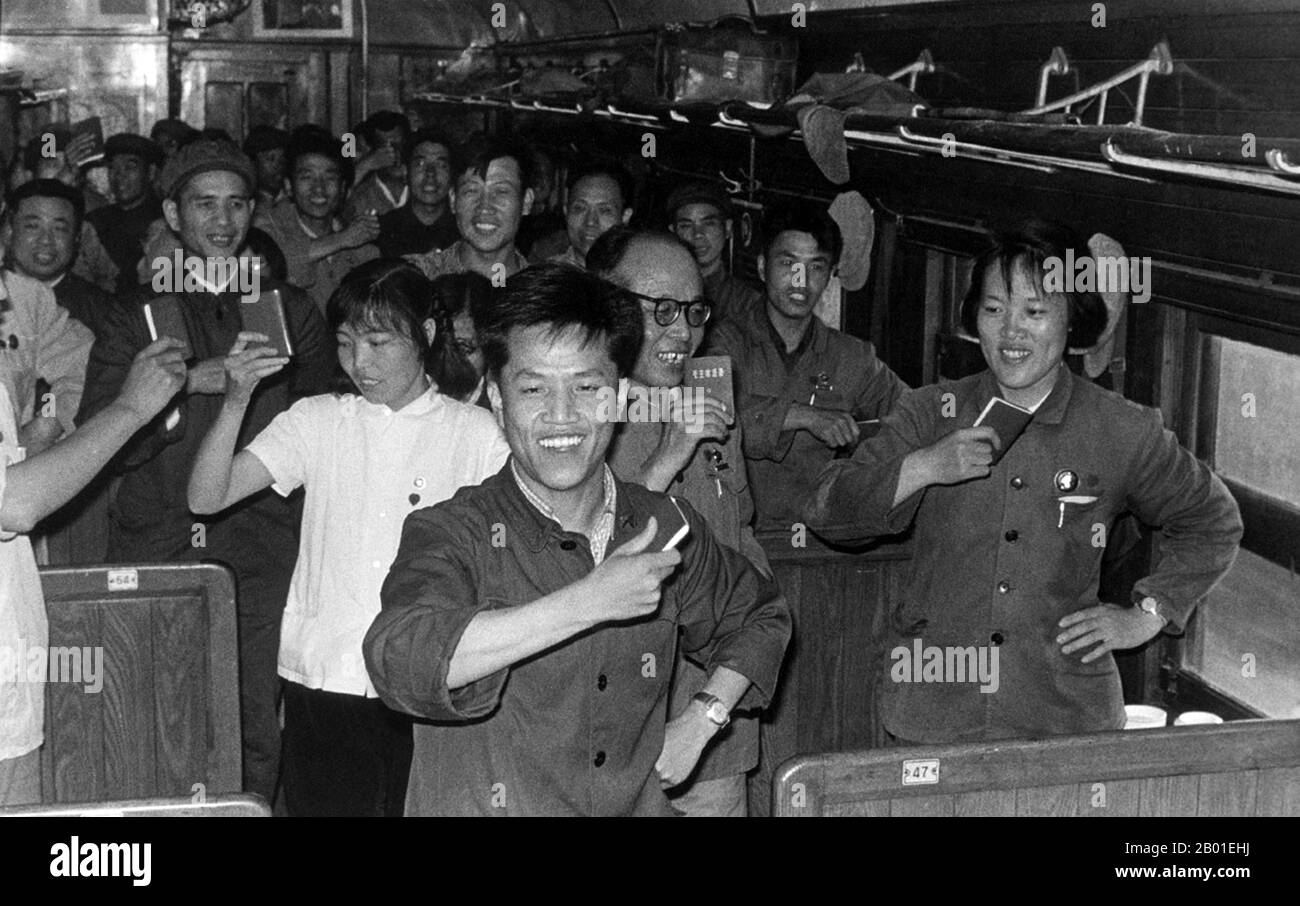 China: Scene from the Cultural Revolution (1966-1976), passengers on a train wave their copies of the 'Little Red Book' containing the selected thoughts of Chairman Mao Zedong, 1967. The Great Proletarian Cultural Revolution, commonly known as the Cultural Revolution (Chinese: 文化大革命), was a socio-political movement that took place in the People's Republic of China from 1966 through 1976. Set into motion by Mao Zedong, then Chairman of the Communist Party of China, its stated goal was to enforce socialism in the country by removing capitalist, traditional and cultural elements from society. Stock Photohttps://www.alamy.com/image-license-details/?v=1https://www.alamy.com/china-scene-from-the-cultural-revolution-1966-1976-passengers-on-a-train-wave-their-copies-of-the-little-red-book-containing-the-selected-thoughts-of-chairman-mao-zedong-1967-the-great-proletarian-cultural-revolution-commonly-known-as-the-cultural-revolution-chinese-was-a-socio-political-movement-that-took-place-in-the-peoples-republic-of-china-from-1966-through-1976-set-into-motion-by-mao-zedong-then-chairman-of-the-communist-party-of-china-its-stated-goal-was-to-enforce-socialism-in-the-country-by-removing-capitalist-traditional-and-cultural-elements-from-society-image344240782.html
China: Scene from the Cultural Revolution (1966-1976), passengers on a train wave their copies of the 'Little Red Book' containing the selected thoughts of Chairman Mao Zedong, 1967. The Great Proletarian Cultural Revolution, commonly known as the Cultural Revolution (Chinese: 文化大革命), was a socio-political movement that took place in the People's Republic of China from 1966 through 1976. Set into motion by Mao Zedong, then Chairman of the Communist Party of China, its stated goal was to enforce socialism in the country by removing capitalist, traditional and cultural elements from society. Stock Photohttps://www.alamy.com/image-license-details/?v=1https://www.alamy.com/china-scene-from-the-cultural-revolution-1966-1976-passengers-on-a-train-wave-their-copies-of-the-little-red-book-containing-the-selected-thoughts-of-chairman-mao-zedong-1967-the-great-proletarian-cultural-revolution-commonly-known-as-the-cultural-revolution-chinese-was-a-socio-political-movement-that-took-place-in-the-peoples-republic-of-china-from-1966-through-1976-set-into-motion-by-mao-zedong-then-chairman-of-the-communist-party-of-china-its-stated-goal-was-to-enforce-socialism-in-the-country-by-removing-capitalist-traditional-and-cultural-elements-from-society-image344240782.htmlRM2B01EHJ–China: Scene from the Cultural Revolution (1966-1976), passengers on a train wave their copies of the 'Little Red Book' containing the selected thoughts of Chairman Mao Zedong, 1967. The Great Proletarian Cultural Revolution, commonly known as the Cultural Revolution (Chinese: 文化大革命), was a socio-political movement that took place in the People's Republic of China from 1966 through 1976. Set into motion by Mao Zedong, then Chairman of the Communist Party of China, its stated goal was to enforce socialism in the country by removing capitalist, traditional and cultural elements from society.
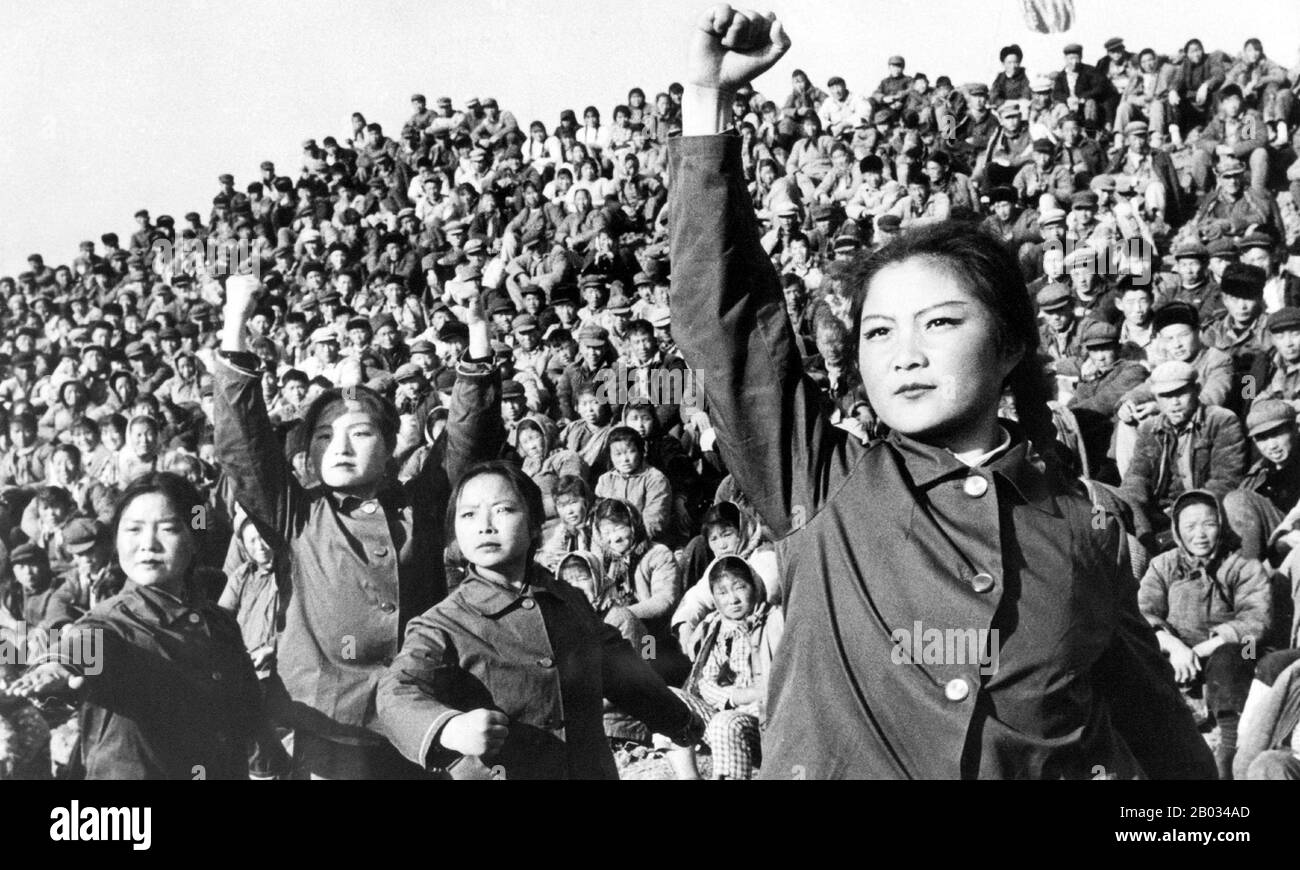 The Great Proletarian Cultural Revolution, commonly known as the Cultural Revolution, was a socio-political movement that took place in the People's Republic of China from 1966 through 1976. Set into motion by Mao Zedong, then Chairman of the Communist Party of China, its stated goal was to enforce socialism in the country by removing capitalist, traditional and cultural elements from Chinese society, and impose Maoist orthodoxy within the Party. The Cultural Revolution damaged the country on a great scale economically and socially. Millions of people were persecuted in the violent factional Stock Photohttps://www.alamy.com/image-license-details/?v=1https://www.alamy.com/the-great-proletarian-cultural-revolution-commonly-known-as-the-cultural-revolution-was-a-socio-political-movement-that-took-place-in-the-peoples-republic-of-china-from-1966-through-1976-set-into-motion-by-mao-zedong-then-chairman-of-the-communist-party-of-china-its-stated-goal-was-to-enforce-socialism-in-the-country-by-removing-capitalist-traditional-and-cultural-elements-from-chinese-society-and-impose-maoist-orthodoxy-within-the-party-the-cultural-revolution-damaged-the-country-on-a-great-scale-economically-and-socially-millions-of-people-were-persecuted-in-the-violent-factional-image344276645.html
The Great Proletarian Cultural Revolution, commonly known as the Cultural Revolution, was a socio-political movement that took place in the People's Republic of China from 1966 through 1976. Set into motion by Mao Zedong, then Chairman of the Communist Party of China, its stated goal was to enforce socialism in the country by removing capitalist, traditional and cultural elements from Chinese society, and impose Maoist orthodoxy within the Party. The Cultural Revolution damaged the country on a great scale economically and socially. Millions of people were persecuted in the violent factional Stock Photohttps://www.alamy.com/image-license-details/?v=1https://www.alamy.com/the-great-proletarian-cultural-revolution-commonly-known-as-the-cultural-revolution-was-a-socio-political-movement-that-took-place-in-the-peoples-republic-of-china-from-1966-through-1976-set-into-motion-by-mao-zedong-then-chairman-of-the-communist-party-of-china-its-stated-goal-was-to-enforce-socialism-in-the-country-by-removing-capitalist-traditional-and-cultural-elements-from-chinese-society-and-impose-maoist-orthodoxy-within-the-party-the-cultural-revolution-damaged-the-country-on-a-great-scale-economically-and-socially-millions-of-people-were-persecuted-in-the-violent-factional-image344276645.htmlRM2B034AD–The Great Proletarian Cultural Revolution, commonly known as the Cultural Revolution, was a socio-political movement that took place in the People's Republic of China from 1966 through 1976. Set into motion by Mao Zedong, then Chairman of the Communist Party of China, its stated goal was to enforce socialism in the country by removing capitalist, traditional and cultural elements from Chinese society, and impose Maoist orthodoxy within the Party. The Cultural Revolution damaged the country on a great scale economically and socially. Millions of people were persecuted in the violent factional
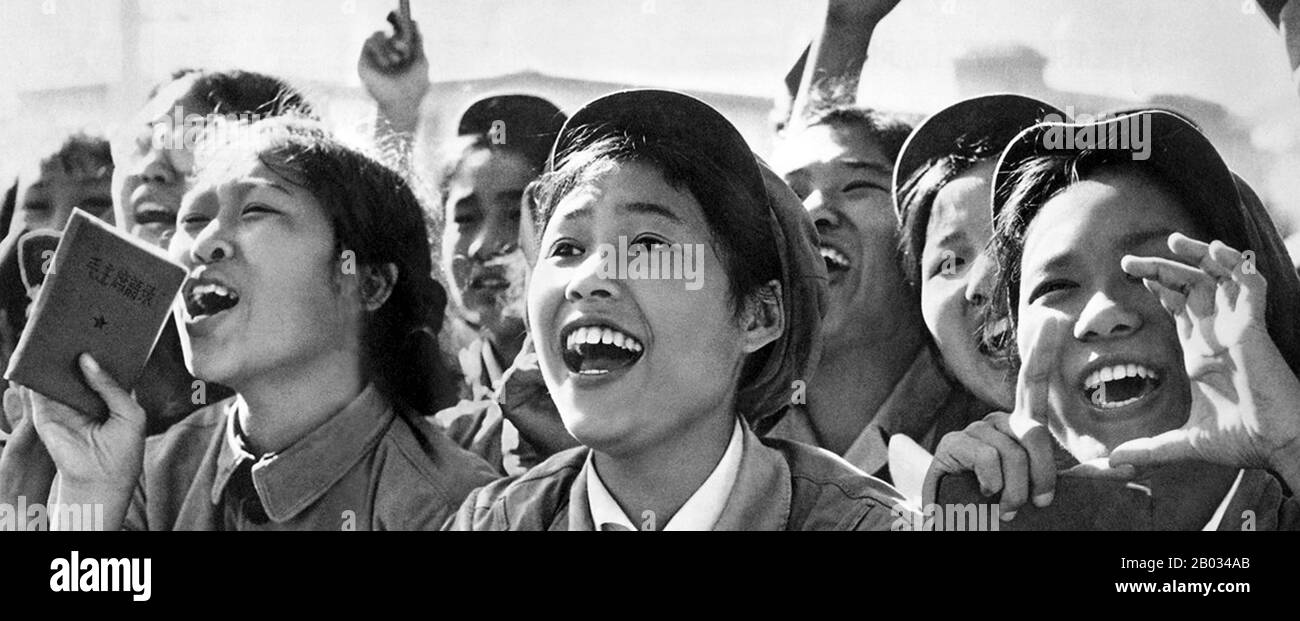 The Great Proletarian Cultural Revolution, commonly known as the Cultural Revolution, was a socio-political movement that took place in the People's Republic of China from 1966 through 1976. Set into motion by Mao Zedong, then Chairman of the Communist Party of China, its stated goal was to enforce socialism in the country by removing capitalist, traditional and cultural elements from Chinese society, and impose Maoist orthodoxy within the Party. The Cultural Revolution damaged the country on a great scale economically and socially. Millions of people were persecuted in the violent factional Stock Photohttps://www.alamy.com/image-license-details/?v=1https://www.alamy.com/the-great-proletarian-cultural-revolution-commonly-known-as-the-cultural-revolution-was-a-socio-political-movement-that-took-place-in-the-peoples-republic-of-china-from-1966-through-1976-set-into-motion-by-mao-zedong-then-chairman-of-the-communist-party-of-china-its-stated-goal-was-to-enforce-socialism-in-the-country-by-removing-capitalist-traditional-and-cultural-elements-from-chinese-society-and-impose-maoist-orthodoxy-within-the-party-the-cultural-revolution-damaged-the-country-on-a-great-scale-economically-and-socially-millions-of-people-were-persecuted-in-the-violent-factional-image344276643.html
The Great Proletarian Cultural Revolution, commonly known as the Cultural Revolution, was a socio-political movement that took place in the People's Republic of China from 1966 through 1976. Set into motion by Mao Zedong, then Chairman of the Communist Party of China, its stated goal was to enforce socialism in the country by removing capitalist, traditional and cultural elements from Chinese society, and impose Maoist orthodoxy within the Party. The Cultural Revolution damaged the country on a great scale economically and socially. Millions of people were persecuted in the violent factional Stock Photohttps://www.alamy.com/image-license-details/?v=1https://www.alamy.com/the-great-proletarian-cultural-revolution-commonly-known-as-the-cultural-revolution-was-a-socio-political-movement-that-took-place-in-the-peoples-republic-of-china-from-1966-through-1976-set-into-motion-by-mao-zedong-then-chairman-of-the-communist-party-of-china-its-stated-goal-was-to-enforce-socialism-in-the-country-by-removing-capitalist-traditional-and-cultural-elements-from-chinese-society-and-impose-maoist-orthodoxy-within-the-party-the-cultural-revolution-damaged-the-country-on-a-great-scale-economically-and-socially-millions-of-people-were-persecuted-in-the-violent-factional-image344276643.htmlRM2B034AB–The Great Proletarian Cultural Revolution, commonly known as the Cultural Revolution, was a socio-political movement that took place in the People's Republic of China from 1966 through 1976. Set into motion by Mao Zedong, then Chairman of the Communist Party of China, its stated goal was to enforce socialism in the country by removing capitalist, traditional and cultural elements from Chinese society, and impose Maoist orthodoxy within the Party. The Cultural Revolution damaged the country on a great scale economically and socially. Millions of people were persecuted in the violent factional
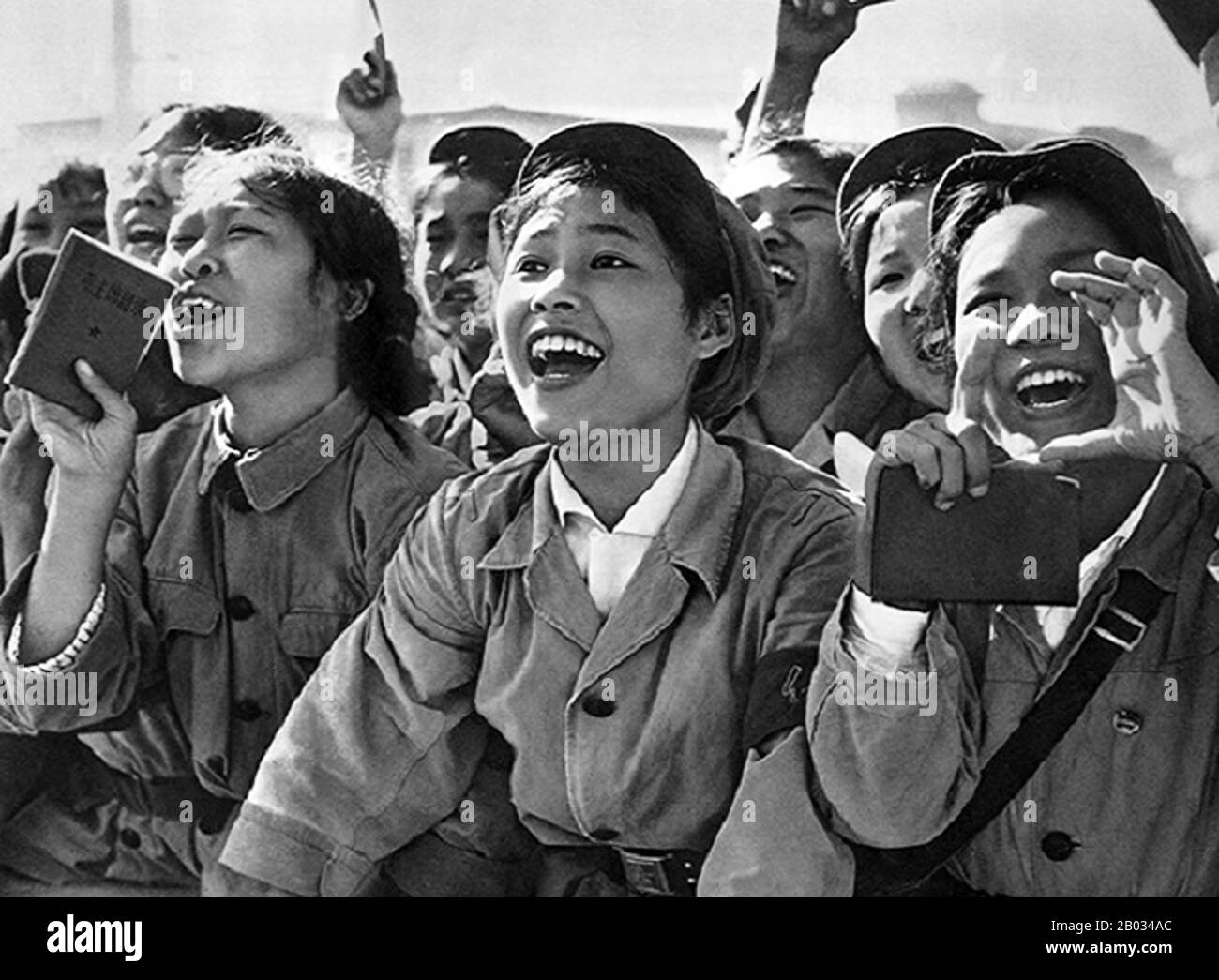 The Great Proletarian Cultural Revolution, commonly known as the Cultural Revolution, was a socio-political movement that took place in the People's Republic of China from 1966 through 1976. Set into motion by Mao Zedong, then Chairman of the Communist Party of China, its stated goal was to enforce socialism in the country by removing capitalist, traditional and cultural elements from Chinese society, and impose Maoist orthodoxy within the Party. The Cultural Revolution damaged the country on a great scale economically and socially. Millions of people were persecuted in the violent factional Stock Photohttps://www.alamy.com/image-license-details/?v=1https://www.alamy.com/the-great-proletarian-cultural-revolution-commonly-known-as-the-cultural-revolution-was-a-socio-political-movement-that-took-place-in-the-peoples-republic-of-china-from-1966-through-1976-set-into-motion-by-mao-zedong-then-chairman-of-the-communist-party-of-china-its-stated-goal-was-to-enforce-socialism-in-the-country-by-removing-capitalist-traditional-and-cultural-elements-from-chinese-society-and-impose-maoist-orthodoxy-within-the-party-the-cultural-revolution-damaged-the-country-on-a-great-scale-economically-and-socially-millions-of-people-were-persecuted-in-the-violent-factional-image344276644.html
The Great Proletarian Cultural Revolution, commonly known as the Cultural Revolution, was a socio-political movement that took place in the People's Republic of China from 1966 through 1976. Set into motion by Mao Zedong, then Chairman of the Communist Party of China, its stated goal was to enforce socialism in the country by removing capitalist, traditional and cultural elements from Chinese society, and impose Maoist orthodoxy within the Party. The Cultural Revolution damaged the country on a great scale economically and socially. Millions of people were persecuted in the violent factional Stock Photohttps://www.alamy.com/image-license-details/?v=1https://www.alamy.com/the-great-proletarian-cultural-revolution-commonly-known-as-the-cultural-revolution-was-a-socio-political-movement-that-took-place-in-the-peoples-republic-of-china-from-1966-through-1976-set-into-motion-by-mao-zedong-then-chairman-of-the-communist-party-of-china-its-stated-goal-was-to-enforce-socialism-in-the-country-by-removing-capitalist-traditional-and-cultural-elements-from-chinese-society-and-impose-maoist-orthodoxy-within-the-party-the-cultural-revolution-damaged-the-country-on-a-great-scale-economically-and-socially-millions-of-people-were-persecuted-in-the-violent-factional-image344276644.htmlRM2B034AC–The Great Proletarian Cultural Revolution, commonly known as the Cultural Revolution, was a socio-political movement that took place in the People's Republic of China from 1966 through 1976. Set into motion by Mao Zedong, then Chairman of the Communist Party of China, its stated goal was to enforce socialism in the country by removing capitalist, traditional and cultural elements from Chinese society, and impose Maoist orthodoxy within the Party. The Cultural Revolution damaged the country on a great scale economically and socially. Millions of people were persecuted in the violent factional
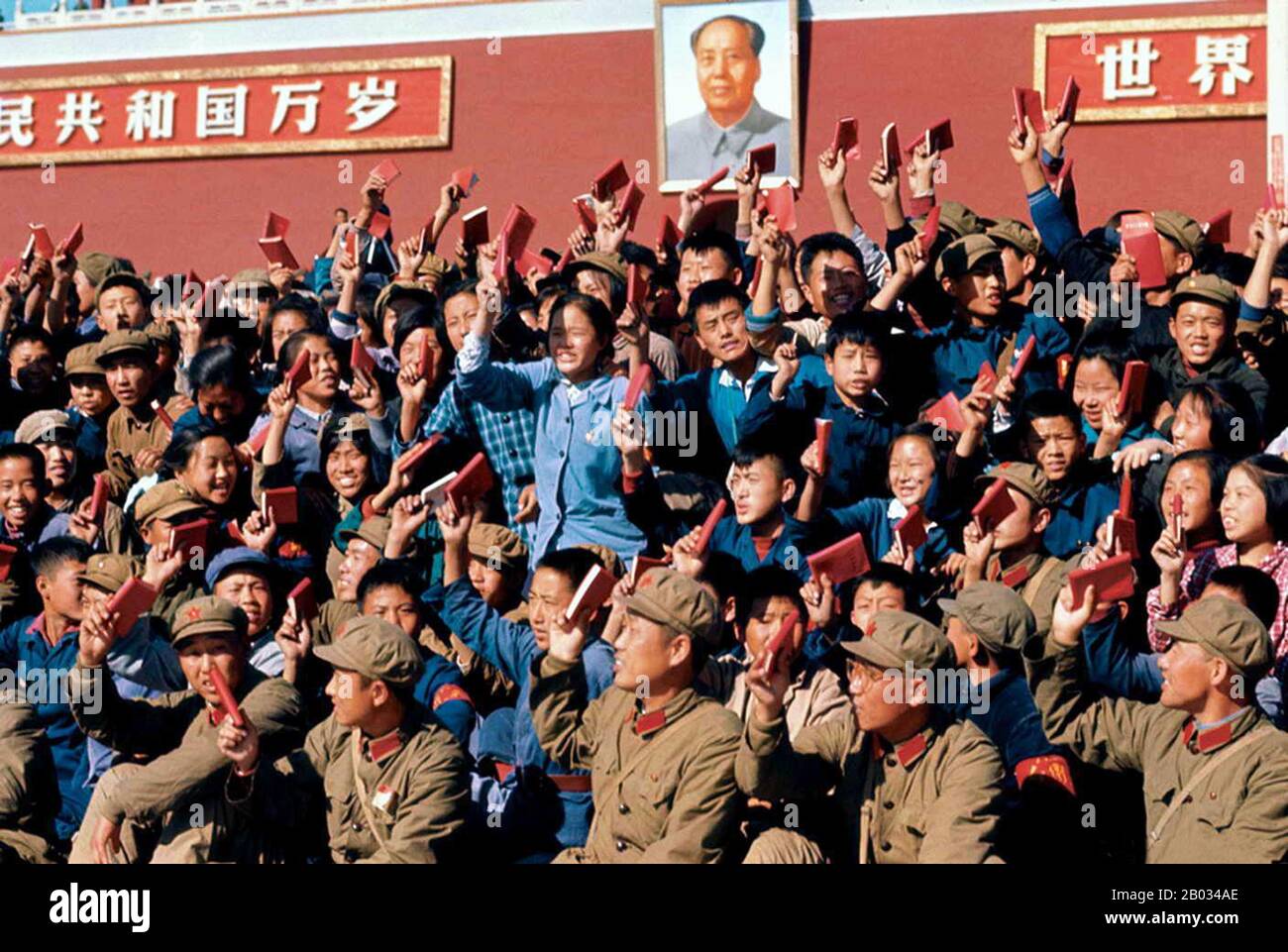 The Great Proletarian Cultural Revolution, commonly known as the Cultural Revolution, was a socio-political movement that took place in the People's Republic of China from 1966 through 1976. Set into motion by Mao Zedong, then Chairman of the Communist Party of China, its stated goal was to enforce socialism in the country by removing capitalist, traditional and cultural elements from Chinese society, and impose Maoist orthodoxy within the Party. The Cultural Revolution damaged the country on a great scale economically and socially. Millions of people were persecuted in the violent factional Stock Photohttps://www.alamy.com/image-license-details/?v=1https://www.alamy.com/the-great-proletarian-cultural-revolution-commonly-known-as-the-cultural-revolution-was-a-socio-political-movement-that-took-place-in-the-peoples-republic-of-china-from-1966-through-1976-set-into-motion-by-mao-zedong-then-chairman-of-the-communist-party-of-china-its-stated-goal-was-to-enforce-socialism-in-the-country-by-removing-capitalist-traditional-and-cultural-elements-from-chinese-society-and-impose-maoist-orthodoxy-within-the-party-the-cultural-revolution-damaged-the-country-on-a-great-scale-economically-and-socially-millions-of-people-were-persecuted-in-the-violent-factional-image344276646.html
The Great Proletarian Cultural Revolution, commonly known as the Cultural Revolution, was a socio-political movement that took place in the People's Republic of China from 1966 through 1976. Set into motion by Mao Zedong, then Chairman of the Communist Party of China, its stated goal was to enforce socialism in the country by removing capitalist, traditional and cultural elements from Chinese society, and impose Maoist orthodoxy within the Party. The Cultural Revolution damaged the country on a great scale economically and socially. Millions of people were persecuted in the violent factional Stock Photohttps://www.alamy.com/image-license-details/?v=1https://www.alamy.com/the-great-proletarian-cultural-revolution-commonly-known-as-the-cultural-revolution-was-a-socio-political-movement-that-took-place-in-the-peoples-republic-of-china-from-1966-through-1976-set-into-motion-by-mao-zedong-then-chairman-of-the-communist-party-of-china-its-stated-goal-was-to-enforce-socialism-in-the-country-by-removing-capitalist-traditional-and-cultural-elements-from-chinese-society-and-impose-maoist-orthodoxy-within-the-party-the-cultural-revolution-damaged-the-country-on-a-great-scale-economically-and-socially-millions-of-people-were-persecuted-in-the-violent-factional-image344276646.htmlRM2B034AE–The Great Proletarian Cultural Revolution, commonly known as the Cultural Revolution, was a socio-political movement that took place in the People's Republic of China from 1966 through 1976. Set into motion by Mao Zedong, then Chairman of the Communist Party of China, its stated goal was to enforce socialism in the country by removing capitalist, traditional and cultural elements from Chinese society, and impose Maoist orthodoxy within the Party. The Cultural Revolution damaged the country on a great scale economically and socially. Millions of people were persecuted in the violent factional
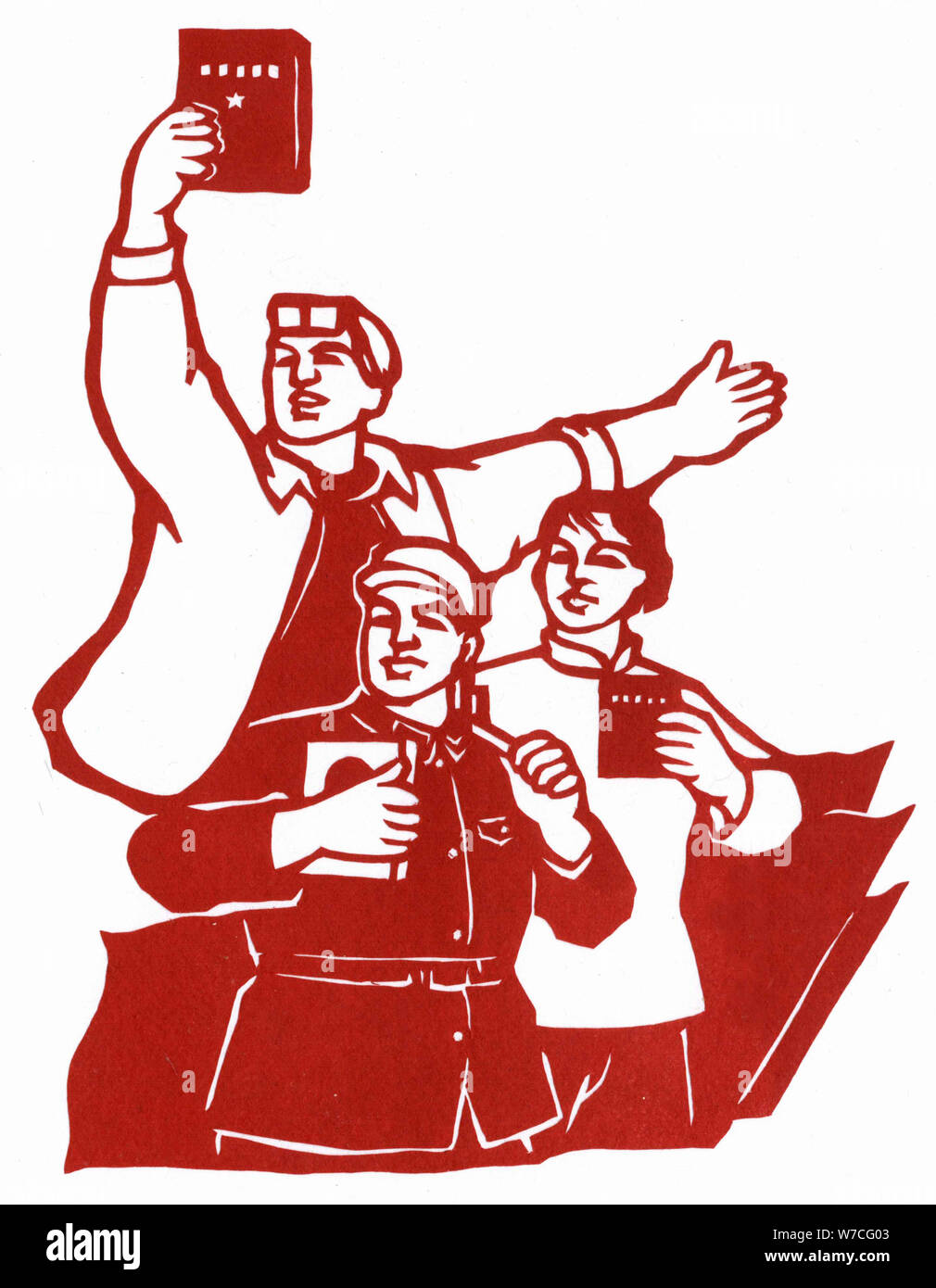 Worker, peasant, and soldier with Quotations from Chairman Mao Tse-tung, ca 1968. Stock Photohttps://www.alamy.com/image-license-details/?v=1https://www.alamy.com/worker-peasant-and-soldier-with-quotations-from-chairman-mao-tse-tung-ca-1968-image262734083.html
Worker, peasant, and soldier with Quotations from Chairman Mao Tse-tung, ca 1968. Stock Photohttps://www.alamy.com/image-license-details/?v=1https://www.alamy.com/worker-peasant-and-soldier-with-quotations-from-chairman-mao-tse-tung-ca-1968-image262734083.htmlRMW7CG03–Worker, peasant, and soldier with Quotations from Chairman Mao Tse-tung, ca 1968.
 Study Mao Zedong Thought, Be the Successors of Communism. Museum: PRIVATE COLLECTION. Stock Photohttps://www.alamy.com/image-license-details/?v=1https://www.alamy.com/study-mao-zedong-thought-be-the-successors-of-communism-museum-private-collection-image211769746.html
Study Mao Zedong Thought, Be the Successors of Communism. Museum: PRIVATE COLLECTION. Stock Photohttps://www.alamy.com/image-license-details/?v=1https://www.alamy.com/study-mao-zedong-thought-be-the-successors-of-communism-museum-private-collection-image211769746.htmlRMP8EXD6–Study Mao Zedong Thought, Be the Successors of Communism. Museum: PRIVATE COLLECTION.
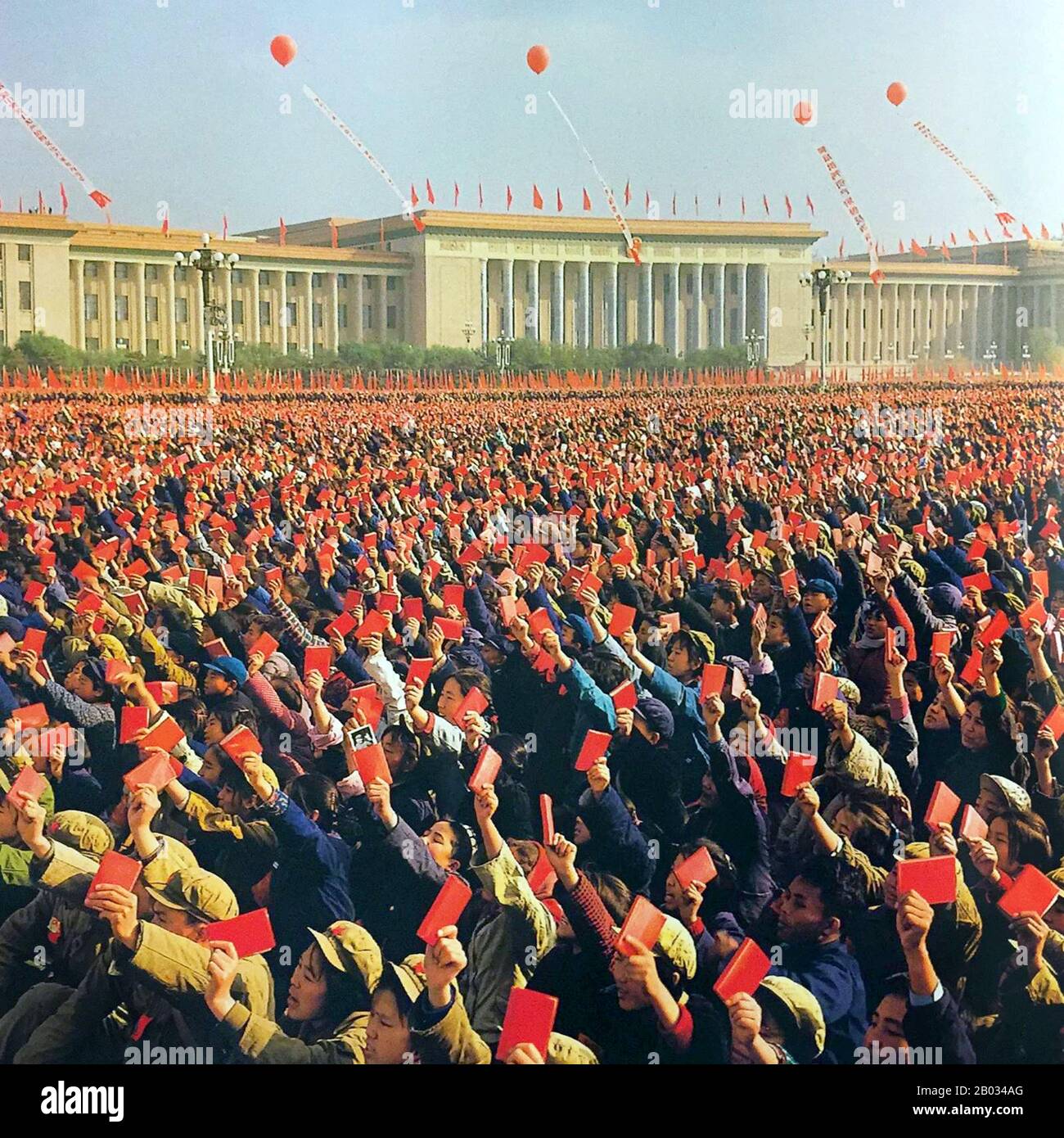 The Great Proletarian Cultural Revolution, commonly known as the Cultural Revolution, was a socio-political movement that took place in the People's Republic of China from 1966 through 1976. Set into motion by Mao Zedong, then Chairman of the Communist Party of China, its stated goal was to enforce socialism in the country by removing capitalist, traditional and cultural elements from Chinese society, and impose Maoist orthodoxy within the Party. The Cultural Revolution damaged the country on a great scale economically and socially. Millions of people were persecuted in the violent factional Stock Photohttps://www.alamy.com/image-license-details/?v=1https://www.alamy.com/the-great-proletarian-cultural-revolution-commonly-known-as-the-cultural-revolution-was-a-socio-political-movement-that-took-place-in-the-peoples-republic-of-china-from-1966-through-1976-set-into-motion-by-mao-zedong-then-chairman-of-the-communist-party-of-china-its-stated-goal-was-to-enforce-socialism-in-the-country-by-removing-capitalist-traditional-and-cultural-elements-from-chinese-society-and-impose-maoist-orthodoxy-within-the-party-the-cultural-revolution-damaged-the-country-on-a-great-scale-economically-and-socially-millions-of-people-were-persecuted-in-the-violent-factional-image344276648.html
The Great Proletarian Cultural Revolution, commonly known as the Cultural Revolution, was a socio-political movement that took place in the People's Republic of China from 1966 through 1976. Set into motion by Mao Zedong, then Chairman of the Communist Party of China, its stated goal was to enforce socialism in the country by removing capitalist, traditional and cultural elements from Chinese society, and impose Maoist orthodoxy within the Party. The Cultural Revolution damaged the country on a great scale economically and socially. Millions of people were persecuted in the violent factional Stock Photohttps://www.alamy.com/image-license-details/?v=1https://www.alamy.com/the-great-proletarian-cultural-revolution-commonly-known-as-the-cultural-revolution-was-a-socio-political-movement-that-took-place-in-the-peoples-republic-of-china-from-1966-through-1976-set-into-motion-by-mao-zedong-then-chairman-of-the-communist-party-of-china-its-stated-goal-was-to-enforce-socialism-in-the-country-by-removing-capitalist-traditional-and-cultural-elements-from-chinese-society-and-impose-maoist-orthodoxy-within-the-party-the-cultural-revolution-damaged-the-country-on-a-great-scale-economically-and-socially-millions-of-people-were-persecuted-in-the-violent-factional-image344276648.htmlRM2B034AG–The Great Proletarian Cultural Revolution, commonly known as the Cultural Revolution, was a socio-political movement that took place in the People's Republic of China from 1966 through 1976. Set into motion by Mao Zedong, then Chairman of the Communist Party of China, its stated goal was to enforce socialism in the country by removing capitalist, traditional and cultural elements from Chinese society, and impose Maoist orthodoxy within the Party. The Cultural Revolution damaged the country on a great scale economically and socially. Millions of people were persecuted in the violent factional
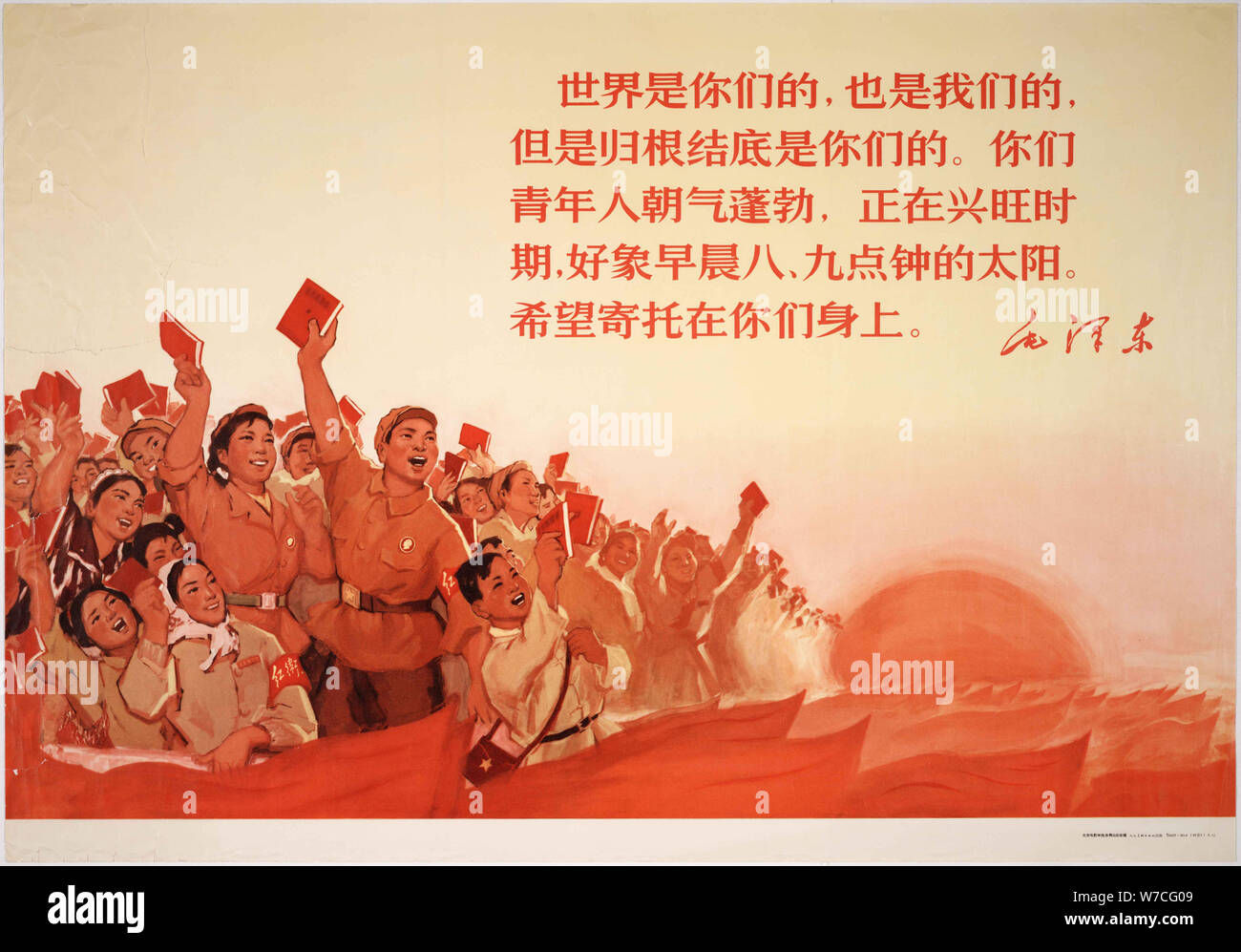 Mao Zedong: The world is yours, as well as ours, 1967. Stock Photohttps://www.alamy.com/image-license-details/?v=1https://www.alamy.com/mao-zedong-the-world-is-yours-as-well-as-ours-1967-image262734089.html
Mao Zedong: The world is yours, as well as ours, 1967. Stock Photohttps://www.alamy.com/image-license-details/?v=1https://www.alamy.com/mao-zedong-the-world-is-yours-as-well-as-ours-1967-image262734089.htmlRMW7CG09–Mao Zedong: The world is yours, as well as ours, 1967.
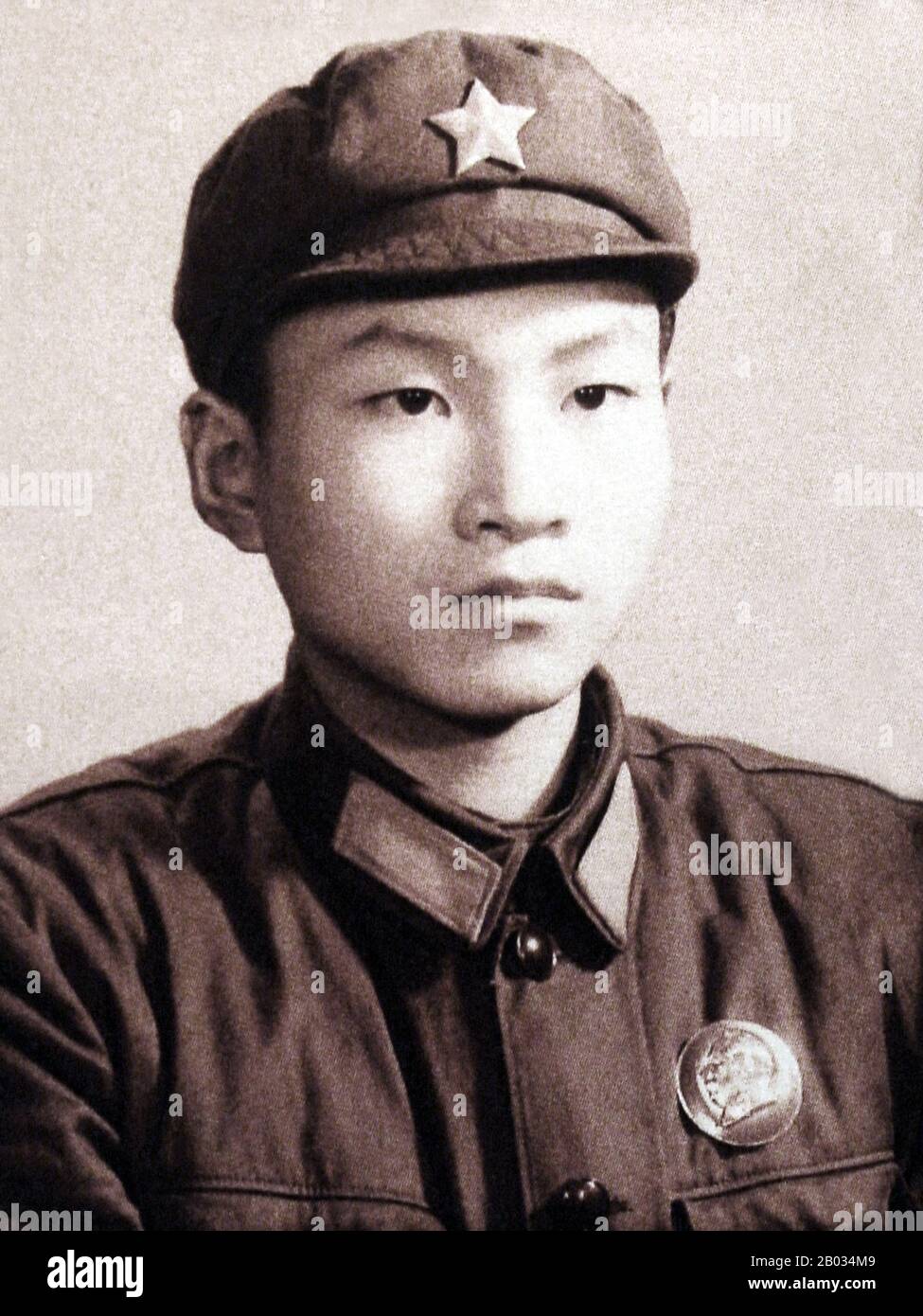 The Great Proletarian Cultural Revolution, commonly known as the Cultural Revolution, was a socio-political movement that took place in the People's Republic of China from 1966 through 1976. Set into motion by Mao Zedong, then Chairman of the Communist Party of China, its stated goal was to enforce socialism in the country by removing capitalist, traditional and cultural elements from Chinese society, and impose Maoist orthodoxy within the Party. The Cultural Revolution damaged the country on a great scale economically and socially. Millions of people were persecuted in the violent factional Stock Photohttps://www.alamy.com/image-license-details/?v=1https://www.alamy.com/the-great-proletarian-cultural-revolution-commonly-known-as-the-cultural-revolution-was-a-socio-political-movement-that-took-place-in-the-peoples-republic-of-china-from-1966-through-1976-set-into-motion-by-mao-zedong-then-chairman-of-the-communist-party-of-china-its-stated-goal-was-to-enforce-socialism-in-the-country-by-removing-capitalist-traditional-and-cultural-elements-from-chinese-society-and-impose-maoist-orthodoxy-within-the-party-the-cultural-revolution-damaged-the-country-on-a-great-scale-economically-and-socially-millions-of-people-were-persecuted-in-the-violent-factional-image344276921.html
The Great Proletarian Cultural Revolution, commonly known as the Cultural Revolution, was a socio-political movement that took place in the People's Republic of China from 1966 through 1976. Set into motion by Mao Zedong, then Chairman of the Communist Party of China, its stated goal was to enforce socialism in the country by removing capitalist, traditional and cultural elements from Chinese society, and impose Maoist orthodoxy within the Party. The Cultural Revolution damaged the country on a great scale economically and socially. Millions of people were persecuted in the violent factional Stock Photohttps://www.alamy.com/image-license-details/?v=1https://www.alamy.com/the-great-proletarian-cultural-revolution-commonly-known-as-the-cultural-revolution-was-a-socio-political-movement-that-took-place-in-the-peoples-republic-of-china-from-1966-through-1976-set-into-motion-by-mao-zedong-then-chairman-of-the-communist-party-of-china-its-stated-goal-was-to-enforce-socialism-in-the-country-by-removing-capitalist-traditional-and-cultural-elements-from-chinese-society-and-impose-maoist-orthodoxy-within-the-party-the-cultural-revolution-damaged-the-country-on-a-great-scale-economically-and-socially-millions-of-people-were-persecuted-in-the-violent-factional-image344276921.htmlRM2B034M9–The Great Proletarian Cultural Revolution, commonly known as the Cultural Revolution, was a socio-political movement that took place in the People's Republic of China from 1966 through 1976. Set into motion by Mao Zedong, then Chairman of the Communist Party of China, its stated goal was to enforce socialism in the country by removing capitalist, traditional and cultural elements from Chinese society, and impose Maoist orthodoxy within the Party. The Cultural Revolution damaged the country on a great scale economically and socially. Millions of people were persecuted in the violent factional
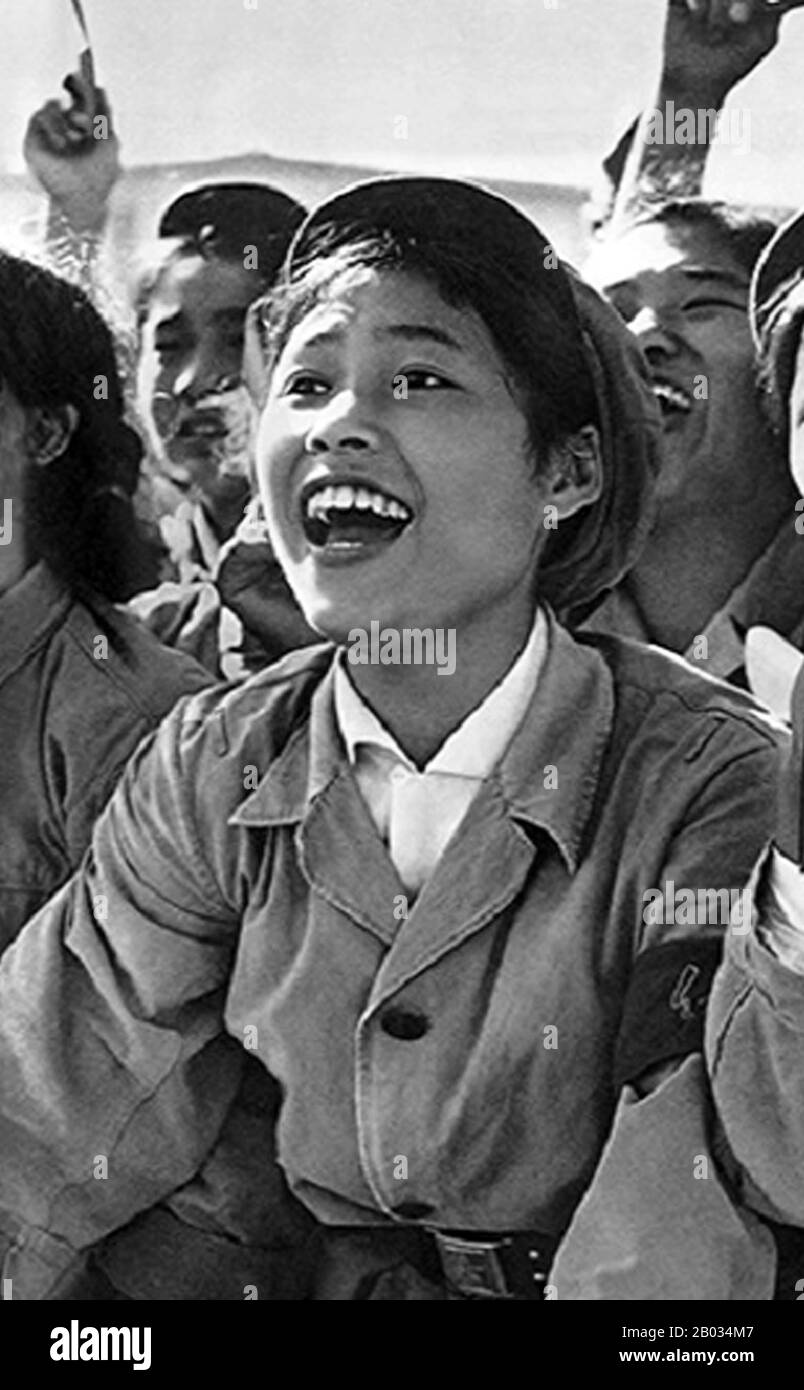 The Great Proletarian Cultural Revolution, commonly known as the Cultural Revolution, was a socio-political movement that took place in the People's Republic of China from 1966 through 1976. Set into motion by Mao Zedong, then Chairman of the Communist Party of China, its stated goal was to enforce socialism in the country by removing capitalist, traditional and cultural elements from Chinese society, and impose Maoist orthodoxy within the Party. The Cultural Revolution damaged the country on a great scale economically and socially. Millions of people were persecuted in the violent factional Stock Photohttps://www.alamy.com/image-license-details/?v=1https://www.alamy.com/the-great-proletarian-cultural-revolution-commonly-known-as-the-cultural-revolution-was-a-socio-political-movement-that-took-place-in-the-peoples-republic-of-china-from-1966-through-1976-set-into-motion-by-mao-zedong-then-chairman-of-the-communist-party-of-china-its-stated-goal-was-to-enforce-socialism-in-the-country-by-removing-capitalist-traditional-and-cultural-elements-from-chinese-society-and-impose-maoist-orthodoxy-within-the-party-the-cultural-revolution-damaged-the-country-on-a-great-scale-economically-and-socially-millions-of-people-were-persecuted-in-the-violent-factional-image344276919.html
The Great Proletarian Cultural Revolution, commonly known as the Cultural Revolution, was a socio-political movement that took place in the People's Republic of China from 1966 through 1976. Set into motion by Mao Zedong, then Chairman of the Communist Party of China, its stated goal was to enforce socialism in the country by removing capitalist, traditional and cultural elements from Chinese society, and impose Maoist orthodoxy within the Party. The Cultural Revolution damaged the country on a great scale economically and socially. Millions of people were persecuted in the violent factional Stock Photohttps://www.alamy.com/image-license-details/?v=1https://www.alamy.com/the-great-proletarian-cultural-revolution-commonly-known-as-the-cultural-revolution-was-a-socio-political-movement-that-took-place-in-the-peoples-republic-of-china-from-1966-through-1976-set-into-motion-by-mao-zedong-then-chairman-of-the-communist-party-of-china-its-stated-goal-was-to-enforce-socialism-in-the-country-by-removing-capitalist-traditional-and-cultural-elements-from-chinese-society-and-impose-maoist-orthodoxy-within-the-party-the-cultural-revolution-damaged-the-country-on-a-great-scale-economically-and-socially-millions-of-people-were-persecuted-in-the-violent-factional-image344276919.htmlRM2B034M7–The Great Proletarian Cultural Revolution, commonly known as the Cultural Revolution, was a socio-political movement that took place in the People's Republic of China from 1966 through 1976. Set into motion by Mao Zedong, then Chairman of the Communist Party of China, its stated goal was to enforce socialism in the country by removing capitalist, traditional and cultural elements from Chinese society, and impose Maoist orthodoxy within the Party. The Cultural Revolution damaged the country on a great scale economically and socially. Millions of people were persecuted in the violent factional
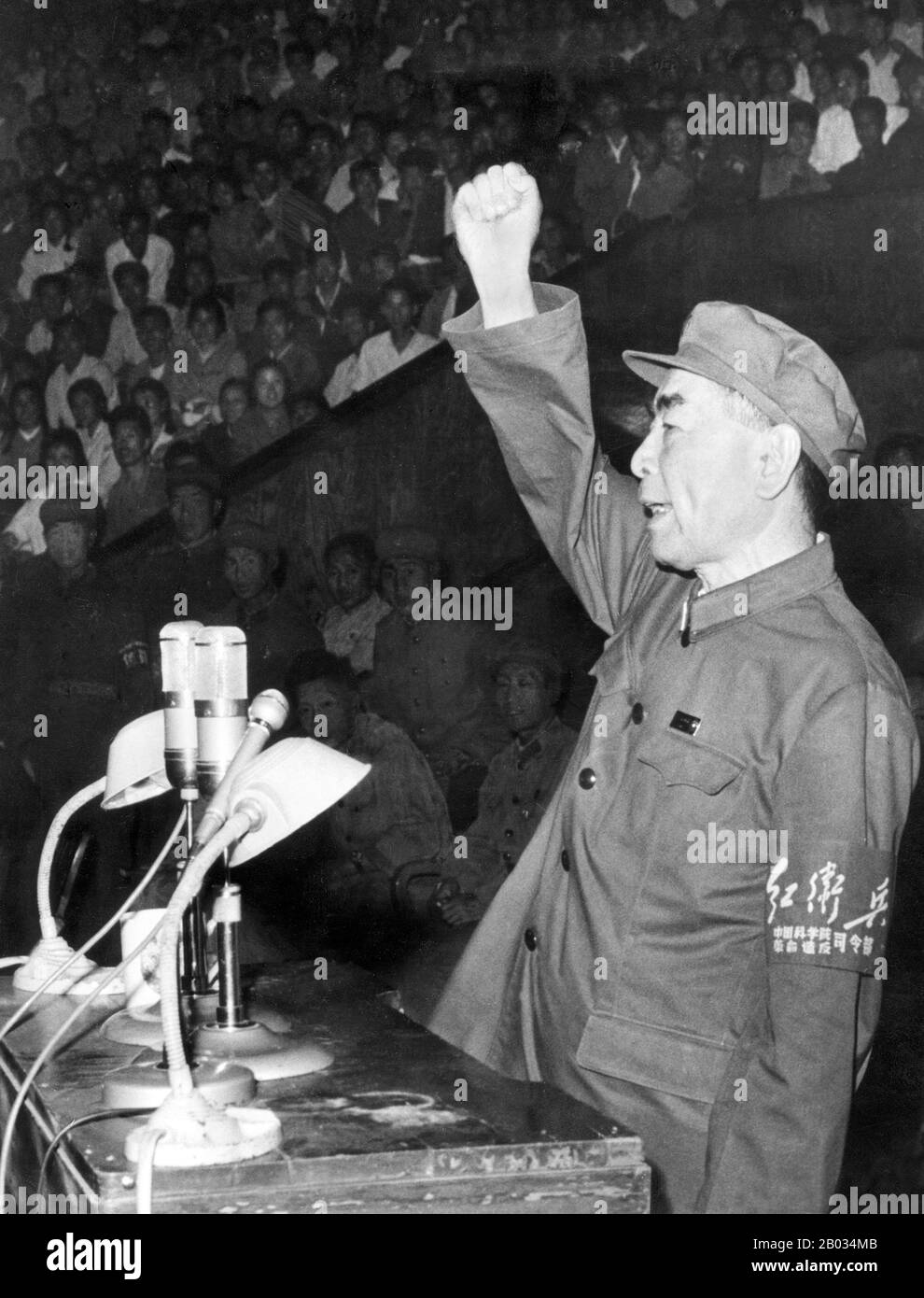 The Great Proletarian Cultural Revolution, commonly known as the Cultural Revolution, was a socio-political movement that took place in the People's Republic of China from 1966 through 1976. Set into motion by Mao Zedong, then Chairman of the Communist Party of China, its stated goal was to enforce socialism in the country by removing capitalist, traditional and cultural elements from Chinese society, and impose Maoist orthodoxy within the Party. The Cultural Revolution damaged the country on a great scale economically and socially. Millions of people were persecuted in the violent factional Stock Photohttps://www.alamy.com/image-license-details/?v=1https://www.alamy.com/the-great-proletarian-cultural-revolution-commonly-known-as-the-cultural-revolution-was-a-socio-political-movement-that-took-place-in-the-peoples-republic-of-china-from-1966-through-1976-set-into-motion-by-mao-zedong-then-chairman-of-the-communist-party-of-china-its-stated-goal-was-to-enforce-socialism-in-the-country-by-removing-capitalist-traditional-and-cultural-elements-from-chinese-society-and-impose-maoist-orthodoxy-within-the-party-the-cultural-revolution-damaged-the-country-on-a-great-scale-economically-and-socially-millions-of-people-were-persecuted-in-the-violent-factional-image344276923.html
The Great Proletarian Cultural Revolution, commonly known as the Cultural Revolution, was a socio-political movement that took place in the People's Republic of China from 1966 through 1976. Set into motion by Mao Zedong, then Chairman of the Communist Party of China, its stated goal was to enforce socialism in the country by removing capitalist, traditional and cultural elements from Chinese society, and impose Maoist orthodoxy within the Party. The Cultural Revolution damaged the country on a great scale economically and socially. Millions of people were persecuted in the violent factional Stock Photohttps://www.alamy.com/image-license-details/?v=1https://www.alamy.com/the-great-proletarian-cultural-revolution-commonly-known-as-the-cultural-revolution-was-a-socio-political-movement-that-took-place-in-the-peoples-republic-of-china-from-1966-through-1976-set-into-motion-by-mao-zedong-then-chairman-of-the-communist-party-of-china-its-stated-goal-was-to-enforce-socialism-in-the-country-by-removing-capitalist-traditional-and-cultural-elements-from-chinese-society-and-impose-maoist-orthodoxy-within-the-party-the-cultural-revolution-damaged-the-country-on-a-great-scale-economically-and-socially-millions-of-people-were-persecuted-in-the-violent-factional-image344276923.htmlRM2B034MB–The Great Proletarian Cultural Revolution, commonly known as the Cultural Revolution, was a socio-political movement that took place in the People's Republic of China from 1966 through 1976. Set into motion by Mao Zedong, then Chairman of the Communist Party of China, its stated goal was to enforce socialism in the country by removing capitalist, traditional and cultural elements from Chinese society, and impose Maoist orthodoxy within the Party. The Cultural Revolution damaged the country on a great scale economically and socially. Millions of people were persecuted in the violent factional
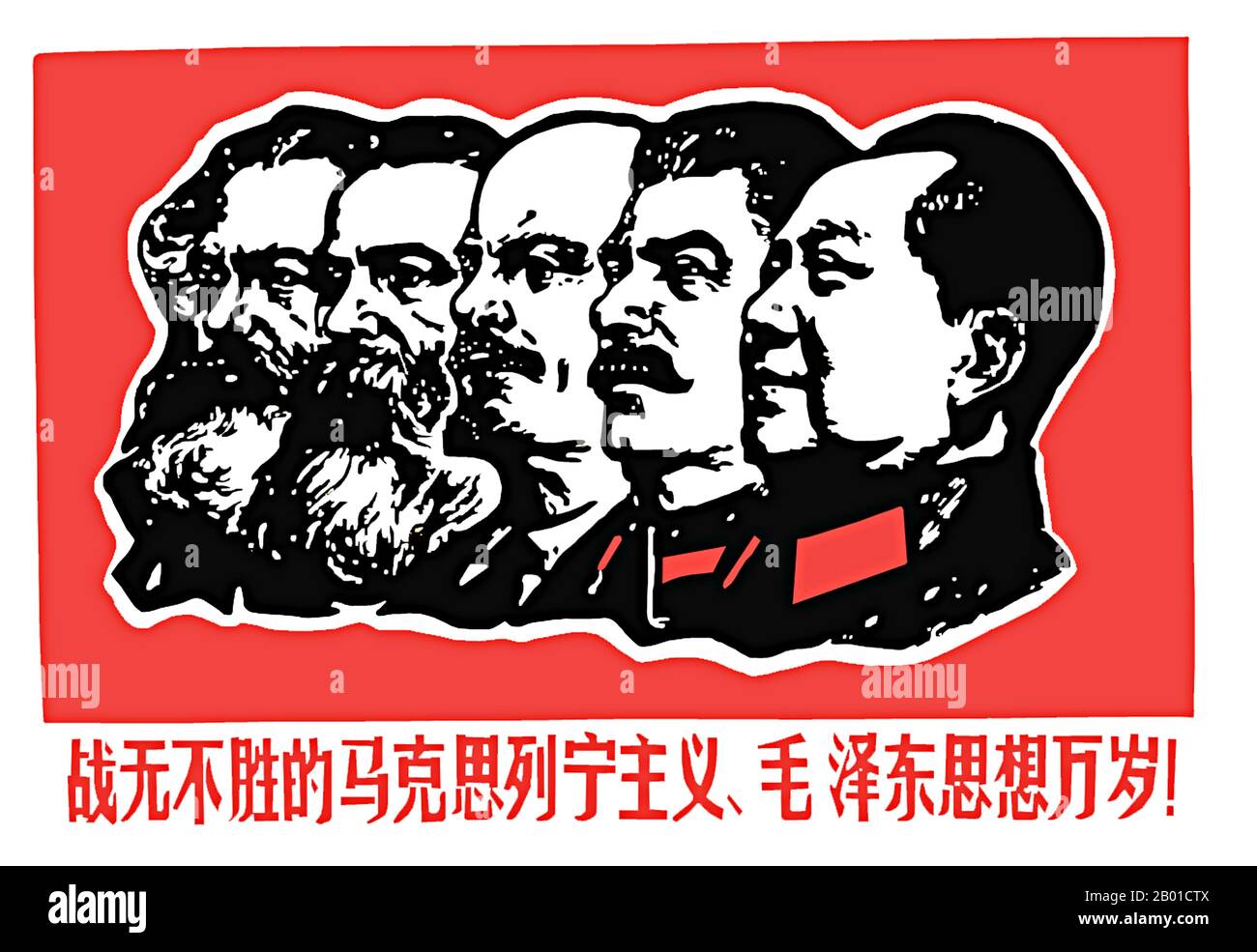 China: Revolutionary Poster 'Long Live the Invincible Marxism, Leninism and Mao Zedong Thought!', 1967. A revolutionary poster from communist China near the start of the Cultural Revolution (1966-1976) featuring (left to right): Karl Marx, Friedrich Engels, Vladimir Ilych Lenin, Joseph Stalin and Mao Zedong. 'Mao Zedong Thought', generally shortened to 'Maoism', played a central part in the politics of the 'Great Proletarian Cultural Revolution' and is most famously reflected in the 'Little Red Book'. Stock Photohttps://www.alamy.com/image-license-details/?v=1https://www.alamy.com/china-revolutionary-poster-long-live-the-invincible-marxism-leninism-and-mao-zedong-thought!-1967-a-revolutionary-poster-from-communist-china-near-the-start-of-the-cultural-revolution-1966-1976-featuring-left-to-right-karl-marx-friedrich-engels-vladimir-ilych-lenin-joseph-stalin-and-mao-zedong-mao-zedong-thought-generally-shortened-to-maoism-played-a-central-part-in-the-politics-of-the-great-proletarian-cultural-revolution-and-is-most-famously-reflected-in-the-little-red-book-image344239418.html
China: Revolutionary Poster 'Long Live the Invincible Marxism, Leninism and Mao Zedong Thought!', 1967. A revolutionary poster from communist China near the start of the Cultural Revolution (1966-1976) featuring (left to right): Karl Marx, Friedrich Engels, Vladimir Ilych Lenin, Joseph Stalin and Mao Zedong. 'Mao Zedong Thought', generally shortened to 'Maoism', played a central part in the politics of the 'Great Proletarian Cultural Revolution' and is most famously reflected in the 'Little Red Book'. Stock Photohttps://www.alamy.com/image-license-details/?v=1https://www.alamy.com/china-revolutionary-poster-long-live-the-invincible-marxism-leninism-and-mao-zedong-thought!-1967-a-revolutionary-poster-from-communist-china-near-the-start-of-the-cultural-revolution-1966-1976-featuring-left-to-right-karl-marx-friedrich-engels-vladimir-ilych-lenin-joseph-stalin-and-mao-zedong-mao-zedong-thought-generally-shortened-to-maoism-played-a-central-part-in-the-politics-of-the-great-proletarian-cultural-revolution-and-is-most-famously-reflected-in-the-little-red-book-image344239418.htmlRM2B01CTX–China: Revolutionary Poster 'Long Live the Invincible Marxism, Leninism and Mao Zedong Thought!', 1967. A revolutionary poster from communist China near the start of the Cultural Revolution (1966-1976) featuring (left to right): Karl Marx, Friedrich Engels, Vladimir Ilych Lenin, Joseph Stalin and Mao Zedong. 'Mao Zedong Thought', generally shortened to 'Maoism', played a central part in the politics of the 'Great Proletarian Cultural Revolution' and is most famously reflected in the 'Little Red Book'.
 Children's Theatre, 1948. From Selected Works of New Year's Prints. Museum: PRIVATE COLLECTION. Stock Photohttps://www.alamy.com/image-license-details/?v=1https://www.alamy.com/childrens-theatre-1948-from-selected-works-of-new-years-prints-museum-private-collection-image211769748.html
Children's Theatre, 1948. From Selected Works of New Year's Prints. Museum: PRIVATE COLLECTION. Stock Photohttps://www.alamy.com/image-license-details/?v=1https://www.alamy.com/childrens-theatre-1948-from-selected-works-of-new-years-prints-museum-private-collection-image211769748.htmlRMP8EXD8–Children's Theatre, 1948. From Selected Works of New Year's Prints. Museum: PRIVATE COLLECTION.
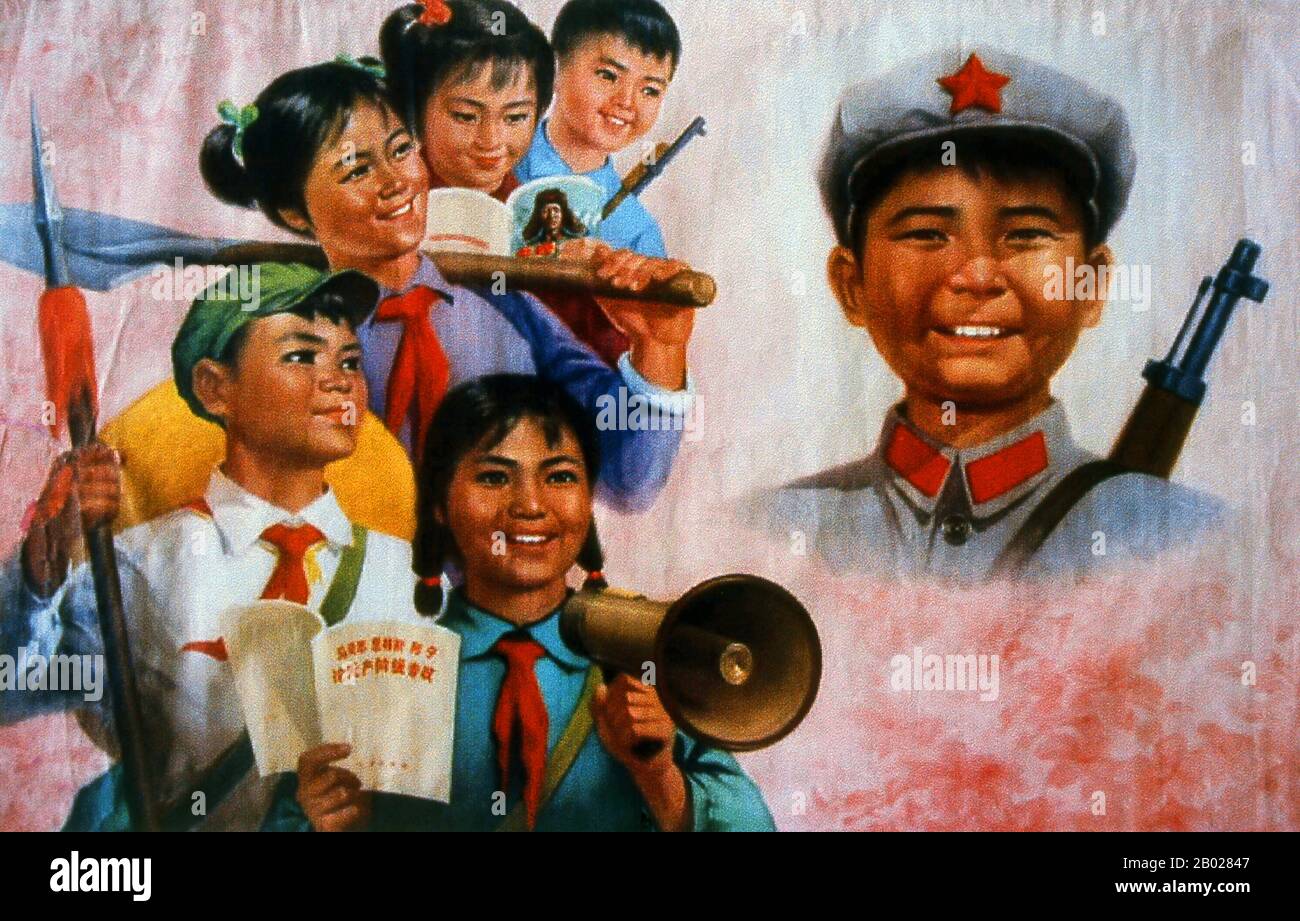 Pan Dongzi was a character in a novel entitled 'Sparkling Red Star', written by Li Xintian. The novel was made into a film in 1974 during the Chinese Cultural Revolution. Pan Dongzi was the son of a Communist army officer. When the father is called off, he leaves Dongzi a red star as a symbol of the cause. While he is away, a bourgeois landlord, Hu Hansan, returns to Dongzi's village where he exacts revenge upon the peasants who had forced him out. In the process, Dongzi's mother is burned to death in their home. Hardened by his mother's death, Dongzi joins a band of guerrilla fighters and e Stock Photohttps://www.alamy.com/image-license-details/?v=1https://www.alamy.com/pan-dongzi-was-a-character-in-a-novel-entitled-sparkling-red-star-written-by-li-xintian-the-novel-was-made-into-a-film-in-1974-during-the-chinese-cultural-revolution-pan-dongzi-was-the-son-of-a-communist-army-officer-when-the-father-is-called-off-he-leaves-dongzi-a-red-star-as-a-symbol-of-the-cause-while-he-is-away-a-bourgeois-landlord-hu-hansan-returns-to-dongzis-village-where-he-exacts-revenge-upon-the-peasants-who-had-forced-him-out-in-the-process-dongzis-mother-is-burned-to-death-in-their-home-hardened-by-his-mothers-death-dongzi-joins-a-band-of-guerrilla-fighters-and-e-image344257655.html
Pan Dongzi was a character in a novel entitled 'Sparkling Red Star', written by Li Xintian. The novel was made into a film in 1974 during the Chinese Cultural Revolution. Pan Dongzi was the son of a Communist army officer. When the father is called off, he leaves Dongzi a red star as a symbol of the cause. While he is away, a bourgeois landlord, Hu Hansan, returns to Dongzi's village where he exacts revenge upon the peasants who had forced him out. In the process, Dongzi's mother is burned to death in their home. Hardened by his mother's death, Dongzi joins a band of guerrilla fighters and e Stock Photohttps://www.alamy.com/image-license-details/?v=1https://www.alamy.com/pan-dongzi-was-a-character-in-a-novel-entitled-sparkling-red-star-written-by-li-xintian-the-novel-was-made-into-a-film-in-1974-during-the-chinese-cultural-revolution-pan-dongzi-was-the-son-of-a-communist-army-officer-when-the-father-is-called-off-he-leaves-dongzi-a-red-star-as-a-symbol-of-the-cause-while-he-is-away-a-bourgeois-landlord-hu-hansan-returns-to-dongzis-village-where-he-exacts-revenge-upon-the-peasants-who-had-forced-him-out-in-the-process-dongzis-mother-is-burned-to-death-in-their-home-hardened-by-his-mothers-death-dongzi-joins-a-band-of-guerrilla-fighters-and-e-image344257655.htmlRM2B02847–Pan Dongzi was a character in a novel entitled 'Sparkling Red Star', written by Li Xintian. The novel was made into a film in 1974 during the Chinese Cultural Revolution. Pan Dongzi was the son of a Communist army officer. When the father is called off, he leaves Dongzi a red star as a symbol of the cause. While he is away, a bourgeois landlord, Hu Hansan, returns to Dongzi's village where he exacts revenge upon the peasants who had forced him out. In the process, Dongzi's mother is burned to death in their home. Hardened by his mother's death, Dongzi joins a band of guerrilla fighters and e
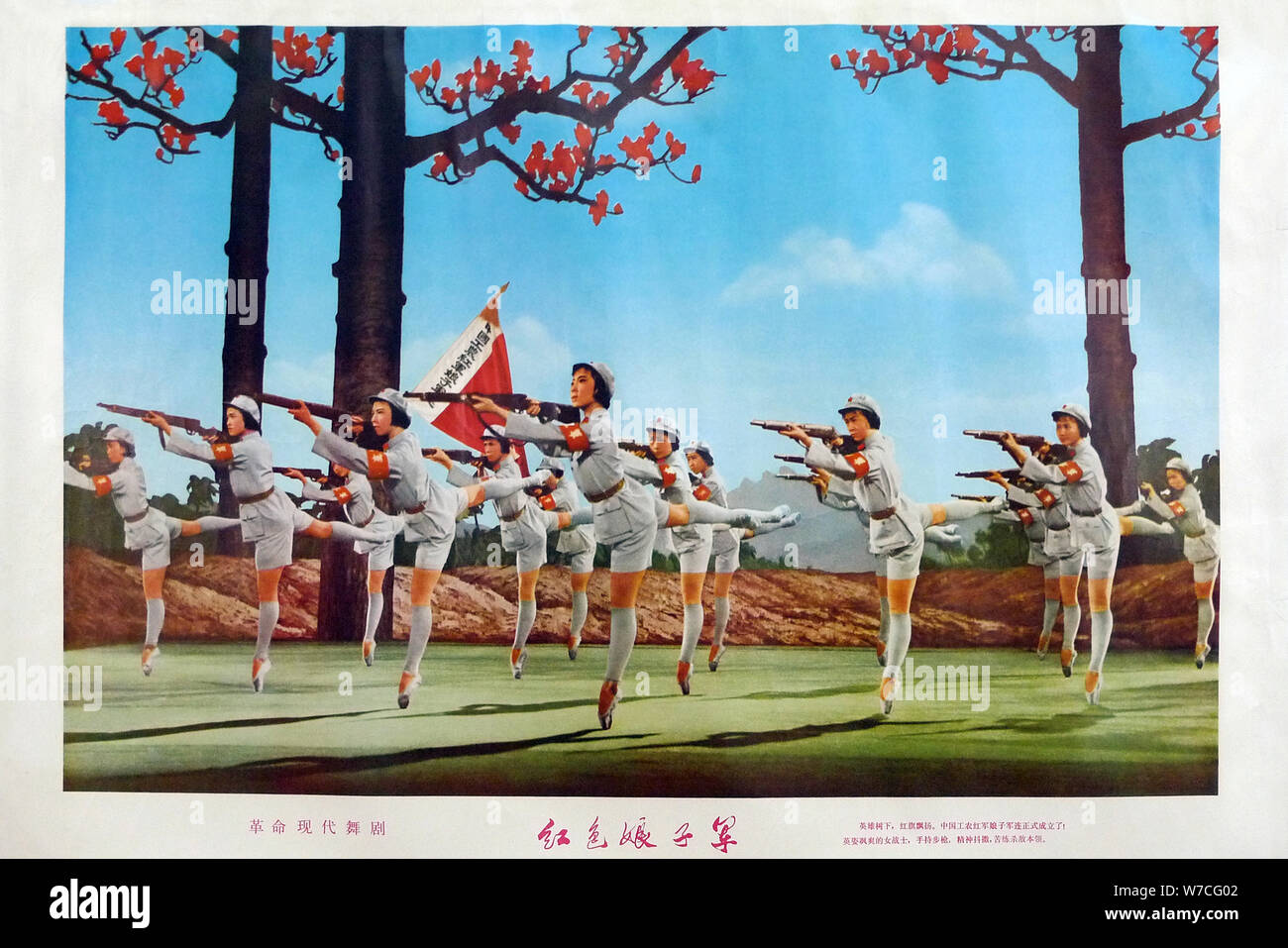 The Red Detachment of Women (Modern Revolutionary Ballet), 1972. Stock Photohttps://www.alamy.com/image-license-details/?v=1https://www.alamy.com/the-red-detachment-of-women-modern-revolutionary-ballet-1972-image262734082.html
The Red Detachment of Women (Modern Revolutionary Ballet), 1972. Stock Photohttps://www.alamy.com/image-license-details/?v=1https://www.alamy.com/the-red-detachment-of-women-modern-revolutionary-ballet-1972-image262734082.htmlRMW7CG02–The Red Detachment of Women (Modern Revolutionary Ballet), 1972.
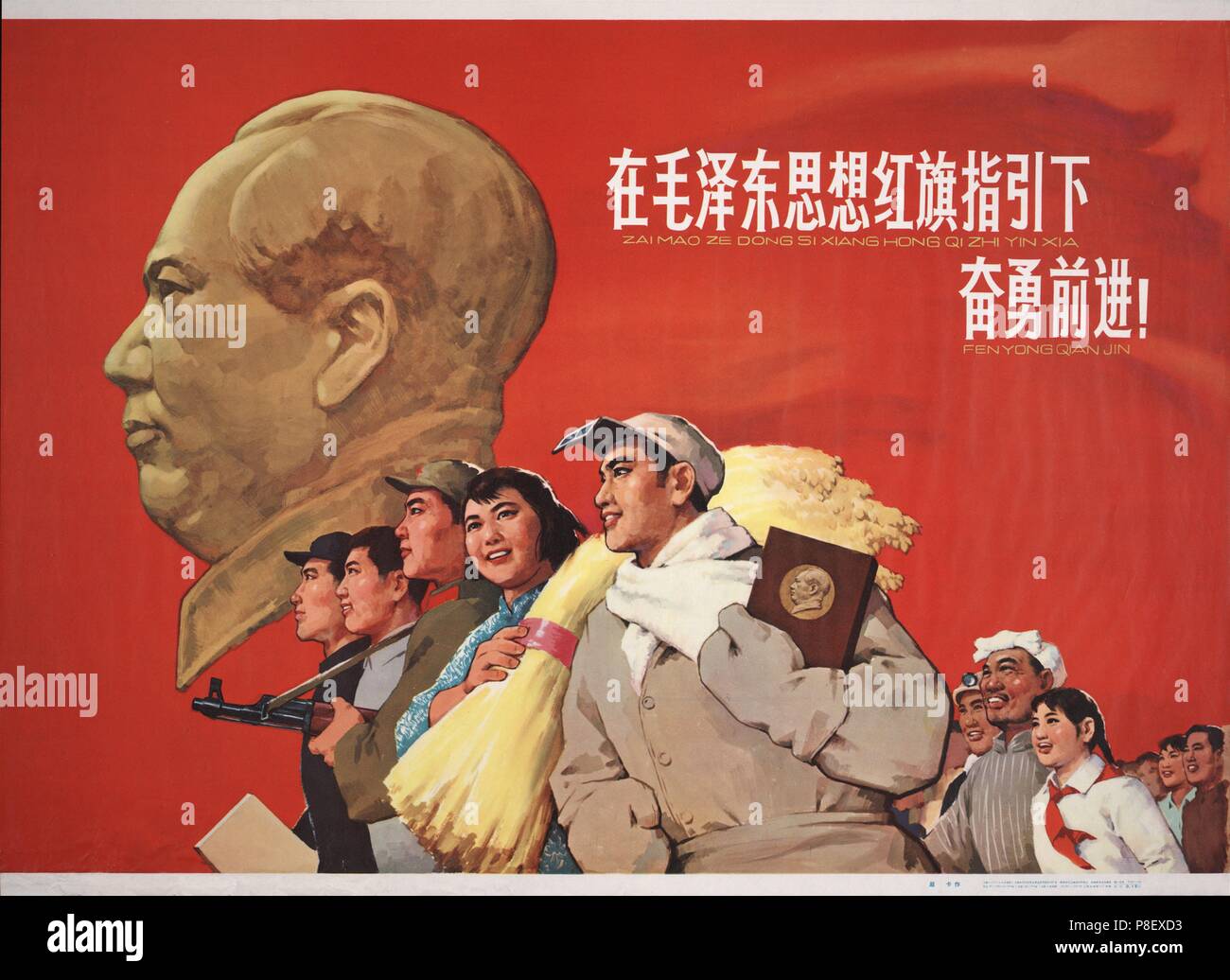 Advance Courageously Under the Guidance of the Red Flag of Mao Zedong Thought. Museum: PRIVATE COLLECTION. Stock Photohttps://www.alamy.com/image-license-details/?v=1https://www.alamy.com/advance-courageously-under-the-guidance-of-the-red-flag-of-mao-zedong-thought-museum-private-collection-image211769743.html
Advance Courageously Under the Guidance of the Red Flag of Mao Zedong Thought. Museum: PRIVATE COLLECTION. Stock Photohttps://www.alamy.com/image-license-details/?v=1https://www.alamy.com/advance-courageously-under-the-guidance-of-the-red-flag-of-mao-zedong-thought-museum-private-collection-image211769743.htmlRMP8EXD3–Advance Courageously Under the Guidance of the Red Flag of Mao Zedong Thought. Museum: PRIVATE COLLECTION.
 Marshal Lin Biao with Little Red Book by Chairman Mao Zedong . Private Collection. Stock Photohttps://www.alamy.com/image-license-details/?v=1https://www.alamy.com/marshal-lin-biao-with-little-red-book-by-chairman-mao-zedong-private-collection-image444345028.html
Marshal Lin Biao with Little Red Book by Chairman Mao Zedong . Private Collection. Stock Photohttps://www.alamy.com/image-license-details/?v=1https://www.alamy.com/marshal-lin-biao-with-little-red-book-by-chairman-mao-zedong-private-collection-image444345028.htmlRM2GPWJH8–Marshal Lin Biao with Little Red Book by Chairman Mao Zedong . Private Collection.
 Intellectuals Turn to Labour: An Exercise in Practical Struggle Rooted in the Masses of Workers and Peasants. Museum: PRIVATE COLLECTION. Author: Ha Qiongwen. Copyright: This artwork is not in public domain. It is your responsibility to obtain all necessary third party permissions from the copyright handler in your country prior to publication. Stock Photohttps://www.alamy.com/image-license-details/?v=1https://www.alamy.com/intellectuals-turn-to-labour-an-exercise-in-practical-struggle-rooted-in-the-masses-of-workers-and-peasants-museum-private-collection-author-ha-qiongwen-copyright-this-artwork-is-not-in-public-domain-it-is-your-responsibility-to-obtain-all-necessary-third-party-permissions-from-the-copyright-handler-in-your-country-prior-to-publication-image630953638.html
Intellectuals Turn to Labour: An Exercise in Practical Struggle Rooted in the Masses of Workers and Peasants. Museum: PRIVATE COLLECTION. Author: Ha Qiongwen. Copyright: This artwork is not in public domain. It is your responsibility to obtain all necessary third party permissions from the copyright handler in your country prior to publication. Stock Photohttps://www.alamy.com/image-license-details/?v=1https://www.alamy.com/intellectuals-turn-to-labour-an-exercise-in-practical-struggle-rooted-in-the-masses-of-workers-and-peasants-museum-private-collection-author-ha-qiongwen-copyright-this-artwork-is-not-in-public-domain-it-is-your-responsibility-to-obtain-all-necessary-third-party-permissions-from-the-copyright-handler-in-your-country-prior-to-publication-image630953638.htmlRM2YJEBPE–Intellectuals Turn to Labour: An Exercise in Practical Struggle Rooted in the Masses of Workers and Peasants. Museum: PRIVATE COLLECTION. Author: Ha Qiongwen. Copyright: This artwork is not in public domain. It is your responsibility to obtain all necessary third party permissions from the copyright handler in your country prior to publication.
 Hold to the theory of the dictatorship of the proletariat. Museum: PRIVATE COLLECTION. Author: Lu Juding. Stock Photohttps://www.alamy.com/image-license-details/?v=1https://www.alamy.com/hold-to-the-theory-of-the-dictatorship-of-the-proletariat-museum-private-collection-author-lu-juding-image407193504.html
Hold to the theory of the dictatorship of the proletariat. Museum: PRIVATE COLLECTION. Author: Lu Juding. Stock Photohttps://www.alamy.com/image-license-details/?v=1https://www.alamy.com/hold-to-the-theory-of-the-dictatorship-of-the-proletariat-museum-private-collection-author-lu-juding-image407193504.htmlRM2EJD7D4–Hold to the theory of the dictatorship of the proletariat. Museum: PRIVATE COLLECTION. Author: Lu Juding.
 We are building the fatherland through diligent efforts. Museum: PRIVATE COLLECTION. Author: JIANG NANCHUN. Stock Photohttps://www.alamy.com/image-license-details/?v=1https://www.alamy.com/we-are-building-the-fatherland-through-diligent-efforts-museum-private-collection-author-jiang-nanchun-image407138485.html
We are building the fatherland through diligent efforts. Museum: PRIVATE COLLECTION. Author: JIANG NANCHUN. Stock Photohttps://www.alamy.com/image-license-details/?v=1https://www.alamy.com/we-are-building-the-fatherland-through-diligent-efforts-museum-private-collection-author-jiang-nanchun-image407138485.htmlRM2EJAN85–We are building the fatherland through diligent efforts. Museum: PRIVATE COLLECTION. Author: JIANG NANCHUN.
 Chairman Mao. Museum: PRIVATE COLLECTION. Author: Min Wu. Stock Photohttps://www.alamy.com/image-license-details/?v=1https://www.alamy.com/chairman-mao-museum-private-collection-author-min-wu-image407148993.html
Chairman Mao. Museum: PRIVATE COLLECTION. Author: Min Wu. Stock Photohttps://www.alamy.com/image-license-details/?v=1https://www.alamy.com/chairman-mao-museum-private-collection-author-min-wu-image407148993.htmlRM2EJB6KD–Chairman Mao. Museum: PRIVATE COLLECTION. Author: Min Wu.
 We will achieve greater victories if we follow Chairman Mao's revolutionary line of literature and art. Museum: PRIVATE COLLECTION. Author: Shen Yaoyi. Stock Photohttps://www.alamy.com/image-license-details/?v=1https://www.alamy.com/we-will-achieve-greater-victories-if-we-follow-chairman-maos-revolutionary-line-of-literature-and-art-museum-private-collection-author-shen-yaoyi-image407154914.html
We will achieve greater victories if we follow Chairman Mao's revolutionary line of literature and art. Museum: PRIVATE COLLECTION. Author: Shen Yaoyi. Stock Photohttps://www.alamy.com/image-license-details/?v=1https://www.alamy.com/we-will-achieve-greater-victories-if-we-follow-chairman-maos-revolutionary-line-of-literature-and-art-museum-private-collection-author-shen-yaoyi-image407154914.htmlRM2EJBE6X–We will achieve greater victories if we follow Chairman Mao's revolutionary line of literature and art. Museum: PRIVATE COLLECTION. Author: Shen Yaoyi.
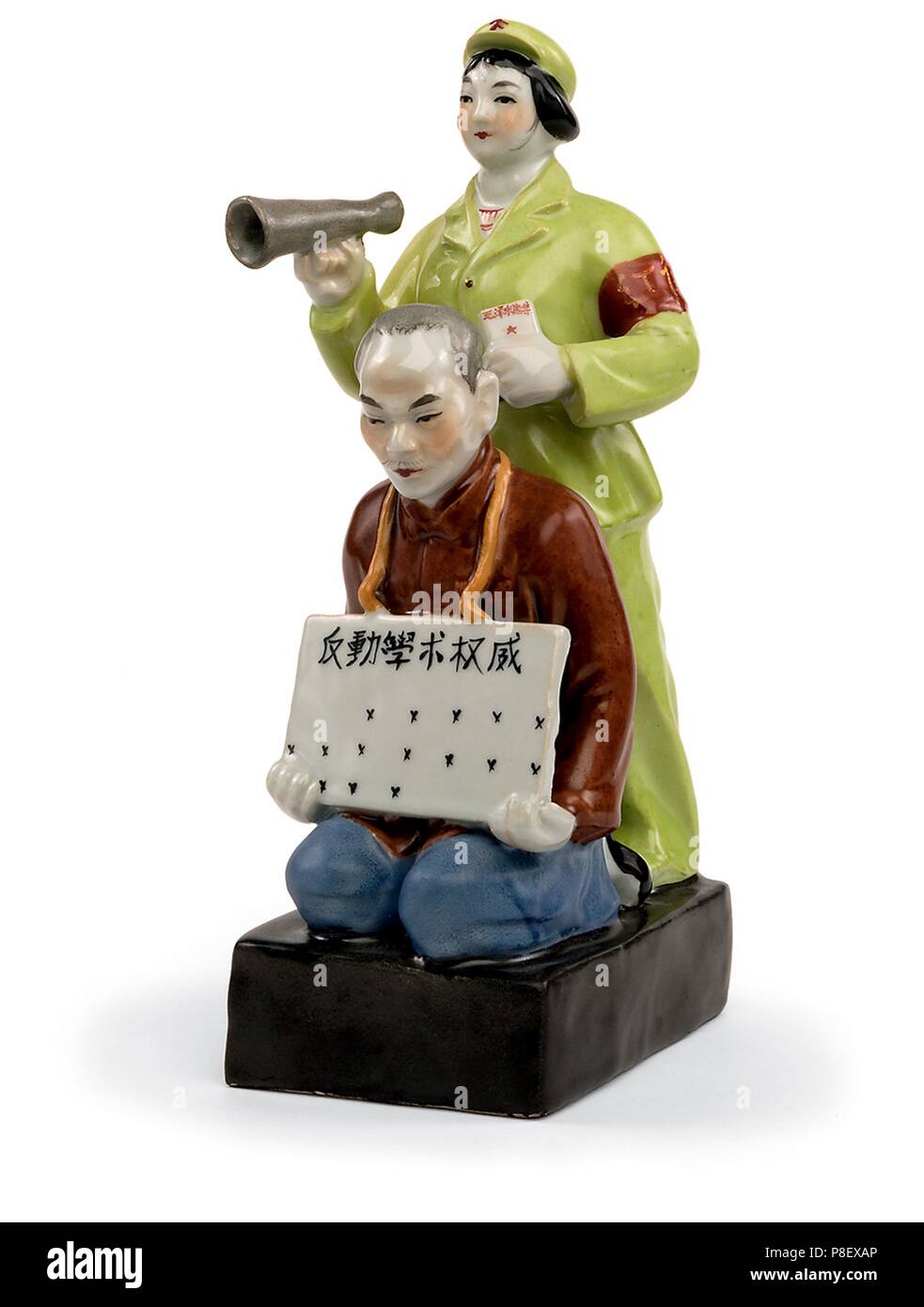 Journalist, harassed by a Red Guards Woman. Museum: PRIVATE COLLECTION. Stock Photohttps://www.alamy.com/image-license-details/?v=1https://www.alamy.com/journalist-harassed-by-a-red-guards-woman-museum-private-collection-image211769678.html
Journalist, harassed by a Red Guards Woman. Museum: PRIVATE COLLECTION. Stock Photohttps://www.alamy.com/image-license-details/?v=1https://www.alamy.com/journalist-harassed-by-a-red-guards-woman-museum-private-collection-image211769678.htmlRMP8EXAP–Journalist, harassed by a Red Guards Woman. Museum: PRIVATE COLLECTION.
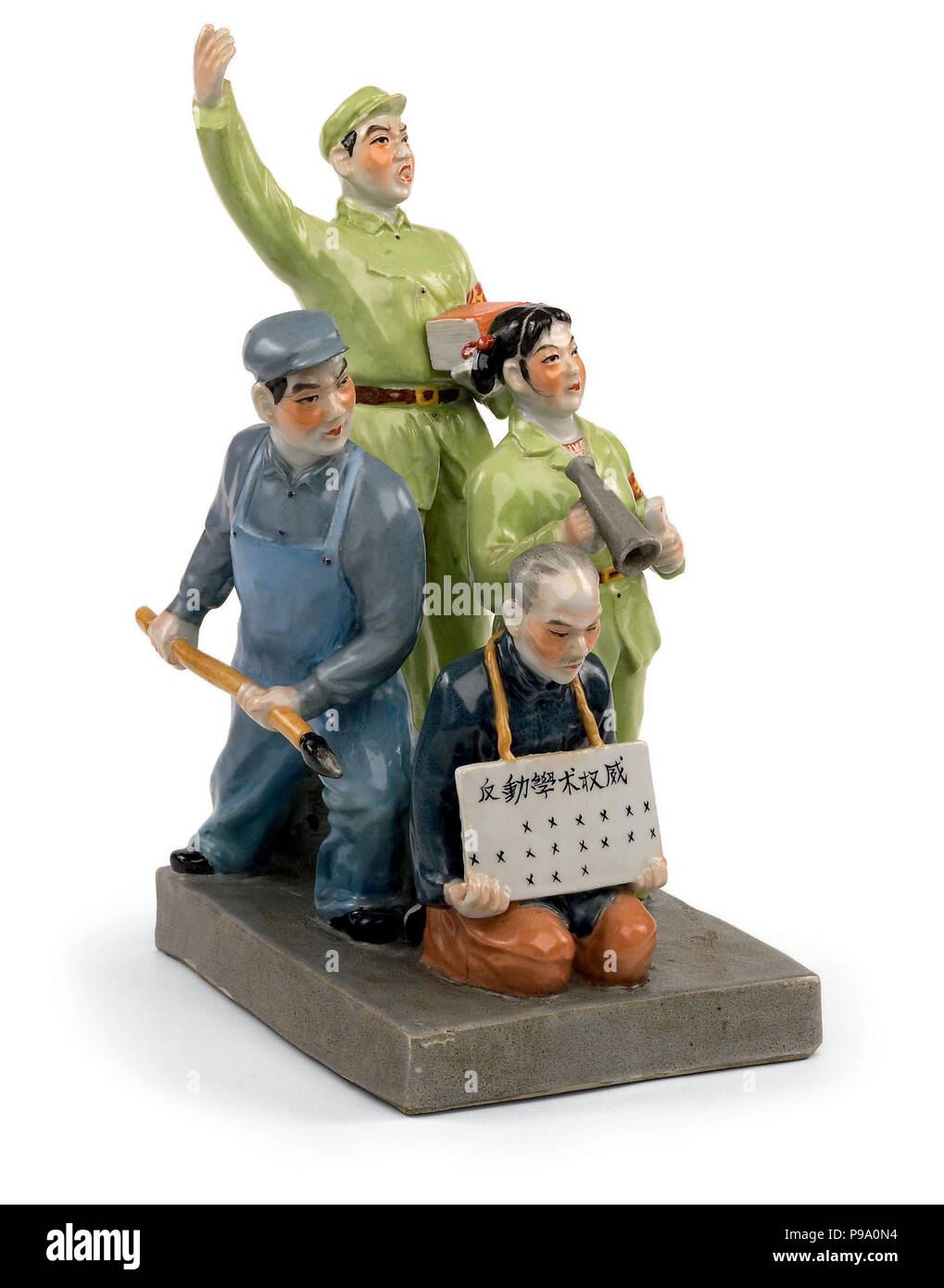 University Professor, harassed by a Red Guards and Worker. Museum: PRIVATE COLLECTION. Stock Photohttps://www.alamy.com/image-license-details/?v=1https://www.alamy.com/university-professor-harassed-by-a-red-guards-and-worker-museum-private-collection-image212276432.html
University Professor, harassed by a Red Guards and Worker. Museum: PRIVATE COLLECTION. Stock Photohttps://www.alamy.com/image-license-details/?v=1https://www.alamy.com/university-professor-harassed-by-a-red-guards-and-worker-museum-private-collection-image212276432.htmlRMP9A0N4–University Professor, harassed by a Red Guards and Worker. Museum: PRIVATE COLLECTION.
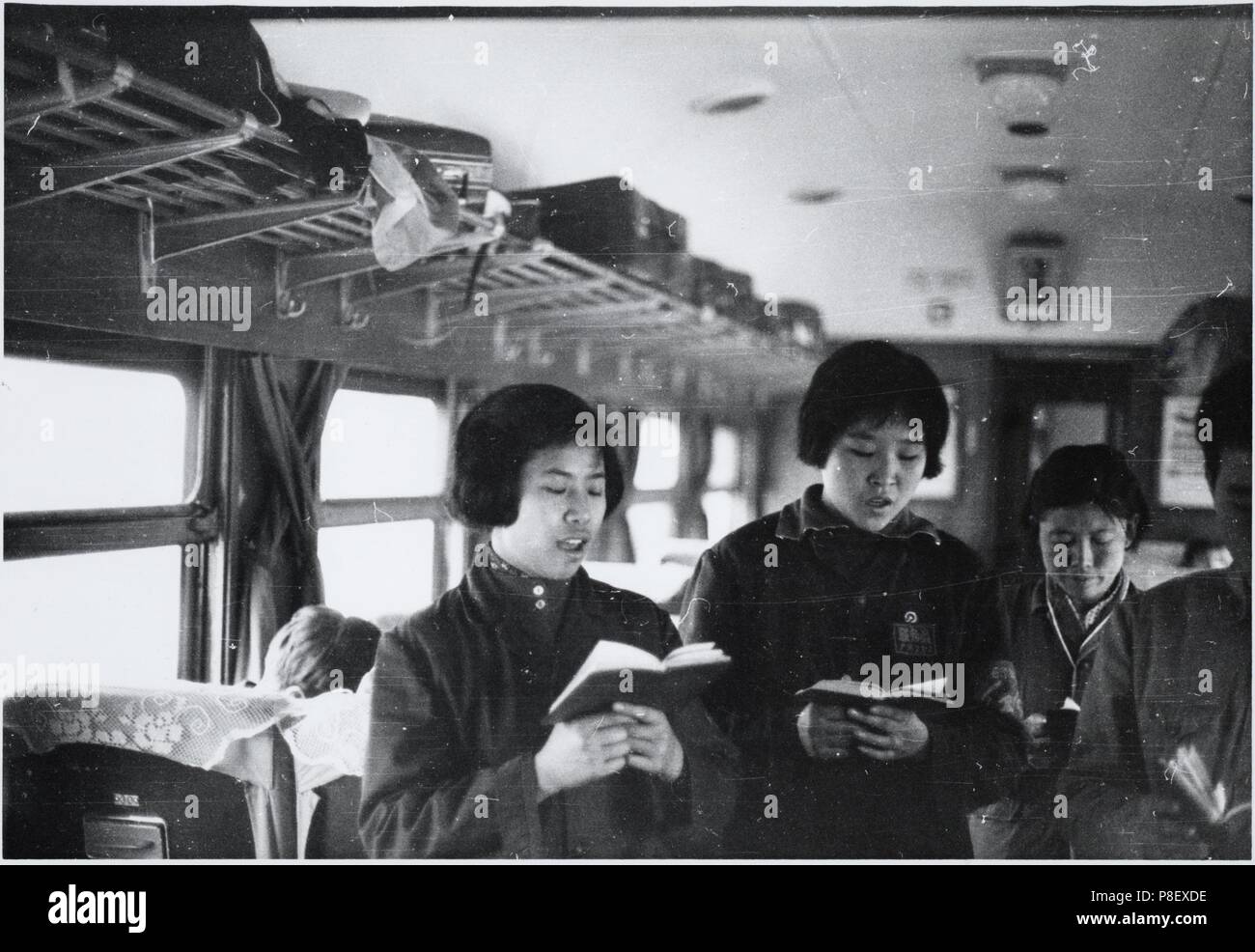 On the train to Guangzhou. Museum: PRIVATE COLLECTION. Stock Photohttps://www.alamy.com/image-license-details/?v=1https://www.alamy.com/on-the-train-to-guangzhou-museum-private-collection-image211769754.html
On the train to Guangzhou. Museum: PRIVATE COLLECTION. Stock Photohttps://www.alamy.com/image-license-details/?v=1https://www.alamy.com/on-the-train-to-guangzhou-museum-private-collection-image211769754.htmlRMP8EXDE–On the train to Guangzhou. Museum: PRIVATE COLLECTION.
 Quotations from Chairman Mao Tse-tung. Museum: PRIVATE COLLECTION. Stock Photohttps://www.alamy.com/image-license-details/?v=1https://www.alamy.com/quotations-from-chairman-mao-tse-tung-museum-private-collection-image211769688.html
Quotations from Chairman Mao Tse-tung. Museum: PRIVATE COLLECTION. Stock Photohttps://www.alamy.com/image-license-details/?v=1https://www.alamy.com/quotations-from-chairman-mao-tse-tung-museum-private-collection-image211769688.htmlRMP8EXB4–Quotations from Chairman Mao Tse-tung. Museum: PRIVATE COLLECTION.
 Party member, harassed by a Red Guardist. Museum: PRIVATE COLLECTION. Stock Photohttps://www.alamy.com/image-license-details/?v=1https://www.alamy.com/party-member-harassed-by-a-red-guardist-museum-private-collection-image211769677.html
Party member, harassed by a Red Guardist. Museum: PRIVATE COLLECTION. Stock Photohttps://www.alamy.com/image-license-details/?v=1https://www.alamy.com/party-member-harassed-by-a-red-guardist-museum-private-collection-image211769677.htmlRMP8EXAN–Party member, harassed by a Red Guardist. Museum: PRIVATE COLLECTION.
 Daily Study, Daily Application. Museum: PRIVATE COLLECTION. Stock Photohttps://www.alamy.com/image-license-details/?v=1https://www.alamy.com/daily-study-daily-application-museum-private-collection-image211769733.html
Daily Study, Daily Application. Museum: PRIVATE COLLECTION. Stock Photohttps://www.alamy.com/image-license-details/?v=1https://www.alamy.com/daily-study-daily-application-museum-private-collection-image211769733.htmlRMP8EXCN–Daily Study, Daily Application. Museum: PRIVATE COLLECTION.
 Long Live the Victory of People's War!. Museum: PRIVATE COLLECTION. Stock Photohttps://www.alamy.com/image-license-details/?v=1https://www.alamy.com/long-live-the-victory-of-peoples-war!-museum-private-collection-image211769696.html
Long Live the Victory of People's War!. Museum: PRIVATE COLLECTION. Stock Photohttps://www.alamy.com/image-license-details/?v=1https://www.alamy.com/long-live-the-victory-of-peoples-war!-museum-private-collection-image211769696.htmlRMP8EXBC–Long Live the Victory of People's War!. Museum: PRIVATE COLLECTION.
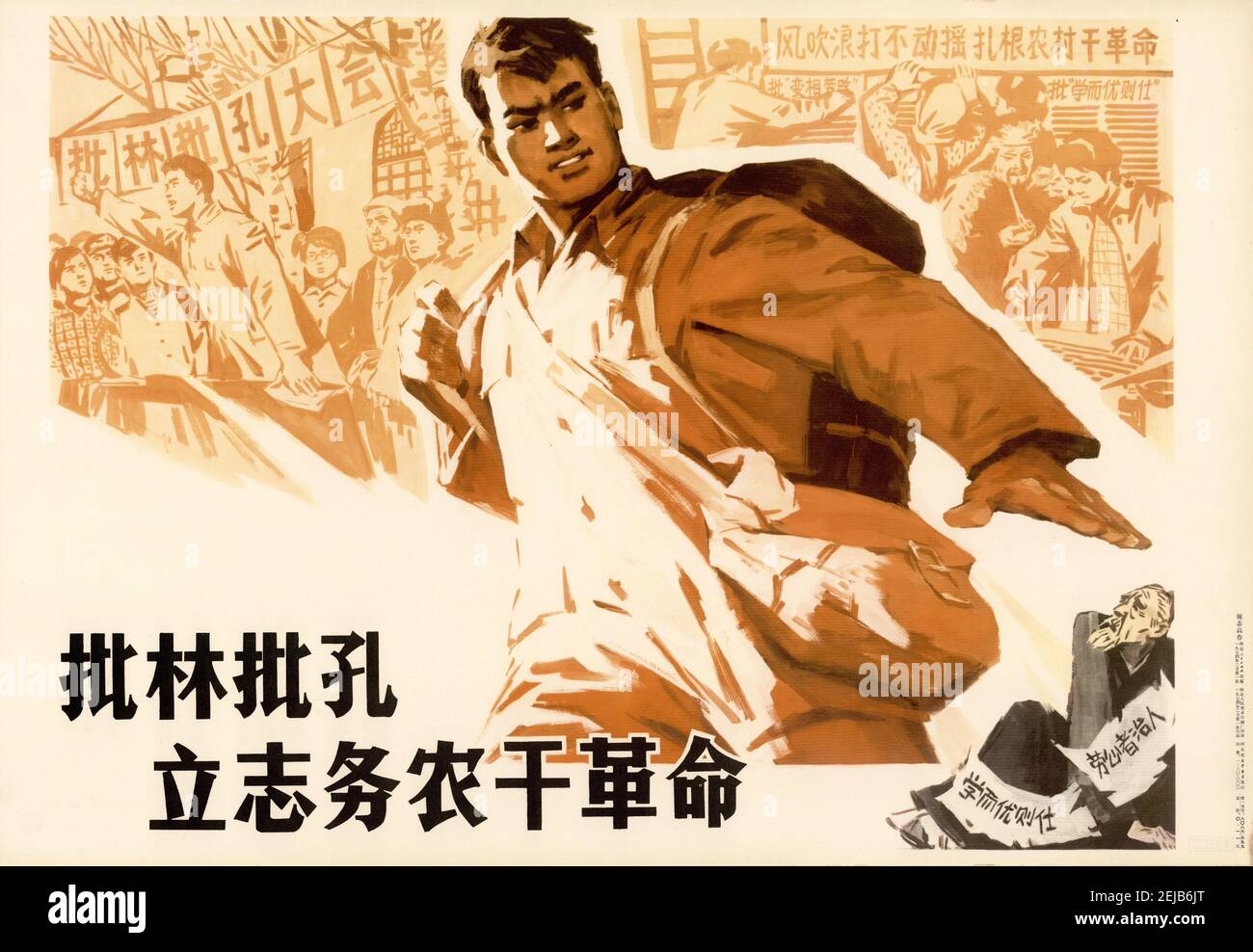 Fight resolutely against Lin Biao and Confucius. Museum: PRIVATE COLLECTION. Author: Xie Zhigao. Stock Photohttps://www.alamy.com/image-license-details/?v=1https://www.alamy.com/fight-resolutely-against-lin-biao-and-confucius-museum-private-collection-author-xie-zhigao-image407148976.html
Fight resolutely against Lin Biao and Confucius. Museum: PRIVATE COLLECTION. Author: Xie Zhigao. Stock Photohttps://www.alamy.com/image-license-details/?v=1https://www.alamy.com/fight-resolutely-against-lin-biao-and-confucius-museum-private-collection-author-xie-zhigao-image407148976.htmlRM2EJB6JT–Fight resolutely against Lin Biao and Confucius. Museum: PRIVATE COLLECTION. Author: Xie Zhigao.
 Time is life. Museum: PRIVATE COLLECTION. Author: Zhang Xin'guo. Stock Photohttps://www.alamy.com/image-license-details/?v=1https://www.alamy.com/time-is-life-museum-private-collection-author-zhang-xinguo-image483032754.html
Time is life. Museum: PRIVATE COLLECTION. Author: Zhang Xin'guo. Stock Photohttps://www.alamy.com/image-license-details/?v=1https://www.alamy.com/time-is-life-museum-private-collection-author-zhang-xinguo-image483032754.htmlRM2K1T15P–Time is life. Museum: PRIVATE COLLECTION. Author: Zhang Xin'guo.
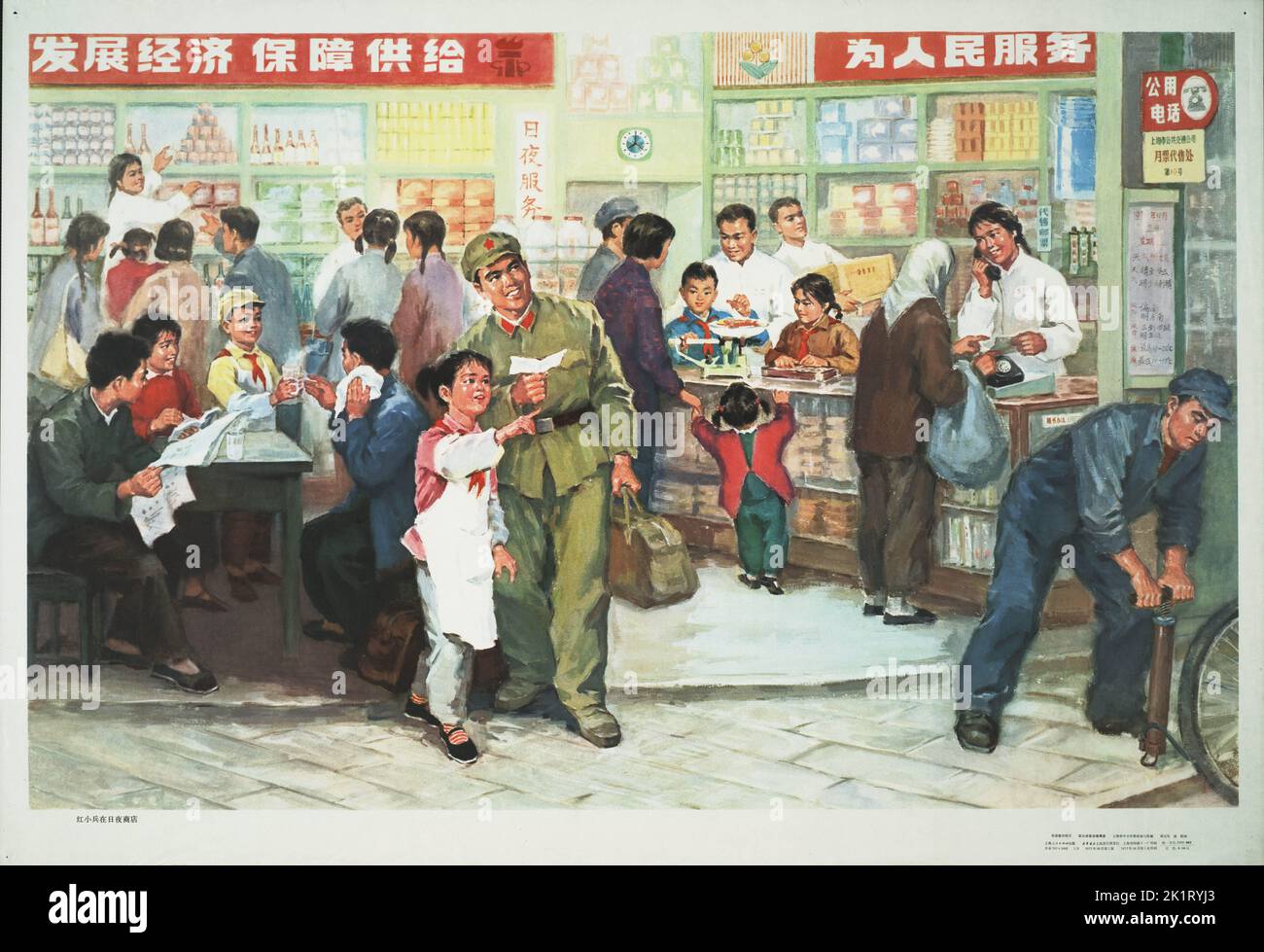 Little red guards at the all-day store. Museum: PRIVATE COLLECTION. Author: Shen Zhan. Stock Photohttps://www.alamy.com/image-license-details/?v=1https://www.alamy.com/little-red-guards-at-the-all-day-store-museum-private-collection-author-shen-zhan-image483031531.html
Little red guards at the all-day store. Museum: PRIVATE COLLECTION. Author: Shen Zhan. Stock Photohttps://www.alamy.com/image-license-details/?v=1https://www.alamy.com/little-red-guards-at-the-all-day-store-museum-private-collection-author-shen-zhan-image483031531.htmlRM2K1RYJ3–Little red guards at the all-day store. Museum: PRIVATE COLLECTION. Author: Shen Zhan.
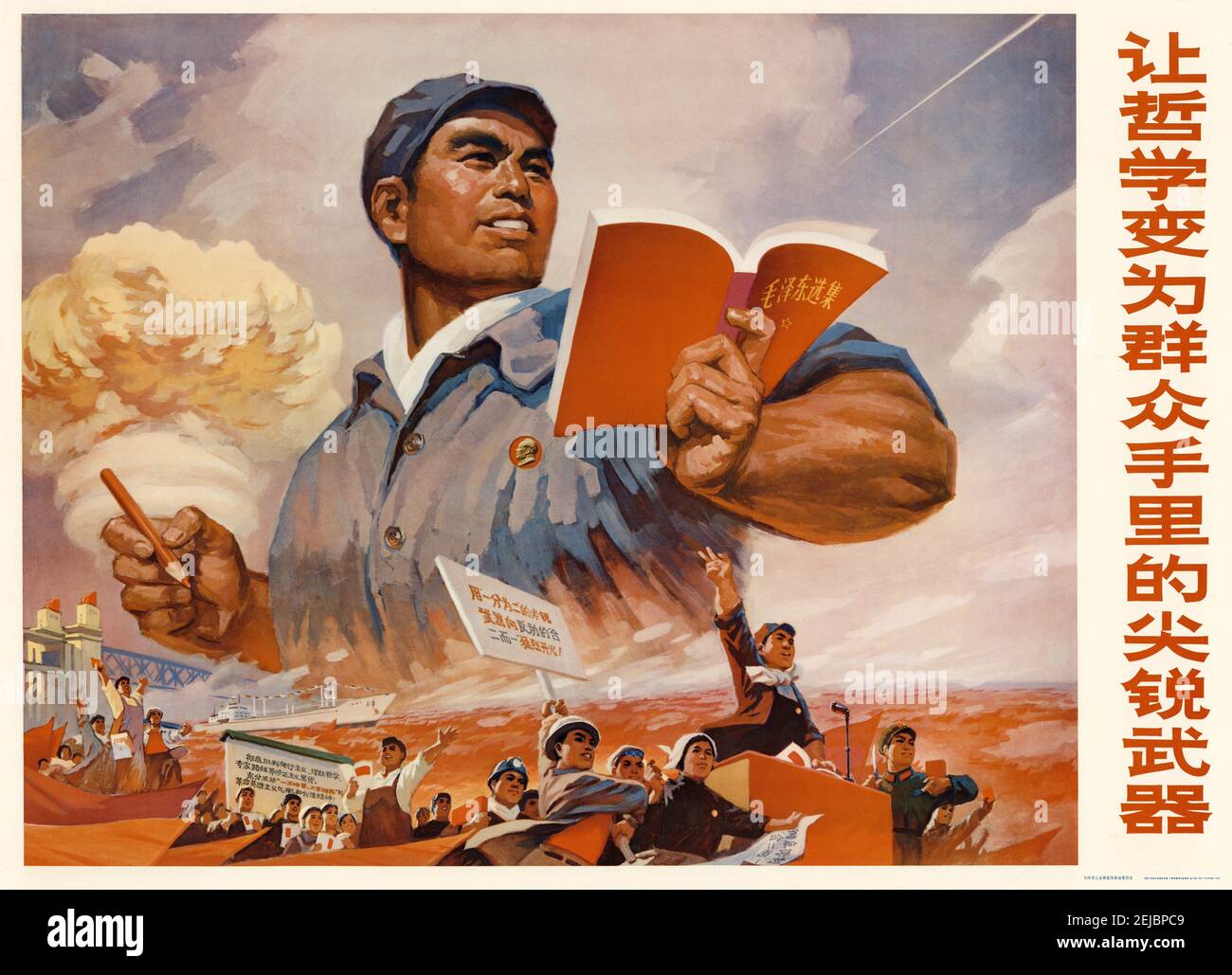 Turn philosophy into a sharp weapon in the hands of the masses!. Museum: PRIVATE COLLECTION. Author: ANONYMOUS. Stock Photohttps://www.alamy.com/image-license-details/?v=1https://www.alamy.com/turn-philosophy-into-a-sharp-weapon-in-the-hands-of-the-masses!-museum-private-collection-author-anonymous-image407161337.html
Turn philosophy into a sharp weapon in the hands of the masses!. Museum: PRIVATE COLLECTION. Author: ANONYMOUS. Stock Photohttps://www.alamy.com/image-license-details/?v=1https://www.alamy.com/turn-philosophy-into-a-sharp-weapon-in-the-hands-of-the-masses!-museum-private-collection-author-anonymous-image407161337.htmlRM2EJBPC9–Turn philosophy into a sharp weapon in the hands of the masses!. Museum: PRIVATE COLLECTION. Author: ANONYMOUS.
 Provide a strong support for the agriculture. Museum: PRIVATE COLLECTION. Author: ANONYMOUS. Stock Photohttps://www.alamy.com/image-license-details/?v=1https://www.alamy.com/provide-a-strong-support-for-the-agriculture-museum-private-collection-author-anonymous-image407169127.html
Provide a strong support for the agriculture. Museum: PRIVATE COLLECTION. Author: ANONYMOUS. Stock Photohttps://www.alamy.com/image-license-details/?v=1https://www.alamy.com/provide-a-strong-support-for-the-agriculture-museum-private-collection-author-anonymous-image407169127.htmlRM2EJC4AF–Provide a strong support for the agriculture. Museum: PRIVATE COLLECTION. Author: ANONYMOUS.
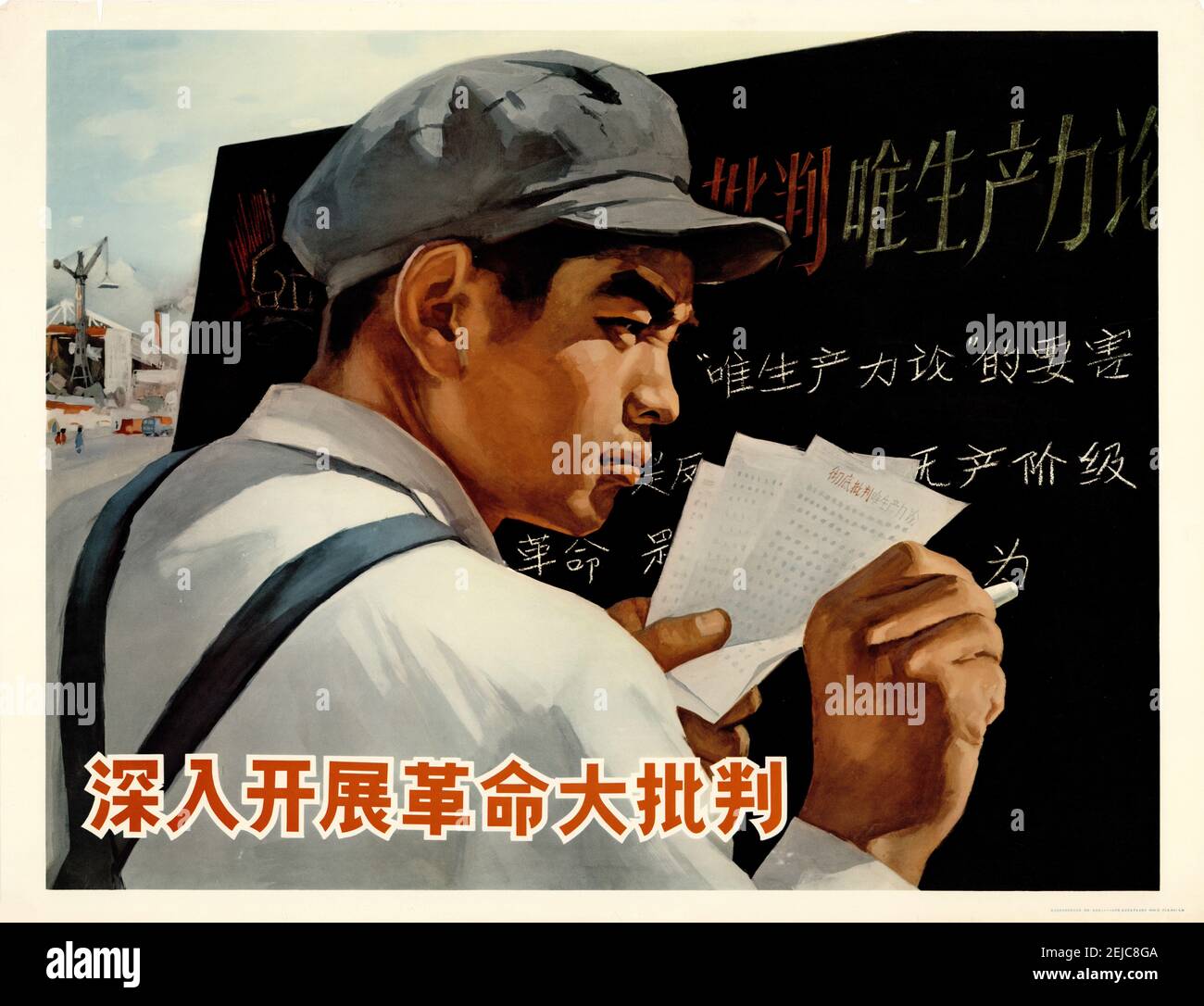 Deepen the Revolutionary Criticism. Museum: PRIVATE COLLECTION. Author: ANONYMOUS. Stock Photohttps://www.alamy.com/image-license-details/?v=1https://www.alamy.com/deepen-the-revolutionary-criticism-museum-private-collection-author-anonymous-image407172426.html
Deepen the Revolutionary Criticism. Museum: PRIVATE COLLECTION. Author: ANONYMOUS. Stock Photohttps://www.alamy.com/image-license-details/?v=1https://www.alamy.com/deepen-the-revolutionary-criticism-museum-private-collection-author-anonymous-image407172426.htmlRM2EJC8GA–Deepen the Revolutionary Criticism. Museum: PRIVATE COLLECTION. Author: ANONYMOUS.
 Improve your skills to guard our country. Museum: PRIVATE COLLECTION. Author: ANONYMOUS. Stock Photohttps://www.alamy.com/image-license-details/?v=1https://www.alamy.com/improve-your-skills-to-guard-our-country-museum-private-collection-author-anonymous-image407134085.html
Improve your skills to guard our country. Museum: PRIVATE COLLECTION. Author: ANONYMOUS. Stock Photohttps://www.alamy.com/image-license-details/?v=1https://www.alamy.com/improve-your-skills-to-guard-our-country-museum-private-collection-author-anonymous-image407134085.htmlRM2EJAFK1–Improve your skills to guard our country. Museum: PRIVATE COLLECTION. Author: ANONYMOUS.
 Chairman Mao has boundless trust in Chairman Hua. Museum: PRIVATE COLLECTION. Author: ANONYMOUS. Stock Photohttps://www.alamy.com/image-license-details/?v=1https://www.alamy.com/chairman-mao-has-boundless-trust-in-chairman-hua-museum-private-collection-author-anonymous-image407193546.html
Chairman Mao has boundless trust in Chairman Hua. Museum: PRIVATE COLLECTION. Author: ANONYMOUS. Stock Photohttps://www.alamy.com/image-license-details/?v=1https://www.alamy.com/chairman-mao-has-boundless-trust-in-chairman-hua-museum-private-collection-author-anonymous-image407193546.htmlRM2EJD7EJ–Chairman Mao has boundless trust in Chairman Hua. Museum: PRIVATE COLLECTION. Author: ANONYMOUS.